- Baggage Delivery
- Meet & Greet
- Upcoming Tenders

- Flight Information
- Airport Terminals
- Airport Guidelines
- Passenger Guide
- Shop, Dine & Services
- To & From airport
- In & Around Delhi
- General Aviation
- Photo / Video Shooting
- Security Operations Form
- Tariff and NAC charts
- Building Plan
- Our Journey
- Cargo Statistics
- Our Specializations
- Cargo Segments
- Road Feeder Services
- Our Network
- Our Infrastructure
- Awards & Certifications
- Events and Initiatives
- Our Green Initiatives
- Get In Touch
951 Daily Flights as on 19 th April, 2024
951 Daily Flights

Covid-19 Update
Public Message on Covid-19 Home Treatment Guidelines Watch Video
Covid-19 Latest Updates
Know more about the domestic and international travel guidelines
Review of COVID-19 Guidelines for International Flight Operations/ Arrivals
19 th July 2023

COVID-19 Domestic Travel Guidelines
Passengers flying to domestic destinations must follow the following health protocols:
- Flyers are advised to self-monitor health and travel only if they have no symptoms of COVID-19.
- Announcements regarding COVID-19 and COVID appropriate behaviour will be made at the airport. Travellers flying via domestic flights are advised to follow these precautionary guidelines.
- Passengers must use a face mask/ cover, hand hygiene, and physical distancing of six feet as far as feasible.
- Passengers should not spit in public spaces while travelling.
- Flyers are advised to install the Arogya Setu app on their mobile phones.
- If a passenger develops fever while travelling, he shall inform the cabin crew/ TTE/ bus conductor as per the situation.
- Passengers developing COVID-19 signs after reaching the destination should inform the District Surveillance Officer or the State National Call Centre (1075).
- For information on state-wise quarantine rules for domestic flights, flyers are advised to go through the state-wise travel guidelines section.
What we Cover?
- Domestic Travel Guidelines

19th May 2021
23rd May 2021
24th May 2021
21st May 2021
13th May 2021

Disclaimer: Passengers travelling to India are advised to check official websites of relevant authorities and local government agencies for the latest updates on travel retrictions and plan accordingly.
To avoid inconvenience prior to commencement of journey, it is advisable to verify requirements and check with Airline concerned or the destination Airport.
For International travel, please check with the nearby Embassy or the Airline Concerned.
Resources in Delhi & Nearby
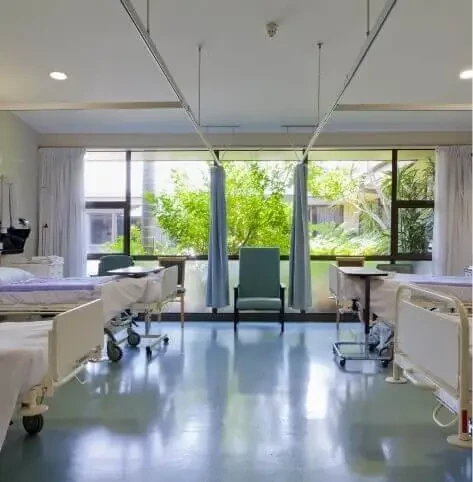
Join MyGov Helpdesk for Indian Govt. Updates
Get your Covid-19 Vaccination Certificate
India Vaccine Progress
As on : 19 Apr 2024 01:18 AM
84,51,80,590 (63.4%) 2nd dose administered
99,85,01,718 (74.9%) 1nd dose administered
1,33,30,00,000 Total population
140.15 Dose per 100 people
Data from : CDC, WHO, ECDC, Wikipedia - The New York Times
Cases Across India
12,340 480 Active Cases (0.03%)
4,25,13,248 1,547 Discharged
5,22,006 40 Deaths (1.21%)
4,30,47,594 2,067 Total Cases
Airport Covid Preparedness
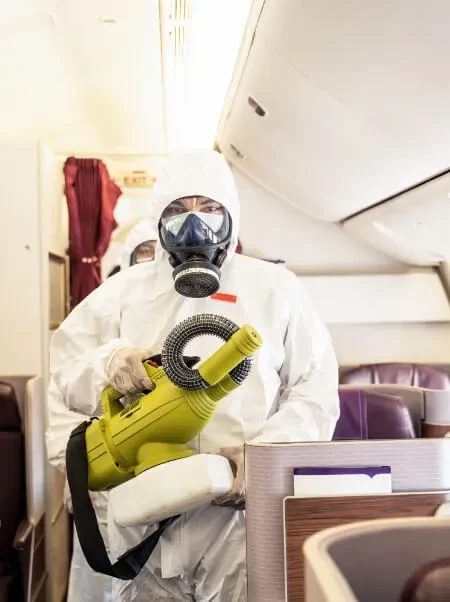
Every Corner Sanitized for Passenger Safety

Maintaining Social Distancing with Floor Stickers
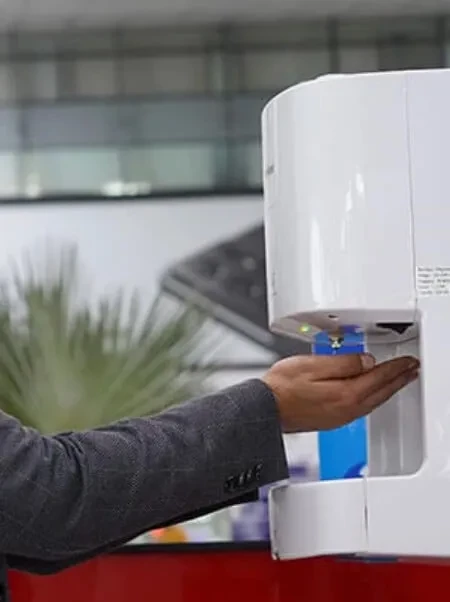
Enhanced Hygiene Facilities Inside the Airport
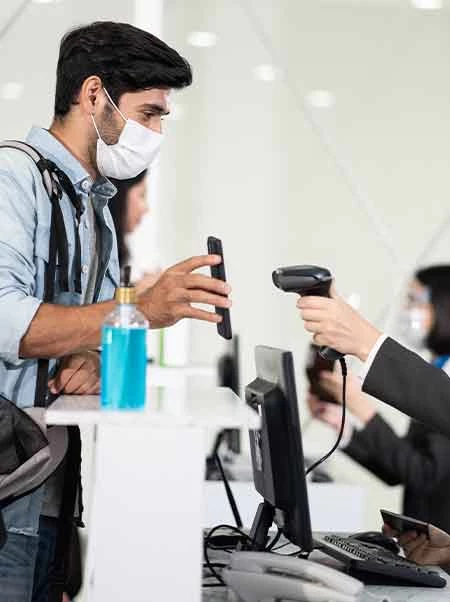
Contactless Check-In Experience
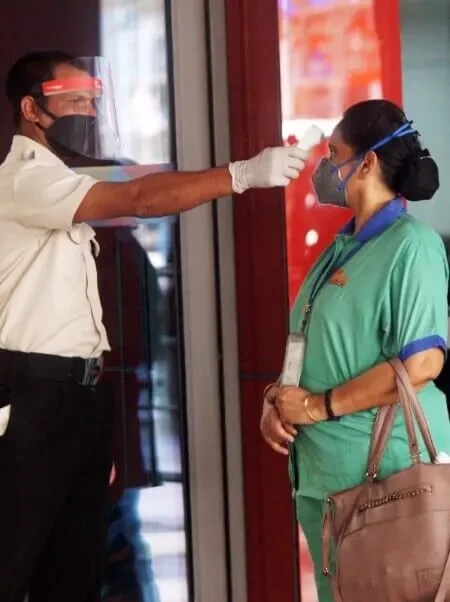
Thermal Screening of All Passengers
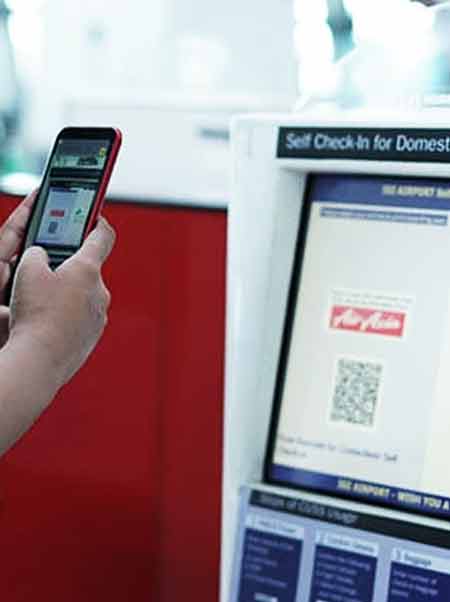
Hassle-Free Boarding Pass Printing with Scan & Fly Facility
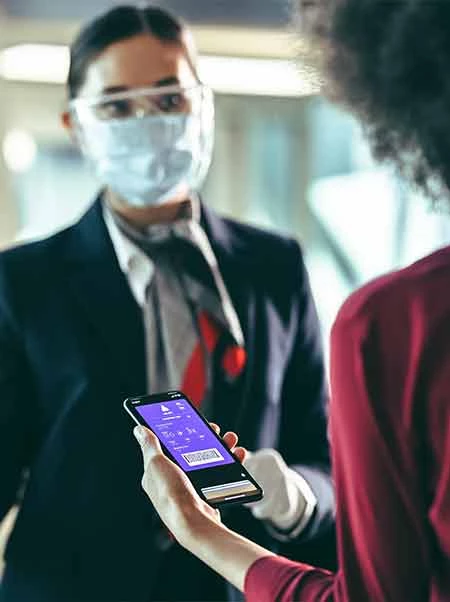
COVID Appropriate Behaviour at All Checkpoints
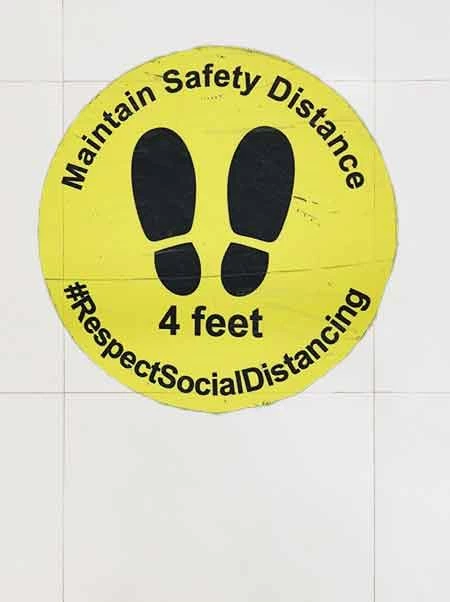
Social Distancing Markers and Stickers Throughout the Airport
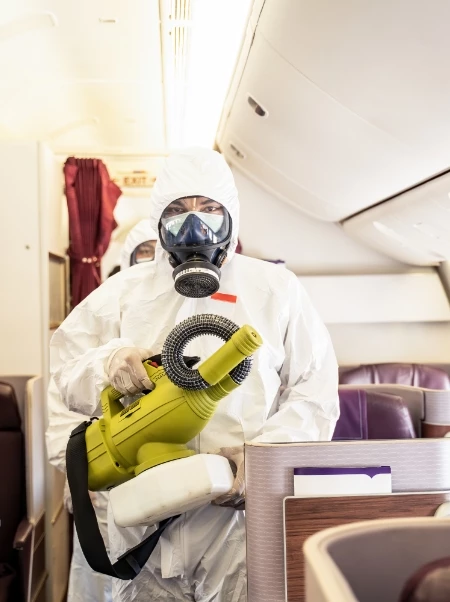
Covid Helpline Numbers
1075 Health Ministry
1098 Child Care
08046110007 Mental Health
14567 Senior Citizens
14443 Ayush Covid-19 Counselling
9013151515 MyGov WhatsApp Helpdesk
Book your stay.
Price starts from
₹ 2999/* onwards
Covid-19 FAQs
Help us improve your experience.
Initiate Property Claim
Your property claim has been submitted successfully. Our Lost and Found agent will connect with you via email or phone. Please check your email for the updates.
- About Delhi Airport
- About GMR Group
- Environment
- Business Awards
- News & Events
- Why Delhi Airport
- Life @ Delhi Airport
- Learning @ Delhi Airport
- Careers @ Delhi Airport
- Professional Courses
- GMR Infrastructure Limited
- GMR Power & Urban Infra Limited
- GMR Airports
- Delhi International Airport Limited
- GMR Hyderabad International Airport Limited
- Manohar International Airport, Goa
- Mactan Cebu International Airport
- GMR Visakhapatnam International Airport
- GMR Aerocity Delhi
- GMR Aerocity Hyderabad
- GMR Aero Technic
- GMR Aerospace & Industrial Park
- GMR Business Park
- GMR Innovex
- GMR Aero Academy
- GMR Energy Trading Ltd
- GMR Krishnagiri SIR
- GMR Engineering & Management Services
- RAXA Techno Security Solutions
- GMR Aviation Private Limited
- Delhi Capitals
- Dubai Capitals
- India Capitals
- Telugu Yoddhas
- GMR Varalakshmi Foundation
- Parampara Family Business Institute

We really appreciate it, thank you!
JavaScript must be enabled in order for you to use in standard view. However, it seems JavaScript is either disabled or not supported by your browser. To use standard view, enable JavaScript by changing your browser options, then try again .
Update April 12, 2024
Information for u.s. citizens in the middle east.
- Travel Advisories |
- Contact Us |
- MyTravelGov |
Find U.S. Embassies & Consulates
Travel.state.gov, congressional liaison, special issuance agency, u.s. passports, international travel, intercountry adoption, international parental child abduction, records and authentications, popular links, travel advisories, mytravelgov, stay connected, legal resources, legal information, info for u.s. law enforcement, replace or certify documents.
Before You Go
Learn About Your Destination
While Abroad
Emergencies
Share this page:
Travel Advisory June 23, 2023
India - level 2: exercise increased caution.
Reissued with updates to health information.
Exercise increased caution in India due to crime and terrorism.
Do not travel to:
- The union territory of Jammu and Kashmir (except the eastern Ladakh region and its capital, Leh) due to terrorism and civil unrest .
- Within 10 km of the India-Pakistan border due to the potential for armed conflict .
Country Summary : Indian authorities report rape is one of the fastest growing crimes in India. Violent crime, such as sexual assault, has occurred at tourist sites and in other locations.
Terrorists may attack with little or no warning, targeting tourist locations, transportation hubs, markets/shopping malls, and government facilities.
The U.S. government has limited ability to provide emergency services to U.S. citizens in rural areas from eastern Maharashtra and northern Telangana through western West Bengal as U.S. government employees must obtain special authorization to travel to these areas.
Read the country information page for additional information on travel to India.
The Centers for Disease Control and Prevention (CDC) has determined India has a moderate level of COVID-19. Visit the CDC page for the latest Travel Health Information related to your travel.
If you decide to travel to India:
- Do not travel alone, particularly if you are a woman. Visit our website for Women Travelers .
- Review your personal security plans and remain alert to your surroundings.
- Enroll in the Smart Traveler Enrollment Program ( STEP ) to receive Alerts and make it easier to locate you in an emergency.
- Follow the Department of State on Facebook and Twitter .
- Review the Country Security Report for India.
- Prepare a contingency plan for emergency situations. Review the Traveler’s Checklist .
Union Territory of Jammu and Kashmir – Level 4: Do Not Travel
Terrorist attacks and violent civil unrest are possible in the union territory of Jammu and Kashmir. Avoid all travel to this state (with the exception of visits to the eastern Ladakh region and its capital, Leh). Sporadic violence occurs particularly along the Line of Control (LOC) separating India and Pakistan, and in tourist destinations in the Kashmir Valley: Srinagar, Gulmarg, and Pahalgam. The Indian government prohibits foreign tourists from visiting certain areas along the LOC.
Visit our website for Travel to High-Risk Areas .
India-Pakistan Border – Level 4: Do Not Travel
India and Pakistan maintain a strong military presence on both sides of the border. The only official India-Pakistan border crossing point for persons who are not citizens of India or Pakistan is in the state of Punjab between Attari, India, and Wagah, Pakistan. The border crossing is usually open but confirm the current status of the border crossing prior to commencing travel. A Pakistani visa is required to enter Pakistan. Only U.S. citizens residing in India may apply for a Pakistani visa in India. Otherwise apply for a Pakistani visa in your country of residence before traveling to India.
Northeastern States – Level 4: Do Not Travel
Incidents of violence by ethnic insurgent groups, including bombings of buses, trains, rail lines, and markets, occur occasionally in the northeast.
U.S. government employees at the U.S. Embassy and Consulates in India are prohibited from traveling to the states of Assam, Arunachal Pradesh, Mizoram, Nagaland, Meghalaya, Tripura, and Manipur without special authorization from the U.S. Consulate General in Kolkata.
Central and East India – Level 4: Do Not Travel
Maoist extremist groups, or “Naxalites,” are active in a large swath of India from eastern Maharashtra and northern Telangana through western West Bengal, particularly in rural parts of Chhattisgarh and Jharkhand and on the borders of Telangana, Andhra Pradesh, Maharashtra, Madhya Pradesh, Uttar Pradesh, Bihar, West Bengal, and Odisha. The Naxalites have conducted frequent terrorist attacks on local police, paramilitary forces, and government officials.
Due to the fluid nature of the threat, all U.S. government travelers to states with Naxalite activity must receive special authorization from the U.S. consulate responsible for the area to be visited. U.S. officials traveling only to the capital cities in these states do not need prior authorization.
Visit our website for Travel to High-Risk Areas .
Embassy Messages
View Alerts and Messages Archive
Quick Facts
Must be valid for six months beyond date of visa application to obtain a visa.
Two pages required.
Yes. Travelers must enter in either on a paper visa, valid for 10 years for U.S. citizens, or an e-tourist visa.
Required for yellow fever if the traveler is arriving from an infected area; others are suggested.
The possession of satellite phones is prohibited in India; Currency in excess of USD $5,000 must be declared. Please check with the Indian Embassy in Washington if you are planning to carry a large amount of currency into India.
Check local law for reporting requirements for exiting with large quantities of foreign currency and Indian rupees.
Embassies and Consulates
U.s. embassy new delhi.
Shantipath, Chanakyapuri New Delhi - 110021 India Telephone: +(91) (11) 2419-8000 Emergency After-Hours Telephone: +(91) (11) 2419-8000 Fax: +(91) (11) 2419-0017 [email protected]
The U.S. Embassy, New Delhi serves American citizens in the Indian states of Haryana, Himachal Pradesh, Punjab, Rajasthan, Uttarakhand, and Uttar Pradesh, the union territories of Chandigarh, Delhi, Jammu and Kashmir, and Ladakh, and the country of Bhutan.
U.S. Consulate General Mumbai (Bombay) C-49, G-Block, Bandra Kurla Complex Bandra East, Mumbai 400051 India Telephone: +(91) (22) 2672-4000 Emergency After-Hours Telephone: +(91) (22) 2672-4000 If you are calling from within India, but outside Mumbai, first dial 022. Fax: 91-(0)22-2672-4786 [email protected]
The Consulate General in Mumbai provides consular services for the states of Goa, Gujarat, Chhatisgarh, Madhya Pradesh, and Maharashtra, and the union territory of Diu and Daman, and Dadra and Nagar Haveli.
U.S. Consulate General Kolkata (Calcutta) 5/1 Ho Chi Minh Sarani Kolkata - 700 071, West Bengal, India Telephone: +(91) (33) 3984-2400 Emergency After-Hours Telephone: +(91) 99030 42956 or +(91) (33) 3984-2400 then dial "0" Fax: +(91) (33) 2282-2335
The United States Consulate General in Kolkata provides consular services for the states of Bihar, West Bengal, Jharkhand, Nagaland, Mizoram, Manipur, Meghalaya, Arunachal Pradesh, Sikkim, Tripura and Assam. [email protected]
U.S. Consulate General Chennai (Madras) 220 Anna Salai at Gemini Circle Chennai, India 600006 Telephone: +(91) (44) 2857-4000 Emergency After-Hours Telephone: (0) 44-2857-4000. Ask for American Citizen Services.(Within India, but outside Chennai, first dial 044. From the United States, first dial 011-(91) (44) ) Fax: +(91) (044) 2811-2020
The Consulate General in Chennai provides consular services for the states of Tamil Nadu, Karnataka, Kerala, and the Union Territories of Andaman and Nicobar Islands, Pondicherry and Lakshwadeep Islands. [email protected]
U.S. Consulate General Hyderabad Survey No. 115/1, Financial District, Nanakramguda Hyderabad, Telangana, 500032 Phone: 040 6932 8000
The Consulate General in Hyderabad provides services to the U.S. citizens in the Indian states of Andhra Pradesh, Telangana, and Odisha. [email protected]
Destination Description
Learn about the U.S. relationship to countries around the world.
Entry, Exit and Visa Requirements
All U.S. citizens need a valid passport as well as a valid Indian visa or an Overseas Citizen of India (OCI) card, to enter and exit India for any purpose. Travelers without valid documents or the correct type of visa may be denied entry into India. Indian visa regulations and instructions change frequently, often with little advance notice. Travelers are urged to check the website of the Indian Embassy in Washington, D.C. before any travel to India to review the most current information. The U.S. Embassy and Consulates General in India cannot assist you if you arrive without proper documentation.
U.S. citizens seeking to enter India solely for tourist purposes for stays of less than 60 days may apply for an eVisa at least four days prior to their arrival. Please visit the Indian government's website for electronic travel authorization for additional information and to submit an application.
U.S. citizens seeking to enter India as a tourist for longer than 60 days or for any other purpose must apply for a visa from an Indian embassy or consulate. The Government of India has appointed VFS Global to assist with visa services to individuals in the United States. Applicants may apply for Indian visas through the application link https://visa.vfsglobal.com/usa/en/ind/apply-visa .
Diplomatic and Official visa applications are accepted directly at the Indian Embassy and Consulates. All U.S. government employees traveling on official orders, including military personnel, must obtain country clearance for travel to India. Once you have received your visa, check it carefully to ensure that the type of visa and number of entries is appropriate for your travel plans.
Keep copies of your U.S. passport data page, as well as the pages containing the Indian visa and Indian immigration stamps with you at all times. Consider downloading these documents to your mobile phone in case of emergency. If your passport is lost or stolen, copies will help you apply for a replacement passport and an exit visa from the Indian government. Replacing a lost visa, which is required in order to exit the country, may take four or five business days.
U.S. citizens of Pakistani origin or descent are subject to administrative processing and should expect additional delays when applying for Indian visas.
Foreign citizens who visit India to study, do research, work, or act as missionaries, as well as all travelers and residents planning to stay more than 180 days, are required to register their visit or residency within 14 days of arrival with the Foreigners Regional Registration Office (FRRO) closest to where they will be staying in addition to having the appropriate visa when they enter India. The FRRO maintains offices in New Delhi, Mumbai, Chennai, Hyderabad, Kolkata, Bengaluru (Bangalore), Lucknow, Calicut, Goa, Cochin, Trivandrum, and Amritsar. District Superintendents of Police serve as Foreigners Registration Officers (FROs) in all other places. We recommend all U.S. citizens review the entry requirements described on the Frequently Asked Question (FAQ) section on the Indian Bureau of Immigration website.
If you overstay your Indian visa, or otherwise violate Indian visa regulations, you may require clearance from the Ministry of Home Affairs to leave the country. Generally, you will be fined and, in some cases, may be jailed for months. Visa violators seeking an exit permit must visit the Foreigners Regional Registration Office portal to submit the application and pay any levied fines. Processing of an exit permit under these circumstances can take up to 90 days and decisions will be made on a case-by-case basis.
For the most current information on entry and exit requirements, please contact the Embassy of India at 2536 Massachusetts Avenue NW, Washington, DC 20008, telephone (202) 939-9806 or the Indian Consulates in Atlanta , Chicago , Houston , New York , or San Francisco . Outside the United States, inquiries should be made at the nearest Indian embassy or consulate.
General information regarding Indian visa and immigration rules, including the addresses and telephone numbers for the FRRO offices, can be found at the Indian Ministry of Home Affairs Bureau of Immigration website.
HIV/AIDS RESTRICTIONS: There are no disclosure requirements or restrictions for HIV/AIDS patients who enter India on a tourist visa. Disclosure regarding HIV/AIDS is required of anyone seeking a resident permit in India. Foreign residents found to be suffering from HIV/AIDS will be deported. Please verify this information with the Embassy of India before you travel.
Find information on dual nationality , prevention of international child abduction and customs regulations on our websites.
Safety and Security
U.S. citizens should always practice good personal security and situational awareness. Be aware of your surroundings (including local customs and etiquette) and keep a low profile. Monitor local news reports, vary your routes and times in carrying out daily activities, and consider the level of security present when you visit public places, including religious sites, and when choosing hotels, restaurants, and entertainment and recreation venues.
India continues to experience terrorist and insurgent activities which may affect U.S. citizens directly or indirectly. Anti-Western terrorist groups, some on the U.S. government's list of foreign terrorist organizations, are active in India, including Islamist extremist groups such as Harkat-ul-Jihad-i-Islami, Harakat ul-Mujahidin, Indian Mujahideen, Jaish-e-Mohammed, and Lashkar-e Tayyiba. The U.S. government occasionally receives information regarding possible terrorist attacks that could take place in India, monitors such information to determine credibility, and advises U.S. citizens accordingly. Enroll in the Smart Traveler Enrollment Program (STEP) to receive messages from the Embassy automatically.
Past attacks have targeted public places, including some frequented by Westerners, such as luxury and other hotels, trains, train stations, markets, cinemas, mosques, and restaurants in large urban areas. Attacks have taken place during the busy evening hours in markets and other crowded places, but could occur at any time. Alerts are usually more frequent around major holidays. The Maoists (also known as “Naxalites”) are the most active insurgent group in India. The Naxalites typically attack Indian government officials, but have also derailed trains, targeted other government buildings such as police stations, and conducted other criminal activity. In eastern India’s Bihar state, 10 security personnel were killed and five injured in a Naxalite-triggered Improvised Explosive Device blast on July 18, 2016. In the eastern state of Jharkhand, seven policemen were killed and eight others injured in a landmine blast by Naxalites on January 27, 2016.
Beyond the threat from terrorism and insurgencies, demonstrations and general strikes, or “bandh,” often cause major inconvenience and unrest. These strikes can result in the stoppage of all transportation and tourist-related services, at times for 24 hours or more. U.S. citizens caught in such a strike may find they are unable to make flight and rail connections, as local transportation can be severely limited. Local media generally give an idea of the length and geographical location of the strike. Large religious gatherings that attract hundreds of thousands of people can result in dangerous and often life-threatening stampedes. Local demonstrations can begin spontaneously and escalate with little warning, disrupting transportation systems and city services and posing risks to travelers. In response to such events, Indian authorities occasionally impose curfews and/or restrict travel. You are urged to obey such curfews and travel restrictions and to avoid demonstrations and rallies as they have the potential for violence, especially immediately preceding and following political rallies, elections, and religious festivals (particularly when Hindu and Muslim festivals coincide). Tensions between castes and religious groups can also result in disruptions and violence. In some cases, demonstrators specifically block roads near popular tourist sites and disrupt train operations in order to gain the attention of Indian authorities; occasionally vehicles transporting tourists are attacked in these incidents. India generally goes on “High Alert” status prior to major holidays or events. You should monitor local television, print media, Mission India’s American Citizens Services Facebook page, and enroll with the Smart Traveler Enrollment Program for further information about the current situation in areas where you will travel.
The U.S. Embassy and U.S. Consulates General in Chennai, Hyderabad, Kolkata, and Mumbai will post information about routine demonstrations on the U.S. Embassy and U.S. Consulates General websites, under the heading “Demonstration Notices.” Please monitor our websites regularly for information about protest activities in the country. Please note that the Embassy and Consulates General will issue emergency/security messages for other purposes, as necessary.
Religious violence occasionally occurs in India, especially when tensions between different religious communities are purposefully exacerbated by groups pushing religiously chauvinistic agendas. There are active "anti-conversion" laws in some Indian states, and acts of conversion sometimes elicit violent reactions from Hindu extremists. Foreigners suspected of proselytizing Hindus have been attacked and killed in conservative, rural areas in India in the past.
Swimming in India: You should exercise caution if you intend to swim in open waters along the Indian coastline, particularly during the monsoon season. Every year, several people in Goa, Mumbai, Puri (Odisha), off the Eastern Coast in the Bay of Bengal, and other areas drown due to strong undertows. It is important to heed warnings posted at beaches and to avoid swimming in the ocean during the monsoon season. Trained lifeguards are very rare along beaches.
If you visit the Andaman Islands, be aware that there have been reports of crocodile attacks in salt water resulting in fatalities. Ask local residents about dangerous sea life before swimming and keep a safe distance from animals at all times.
Wildlife safaris: India offers opportunities for observation of wildlife in its natural habitat and many tour operators and lodges advertise structured, safe excursions into parks and other wildlife viewing areas for close observation of flora and fauna. However, safety standards and training vary, and it is a good idea to ascertain whether operators are trained and licensed. Even animals marketed as “tame” should be respected as wild and extremely dangerous. Keep a safe distance from animals at all times, remaining in vehicles or other protected enclosures when venturing into game parks.
Trekking in India: Trekking expeditions should be limited to routes identified for this purpose by local authorities. Use only registered trekking agencies, porters, and guides, suspend trekking after dark, camp at designated camping places, and travel in groups rather than individually or with one or two companions. Altitudes in popular trekking spots can be as high as 25,170 feet (7,672 m); please make sure that you have had a recent medical checkup to ensure that you are fit to trek at these altitudes and carry sufficient medical insurance that includes medical evacuation coverage.
Train Travel: India has the third largest rail network in the world, and train travel in India generally is safe. Nevertheless, accidents and on-board fires are sometimes caused by aging infrastructure, poorly maintained equipment, overcrowding, and operator errors. Train accidents and fires have resulted in the death and serious injury of passengers.
Areas of Instability: Jammu & Kashmir: The Department of State strongly recommends that you avoid travel to the union territory of Jammu & Kashmir because of the potential for terrorist incidents as well as violent public unrest. A number of terrorist groups operate in the territory targeting security forces, particularly along the Line of Control (LOC) separating Indian and Pakistani-controlled Kashmir, and those stationed in primary tourist destinations in the Kashmir Valley: Srinagar, Gulmarg, and Pahalgam. Since 1989, as many as 70,000 people (terrorists, security forces, and civilians) have been killed in the Kashmir conflict. Foreigners are particularly visible, vulnerable, and at risk. In the past, serious communal violence left the territory mostly paralyzed due to massive strikes and business shutdowns, and U.S. citizens have had to be evacuated by local police. The Indian government prohibits foreign tourists from visiting certain areas along the LOC (see the section on Restricted Areas, below).
India-Pakistan Border: The Department of State recommends that you avoid travel to areas within ten kilometers of the border between India and Pakistan. Both India and Pakistan maintain a strong military presence on both sides of the border. The only official India-Pakistan border crossing point for persons who are not citizens of India or Pakistan is in the state of Punjab between Atari, India, and Wagah, Pakistan. The border crossing is usually open, but you are advised to confirm the current status of the border crossing prior to commencing travel. A Pakistani visa is required to enter Pakistan. Only U.S. citizens residing in India may apply for a Pakistani visa in India. Otherwise you should apply for a Pakistani visa in your country of residence before traveling to India.
Both India and Pakistan claim an area of the Karakoram mountain range that includes the Siachen glacier. Travel or mountain climbing in this area is highly dangerous. The disputed area includes the following peaks: Rimo Peak; Apsarasas I, II, and III; Tegam Kangri I, II and III; Suingri Kangri; Ghiant I and II; Indira Col; and Sia Kangri. Check with the U.S. Embassy in New Delhi for information on current conditions.
Northeastern states: Incidents of violence by ethnic insurgent groups, including bombings of buses, trains, rail lines, and markets, occur occasionally in the northeast. While U.S. citizens have not been specifically targeted, it is possible that you could be affected as a bystander. If you travel to the northeast, you should avoid travel by train at night, travel outside major cities at night, and crowds. U.S. government employees at the U.S. Embassy and Consulates in India are prohibited from traveling to the states of Assam, Arunachal Pradesh, Mizoram, Nagaland, Meghalaya, Tripura, and Manipur without permission from the U.S. Consulate General in Kolkata. Restricted Area Permits are required for foreigners to visit certain Northeastern states (see the section on Restricted Areas, below.) Contact the U.S. Consulate General in Kolkata for information on current conditions.
East Central and Southern India: Maoist extremist groups, or “Naxalites,” are active in East Central India primarily in rural areas. The Naxalites have a long history of conflict with state and national authorities, including frequent terrorist attacks on local police, paramilitary forces, and government officials, and are responsible for more attacks in the country than any other organization through an ongoing campaign of violence and intimidation Naxalites have not specifically targeted U.S. citizens but have attacked symbolic targets that have included Western companies and rail lines. While Naxalite violence does not normally occur in places frequented by foreigners, there is a risk that visitors could become victims of violence.
Naxalites are active in a large swath of India from eastern Maharashtra and northern Telangana through western West Bengal, particularly in rural parts of Chhattisgarh and Jharkhand and on the borders of Telangana, Andhra Pradesh, Maharashtra, Madhya Pradesh, Uttar Pradesh, Bihar, West Bengal, and Odisha. Due to the fluid nature of the threat, all U.S. government travelers to states with Naxalite activity must receive authorization from the U.S. Consulate responsible for the area to be visited. U.S. officials traveling only to the capital cities in these states do not need prior authorization.
Restricted/Protected areas: While the Indian Government has designated that travelers to “portions” of certain areas need special advance permission, actual practice has been to require a permit to enter any portion of certain states or territories. Areas requiring a permit include:
- The state of Arunachal Pradesh
- Portions of the state of Sikkim
- Portions of the state of Himachal Pradesh near the Chinese border
- Portions of the state of Uttarakhand (Uttaranchal) near the Chinese border
- Portions of the state of Rajasthan near the Pakistani border
- Portions of the union territory of Jammu & Kashmir near the Line of Control with Pakistan and certain portions of the union territory of Ladakh
- The union territory of Andaman & Nicobar Islands
- The union territory of the Laccadives Islands (Lakshadweep)
- Portions of the state of Manipur
- Portions of the state of Mizoram
- Portions of the state of Nagaland
More information about travel to/in restricted/protected areas can be found from India’s Bureau of Immigration .
“Restricted Area Permits" are available outside India at Indian embassies and consulates abroad, or in India from the Ministry of Home Affairs (Foreigners Division) at Jaisalmer House, 26 Man Singh Road, New Delhi. The states of Arunachal Pradesh and Sikkim maintain official guesthouses in New Delhi, which can also issue Restricted Area Permits for their respective states for certain travelers. While visiting Mamallapuram (Mahabalipuram) in Tamil Nadu, be aware the Indira Gandhi Atomic Research Center, Kalpakkam, is located just south of the site and is not clearly marked as a restricted and dangerous area.
For the latest security information, travelers should enroll in STEP to receive updated security information and regularly monitor travel information available from the U.S. Embassy in New Delhi as well as the U.S. Consulates General in Mumbai (Bombay), Chennai (Madras), Hyderabad , and Kolkata (Calcutta).
CRIME: Petty crime, especially theft of personal property (including U.S. passports), is common, particularly on trains or buses, at airports, and in major tourist areas. Pickpockets can be very adept and women have reported having their bags snatched, purse-straps cut, or the bottom of their purses slit without their knowledge. If you are traveling by train, lock your sleeping compartments and take your valuables with you when leaving your berth. If you travel by air, be careful with your bags in the arrival and departure areas outside airports. Violent crime, especially directed against foreigners, has traditionally been uncommon, although in recent years there has been a modest increase. Be cautious about displaying cash or expensive items to reduce the chance of being a target for robbery or other crime, and be aware of your surroundings when you use ATMs. ATM card scams have been used to clone credit card details to withdraw money.
Sexual Assault: Travelers should be aware that there have been reported cases of sexual assault, including rape, of U.S. citizens traveling throughout India. U.S. citizens, particularly women, are cautioned not to travel alone in India. Women traveling in India are advised to respect local dress and customs. Customary everyday dress for Indian women throughout the country is conservative, and even more so in non-urban areas, with women wearing clothing that covers their legs and shoulders. Exceptions are vacation resorts catering to foreign clientele and some neighborhoods of the major cities of New Delhi and Mumbai. Western women, especially those of African descent, continue to report incidents of verbal and physical harassment by individuals and groups of men. Known locally as “Eve-teasing,” these incidents of sexual harassment can be quite frightening and can quickly cross the line from verbal to physical. Sexual harassment can occur anytime or anywhere, but most frequently has happened in crowded areas such as in market places, train stations, buses, and public streets. The harassment can range from sexually suggestive or lewd comments to catcalls to outright groping. The Government of India has focused greater attention on addressing issues of gender violence. One outcome has been greater reporting of incidences of sexual assault country-wide, and Indian authorities report rape is one of the fastest growing crimes in India. Among large cities, Delhi experienced the highest number of reported crimes against women. Although most victims have been local residents, recent sexual attacks against female visitors in tourist areas across India underline the fact that foreign women are at risk and should exercise vigilance.
Women should observe stringent security precautions, including avoiding use of public transport after dark without the company of known and trustworthy companions, restricting evening entertainment to well-known venues, and avoiding isolated areas when alone at any time of day. Keep your hotel room number confidential and make sure hotel room doors have chains, deadlocks, and peep holes. Travel with groups of friends rather than alone. In addition, only hire reliable cars and drivers and avoid traveling alone in hired taxis, especially at night. Use taxis from hotels and pre-paid taxis at airports rather than hailing them on the street. If you encounter threatening situations, call “100” for police assistance (“112” from mobile phones).
Scams: Major airports, train stations, popular restaurants, and tourist sites are often used by scam artists looking to prey on visitors, often by creating a distraction. Beware of taxi drivers and others, including train porters, who solicit travelers with "come-on" offers of cheap transportation and/or hotels. Travelers accepting such offers have frequently found themselves the victims of scams, including offers to assist with "necessary" transfers to the domestic airport, disproportionately expensive hotel rooms, unwanted "tours," unwelcome "purchases," extended cab rides, and even threats when the tourists decline to pay. There have been reports of tourists being lured, held hostage and extorted for money in the face of threats of violence against the traveler and his/her family members.
You should exercise care when hiring transportation and/or guides and use only well-known travel agents to book trips. Some scam artists have lured travelers by displaying their name on a sign when they leave the airport. Another popular scam is to drop money or to squirt something on the clothing of an unsuspecting traveler and use the distraction to rob them of their valuables. Tourists have also been given drugged drinks or tainted food to make them more vulnerable to theft, particularly at train stations. Even food or drink prepared in front of the traveler from a canteen or vendor could be tainted.
Some vendors sell carpets, jewelry, gemstones, or other expensive items that may not be of the quality promised. Deal only with reputable businesses and do not hand over your credit cards or money unless you are certain that goods being shipped are the goods you purchased. If a deal sounds too good to be true, it is best avoided. Most Indian states have official tourism bureaus set up to handle complaints.
There have been a number of other scams perpetrated against foreign travelers, particularly in Goa, Jaipur, and Agra that target younger travelers and involve suggestions that money can be made by privately transporting gems or gold (both of which can result in arrest) or by taking delivery abroad of expensive carpets, supposedly while avoiding customs duties. The scam artists describe profits that can be made upon delivery of the goods, and require the traveler to pay a "deposit" as part of the transaction.
India-based criminals use the internet to extort money from victims abroad. In a common scam, the victim develops a close romantic relationship with an alleged U.S. citizen they meet online. When the “friend” travels to India, a series of accidents occur and the victim begins to receive requests for financial assistance, sometimes through an intermediary. In fact, the U.S. citizen “friend” does not exist; they are only online personas used by criminal networks. Victims have been defrauded of thousands of dollars in these schemes. Do not send money to anyone you have not met in person and carefully read the Department of State’s advice on international financial scams .
U.S. citizens have had problems with business partners, usually involving property investments. You may wish to seek professional legal advice in reviewing any contracts for business or services offered in India. The U.S. Embassy and/or consulates are unable to provide legal advice or intervene on behalf of United States citizens with Indian courts on civil or criminal matters. A list of local attorneys is available on the Embassy and Consulates General websites .
In another common scam, family members in the United States, particularly older people, are approached for funds to help callers claiming to be grandchildren or relatives who have been arrested or are without money to return home. Do not send money without contacting the U.S. Embassy or Consulate General to confirm the other party’s situation. You can also call our Office of Overseas Citizens Services at 888-407-4747 (from overseas: 202-501-4444). Review our information on Emergency Assistance to Americans Abroad .
See the Department of State and the FBI pages for more information on scams.
Don’t buy counterfeit and pirated goods, even if they are widely available. Not only are the bootlegs illegal in the United States, if you purchase them you may also be breaking local law.
Victims of Crime: U.S. citizen victims of sexual assault should first contact the local police, then inform the U.S. Embassy or local Consulate.
Report crimes to the local police by calling “100” or “112” from a mobile phone.
Remember that local authorities are responsible for investigating and prosecuting the crime.
See our webpage on help for U.S. victims of crime overseas .
- help you find appropriate medical care
- assist you in reporting a crime to the police
- contact relatives or friends with your written consent
- explain the local criminal justice process in general terms
- provide a list of local attorneys
- provide our information on victim’s compensation programs in the U.S.
- provide an emergency loan for repatriation to the United States and/or limited medical support in cases of destitution
- help you find accommodation and arrange flights home
- replace a stolen or lost passport
Please note that you should ask for a copy of the police report, known as a “First Information Report” (FIR), from local police when you report an incident. Local authorities generally are unable to take any meaningful action without the filing of a police report.
If your passport is stolen, you should immediately report the theft or loss to the police in the location where your passport was stolen. A FIR is required by the Indian government in order for you to obtain an exit visa to leave India if the lost passport contained your Indian visa. Although the Embassy or Consulate General is able to replace a stolen or lost passport, the Ministry of Home Affairs and the Foreigners Regional Registration Office (FRRO) are responsible for approving an exit permit. This process usually takes three to four working days, but can take longer.
In cases of sexual assault or rape, the Embassy or Consulates General can provide a list of local doctors and hospitals, if needed, to determine if you have been injured and to discuss treatment and prevention options for diseases and pregnancy. You should be aware that in order for evidence of an assault to be submitted in a court case, Indian authorities require that the medical exam be completed at a government hospital. Therefore, if a victim goes to a private hospital for treatment, the hospital will refer them to a government hospital for this aspect of the medical process.
There are a number of resources in India for victims of rape and sexual assault. The specific toll-free Women’s Helpline Service number in Delhi is 1091; in Mumbai it is 103; in Kolkata, 1090; in Chennai, 1091 or 2345-2365; and in Hyderabad one can dial 1-800-425-2908 or 1098 for crimes in general.
The local equivalent to the “911” emergency line in India is “100.” An additional emergency number, “112,” can be accessed from mobile phones.
Please see our information for victims of crime , including possible victim compensation programs in the United States.
Domestic Violence: U.S. citizen victims of domestic violence may contact the Embassy for assistance.
Tourism: The tourism industry is unevenly regulated, and safety inspections for equipment and facilities do not commonly occur. Hazardous areas/activities are not always identified with appropriate signage, and staff may not be trained or certified either by the host government or by recognized authorities in the field. In the event of an injury, appropriate medical treatment is typically available only in/near major cities. First responders are generally unable to access areas outside of major cities and to provide urgent medical treatment. U.S. citizens are encouraged to purchase medical evacuation insurance. See our webpage for more information on insurance providers for overseas coverage.
Local Laws & Special Circumstances
Criminal Penalties: You are subject to local laws. If you violate local laws, even unknowingly, you may be expelled, arrested, or imprisoned.
Furthermore, some activities are crimes under U.S. law and can be prosecuted in the U.S. regardless of whether they are allowed under local law. For examples, see our website on crimes against minors abroad and the Department of Justice website.
Arrest Notification: If you are arrested or detained, ask police or prison officials to notify the U.S. Embassy immediately. See our webpage for further information.
Alcohol: Each of India’s states has independent regulations concerning alcohol purchase and consumption. Legal drinking ages range from 18 to 25 and can vary by beverage type. Some states permit alcohol use for medicinal purposes only, others require you to hold a permit to buy, transport, or consume alcohol. Penalties for violation can be harsh.
Drugs: Several U.S. citizens have been arrested at Indian airports for attempting to smuggle illegal drugs from India. All claimed that they did not realize they were carrying narcotics. Never transport or mail packages that do not belong to you and maintain direct control of your luggage at all times.
Beef and Cow Hide: Several states in India impose various types of prohibition on beef. In some rural areas, cow protection vigilantes have attacked people they suspected of selling or consuming beef, or possessing items made with cow hide.
SPECIAL CIRCUMSTANCES:
Dual nationality: India does not permit its citizens to hold dual nationality. In 2006, India launched the "Overseas Citizens of India" (OCI) program, which does not grant Indian citizenship but is similar to a U.S. "green card" in that you can travel to and from India indefinitely, work in India, study in India, and own property in India (except for certain agricultural and plantation properties). If you are a U.S. citizen and obtain an OCI card you will not become a citizen of India; you will remain a citizen of the United States. An OCI card holder does not receive an Indian passport, cannot vote in Indian elections, and is not eligible for Indian government employment. The OCI program is similar to the Persons of Indian Origin (PIO) card except that PIO holders must still register with Indian immigration authorities, and PIO cards are not issued for an indefinite period. U.S. citizens of Indian descent can apply for PIO or OCI cards at the Indian Embassy in Washington, or at the Indian Consulates in Chicago, New York, San Francisco, Atlanta, and Houston. Inside India, U.S. citizens can apply at the nearest FRRO office (please see “Entry/Exit Requirements” section above for more information on the FRRO). U.S. citizens are required to travel on a U.S. passport when traveling in and out of the United States.
Religious activities and faith-based travelers: See the Department of State’s International Religious Freedom Report . If you plan to engage in religious proselytizing you are required by Indian law to have a "missionary" visa. Immigration authorities have determined that certain activities, including speaking at religious meetings to which the general public is invited, may violate immigration law if the traveler does not hold a missionary visa. Foreigners with tourist visas who engage in missionary activity are subject to deportation and possible criminal prosecution. The states of Odisha, Chhattisgarh, Gujarat, Himachal Pradesh, Madhya Pradesh, and Arunachal Pradesh have legislation that regulates or places restrictions on conversion from one religious faith to another. If you intend to engage in missionary activity, you may wish to seek legal advice to determine whether the activities you intend to pursue are permitted under Indian law.
Tourists should also be mindful of restrictions and observances when planning to visit any religious establishment, whether Hindu temples, mosques, churches, or other locations considered sacred by the local population. Many individual temples and mosques do not permit non-members to enter all or parts of the facilities, and may require the removal of shoes, the covering of the head, or have other specific requirements for appropriate attire.
Customs restrictions: Before traveling to or from India, you are urged to inspect all bags and clothing thoroughly to ensure they do not inadvertently contain prohibited items. Several U.S. citizens have been arrested or detained when airport security officials discovered loose ammunition (even spent individual bullets and casings) or weapons in their luggage. If you are found to have loose ammunition or bullets (including empty bullet shells used in souvenirs) on your person or in your bags, you could be charged with violation of the Indian Arms Act, incarcerated, and/or deported from India.
In addition, U.S. citizens have been arrested for possession of satellite phones. Satellite phones, personal locator beacons, and hand-held GPS devices are illegal in India.
Indian customs authorities enforce strict regulations concerning temporary importation into or export from India of such items as, antiquities, electronic equipment, currency, ivory, gold objects, and other prohibited materials. Permission from the Government of India is required to bring in restricted items, even if you are only transiting through India. If you do not comply with these regulations, you risk arrest or fine or both and confiscation of these items. If you are charged with any legal violations by Indian law enforcement, have an attorney review any document before you sign it. The Government of India requires the registration of antique items with the local police along with a photograph of the item. It is advisable to contact the Embassy of India in Washington or one of India's consulates in the United States for specific information regarding customs requirements. More information is available from the Indian Central Board of Excise and Customs .
Indian customs authorities encourage the use of an ATA (Admission Temporaire/Temporary Admission) Carnet for the temporary admission of professional equipment, commercial samples, and/or goods for exhibitions and fair purposes. ATA Carnet Headquarters, located at the U.S. Council for International Business , 1212 Avenue of the Americas, New York, NY 10036, issues and guarantees the ATA Carnet in the United States. For additional information call (212) 354-4480, or email USCIB for details. Please see our section on Customs Information for more information.
Natural disaster threats: Parts of northern India are highly susceptible to earthquakes. Regions of highest risk, ranked 5 on a scale of 1 to 5, include areas around Srinagar, Himachal Pradesh, Rishikesh and Dehra Dun, the northern parts of Punjab, northwest Gujarat, northern Bihar, and the entire northeast. Ranked 4 (high damage risk) is an area that sweeps along the north through Jammu and Kashmir, Eastern Punjab, Haryana, Northern Uttar Pradesh, central Bihar and the northern parts of West Bengal. New Delhi is located in zone 4. Severe flooding is common in hilly and mountainous areas throughout India. Flooding in 2013 in Uttarakhand, Himachal Pradesh, Tamil Nadu and other areas left thousands of people presumed dead and temporarily stranded dozens of U.S. citizens.
Typhoons/cyclones and subsequent flooding are common along the Indian coasts, in particular the Eastern coastal states of Tamil Nadu, Andhra Pradesh, Odisha and West Bengal, and have at times resulted in massive loss of life. Tourists and residents in areas prone to these events should remain vigilant during severe weather, monitor local media for latest developments, and heed all municipal warnings. Residents in these areas should have contingency plans for loss of power and inavailability of goods and services, including supplies for multiple days after a severe weather event.
Accessibility: While in India, individuals with disabilities may find accessibility and accommodation very different than what you find in the United States. Despite legislation that all public buildings and transport be accessible for disabled people, accessibility remains limited. One notable exception is the Delhi metro system, designed to be accessible to those with physical disabilities.
Women Travelers: Please review our travel tips for Women Travelers .
Students: See our Students Abroad page and FBI travel tips .
LGBTQI+ Travelers: Section 377 of India’s penal code makes same-sex sexual acts illegal in India. On September 6, 2018, the Supreme Court of India declared unconstitutional the application of Section 377, barring discrimination on the basis of sexual orientation, effectively legalizing homosexuality in India. Reports of widespread discrimination and violence against LGBTQI+ persons, particularly in rural areas, persist. See our LGBTQI+ Travel Information page and section 6 of our Human Rights report for further details.
Zika is present in India. See the Centers for Disease Control’s website for more information.
The quality of medical care in India varies considerably. Medical care in the major population centers approaches and occasionally meets Western standards, but adequate medical care is usually very limited or unavailable in rural areas.
We do not pay medical bills. Be aware that U.S. Medicare does not apply overseas.
Medical Insurance: Make sure your health insurance plan provides coverage overseas. Most care providers overseas only accept cash payments. See our webpage for more information on insurance providers for overseas coverage .
We strongly recommend supplemental insurance (our webpage) to cover medical evacuation.
If traveling with prescription medication, check with the government of India to ensure the medication is legal in India. Always, carry your prescription medication in original packaging with your doctor’s prescription.
Vaccinations: Be up-to-date on all vaccinations recommended by the U.S. Centers for Disease Control and Prevention.
If you are arriving in India from Sub-Saharan Africa or other yellow-fever areas, Indian health regulations require that you present evidence of vaccination against yellow fever. If you do not have such proof, you could be subjected to immediate deportation or a six-day detention in the yellow-fever quarantine center. If you transit through any part of sub-Saharan Africa, even for one day, you are advised to carry proof of yellow fever immunization.
Dogs and bats create a high risk of rabies transmission in most of India. Vaccination is recommended for all prolonged stays, especially for young children and travelers in rural areas. It is also recommended for shorter stays that involve occupational exposure, locations more than 24 hours from a reliable source of human rabies immune globulin and rabies vaccine for post-exposure treatment, adventure travelers, hikers, cave explorers, and backpackers. Monkeys also can transmit rabies and herpes B, among other diseases, to human victims. Avoid feeding monkeys. If bitten, you should immediately soak and scrub the bite for at least 15 minutes and seek urgent medical attention.
Influenza is transmitted from November to April in areas north of the Tropic of Cancer (north India), and from June through November (the rainy season) in areas south of the Tropic of Cancer (south India), with a smaller peak from February through April; off-season transmission can also occur. All travelers are at risk. Influenza vaccine is recommended for all travelers during the flu season.
Outbreaks of avian influenza (H5N1 virus) occur intermittently in eastern India, including West Bengal, Manipur, Sikkim, Andhra Pradesh, Telangana, and Assam. For further information on pandemic influenza, please refer to the Department of State's 2009-H1N1, Pandemic Influenza, and H5N1 Fact Sheet .
Malaria prophylaxis depends on time of year and area the traveler is visiting. Please consult the CDC website for more information. Dengue fever presents significant risk in urban and rural areas. The highest number of cases is reported from July to December, with cases peaking from September to October. Daytime insect precautions such as wearing long-sleeved shirts and mosquito repellent are recommended by the CDC.
Tuberculosis is an increasingly serious health concern in India. For further information, please consult the CDC’s Travel Notice on TB .
Further health information:
- World Health Organization
- U.S. Centers for Disease Control and Prevention (CDC)
Air pollution is a significant problem in several major cities in India, and you should consult your doctor prior to travel and consider the impact seasonal smog and heavy particulate pollution may have on you. The air quality in India varies considerably and fluctuates with the seasons. It is typically at its worst in the winter. Anyone who travels where pollution levels are high is at risk. People at the greatest risk from particle pollution exposure include:
- Infants, children, and teens
- People over 65 years of age
- People with lung disease such as asthma and chronic obstructive pulmonary disease (COPD), which includes chronic bronchitis and emphysema;
- People with heart disease or diabetes
- People who work or are active outdoors
Current air quality data can be found on the Embassy’s Air Quality page . The data on this site are updated hourly.
Rh-negative blood may be difficult to obtain as it is not common in Asia.
For emergency services, dial 112 from a cell phone; from a land line, dial 100 for police, 102 for ambulance (108 in parts of South India), and 101 for fire. Ambulances are not equipped with state-of-the-art medical equipment, and traffic does not yield to emergency vehicles. Injured or seriously ill travelers may prefer to take a taxi or private vehicle to the nearest major hospital rather than wait for an ambulance. Most hospitals require advance payment or confirmation of insurance prior to treatment. Payment practices vary and credit cards are not routinely accepted for medical care.
Medical Tourism: Medical tourism is a rapidly growing industry. Companies offering vacation packages bundled with medical consultations and financing options provide direct-to-consumer advertising over the internet. Such medical packages often claim to provide high quality care, but the quality of health care in India is highly variable. People seeking health care in India should understand that medical systems operate differently from those in the United States and are not subject to the same rules and regulations. Anyone interested in traveling for medical purposes should consult with their local physician before traveling and refer to the information from the CDC . Persons traveling to India for medical purposes require the proper “medical” visa. Please check with the nearest Indian embassy or consulate for more information.
Despite reports of antibiotic-resistant bacteria in hospitals, in general travelers should not delay or avoid treatment for urgent or emergent medical situations. However, health tourists and other travelers who may be contemplating elective procedures in this country should carefully research individual hospital infection control practices.
Surrogacy: Commercial surrogacy is illegal for foreigners in India, subject to complex local regulation. For additional information, visit the Government of India’s official information on foreigner surrogacy .
The U.S. Embassy and Consulates General in India maintain lists of local doctors and hospitals, all of which are published on their respective websites under "U.S. Citizen Services." We cannot endorse or recommend any specific medical provider or clinic.
Travel and Transportation
Road Conditions and Safety: Travel by road in India is dangerous. India leads the world in traffic-related deaths and a number of U.S. citizens have suffered fatal traffic accidents in recent years. You should exercise extreme caution when crossing streets, even in marked pedestrian areas, and try to use only cars that have seatbelts. Seatbelts are not common in three-wheel taxis (autos) and in taxis’ back seats. Helmets should always be worn on motorcycles and bicycles.Travel at night is particularly hazardous.
On Indian roads, the safest driving policy is always to assume that other drivers will not respond to a traffic situation in the same way you would in the United States. Buses and trucks often run red lights and merge directly into traffic at yield points and traffic circles. Cars, autos, bicycles, and pedestrians behave only slightly more cautiously. Use your horn or flash your headlights frequently to announce your presence. It is both customary and wise.
Inside and outside major cities, roads are often poorly maintained and congested. Even main roads frequently have only two lanes, with poor visibility and inadequate warning markers. On the few divided highways one can expect to meet local transportation traveling in the wrong direction, often without lights. Heavy traffic is the norm and includes (but is not limited to) overloaded trucks and buses, scooters, pedestrians, bullock and camel carts, horse or elephant riders en route to weddings, bicycles, and free-roaming livestock.
Public Transportation: Buses, patronized by hundreds of millions of Indians, are convenient in that they serve almost every city of any size. However, they are often driven fast, recklessly, and without consideration for the rules of the road. Accidents are quite common.
Traffic Laws: Traffic in India moves on the left. It is important to be alert while crossing streets and intersections, especially after dark as traffic is coming in the "wrong" direction. Travelers should remember to use seatbelts in both rear and front seats where available, and to ask their drivers to maintain a safe speed.
In order to drive in India, you must have either a valid Indian driver’s license or a valid international driver’s license. Because of difficult road and traffic conditions, you may wish to consider hiring a local driver.
If a driver hits a pedestrian or a cow, the vehicle and its occupants are at risk of being attacked by passersby. Such attacks pose significant risk of injury or death to the vehicle's occupants or risk of incineration of the vehicle. It could be unsafe to remain at the scene of an accident of this nature, and drivers may instead wish to seek out the nearest police station. Protestors often use road blockage as a means of publicizing their grievances, causing severe inconvenience to travelers. Visitors should monitor local news reports for any reports of road disturbances.
Please refer to our Road Safety page for more information.
Emergency Numbers: The following emergency numbers work in New Delhi, Mumbai, Chennai, Hyderabad, and Kolkata:
- Fire Brigade 101
- Ambulance 102
AVIATION SAFETY OVERSIGHT: The U.S. Federal Aviation Administration (FAA) has assessed the Government of India’s Civil Aviation Authority as being in compliance with International Civil Aviation Organization (ICAO) aviation safety standards for oversight of India’s air carrier operations. Further information may be found on the FAA’s safety assessment page . Travelers are urged to use caution while booking private helicopters for travel, especially in the northeast.
For additional travel information
- Enroll in the Smart Traveler Enrollment Program (STEP) to receive security messages and make it easier to locate you in an emergency.
- Call us in Washington, D.C. at 1-888-407-4747 (toll-free in the United States and Canada) or 1-202-501-4444 (from all other countries) from 8:00 a.m. to 8:00 p.m., Eastern Standard Time, Monday through Friday (except U.S. federal holidays).
- See the State Department’s travel website for the Worldwide Caution and Travel Advisories .
- Follow us on Twitter and Facebook .
- See traveling safely abroad for useful travel tips.
India was cited in the State Department’s 2023 Annual Report to Congress on International Child Abduction for demonstrating a pattern of non-compliance with respect to international parental child abduction. Review information about International Parental Child Abduction in India . For additional IPCA-related information, please see the International Child Abduction Prevention and Return Act ( ICAPRA ) report.
Travel Advisory Levels
Assistance for u.s. citizens, learn about your destination, enroll in step.

Subscribe to get up-to-date safety and security information and help us reach you in an emergency abroad.
Recommended Web Browsers: Microsoft Edge or Google Chrome.
Make two copies of all of your travel documents in case of emergency, and leave one with a trusted friend or relative.
Afghanistan
Antigua and Barbuda
Bonaire, Sint Eustatius, and Saba
Bosnia and Herzegovina
British Virgin Islands
Burkina Faso
Burma (Myanmar)
Cayman Islands
Central African Republic
Cote d Ivoire
Curaçao
Czech Republic
Democratic Republic of the Congo
Dominican Republic
El Salvador
Equatorial Guinea
Eswatini (Swaziland)
Falkland Islands
France (includes Monaco)
French Guiana
French Polynesia
French West Indies
Guadeloupe, Martinique, Saint Martin, and Saint Barthélemy (French West Indies)
Guinea-Bissau
Isle of Man
Israel, The West Bank and Gaza
Liechtenstein
Marshall Islands
Netherlands
New Caledonia
New Zealand
North Korea (Democratic People's Republic of Korea)
Papua New Guinea
Philippines
Republic of North Macedonia
Republic of the Congo
Saint Kitts and Nevis
Saint Lucia
Saint Vincent and the Grenadines
Sao Tome and Principe
Saudi Arabia
Sierra Leone
Sint Maarten
Solomon Islands
South Africa
South Korea
South Sudan
Switzerland
The Bahamas
Timor-Leste
Trinidad and Tobago
Turkmenistan
Turks and Caicos Islands
United Arab Emirates
United Kingdom
Vatican City (Holy See)
External Link
You are about to leave travel.state.gov for an external website that is not maintained by the U.S. Department of State.
Links to external websites are provided as a convenience and should not be construed as an endorsement by the U.S. Department of State of the views or products contained therein. If you wish to remain on travel.state.gov, click the "cancel" message.
You are about to visit:
We’re sorry, this site is currently experiencing technical difficulties. Please try again in a few moments. Exception: request blocked
- Asia Briefing
- China Briefing
- ASEAN Briefing
- India Briefing
- Vietnam Briefing
- Silk Road Briefing
- Russia Briefing
- Middle East Briefing
- Asia Investment Research
India’s Latest Guidelines on International Travel
This timeline summarizes the most recent developments in the rules and regulations governing international travel to and from India.
Webinar – Navigating Global Minimum Tax in Asia: Insights for Businesses
Thursday, November 16, 2023 | 9:00 AM San Francisco / 12:00 PM New York / 6:00 PM Brussels / 1:00 AM (Nov. 17 th ) Beijing
Partner Kyle Freeman will introduce how key Asian economies are implementing the new changes, how companies are going to be impacted by the OECD’s global minimum tax framework, and what businesses should be doing to be prepared.
Join us in this free webinar.
REGISTER NOW
February 2023
- From February 13, 11 AM , passengers coming to India from or via China, Hong Kong, Japan, South Korea, and Thailand will not require a negative RT-PCR report from a pre-departure test for COVID-19. Travelers from these five countries will no longer have to fill the self-health declaration form on the Air Suvidha portal either. The 2% random testing on arrival in India [from any country of origin] policy that was started December 24 last year, shall continue.
January 2023
- Reported by Times of India , all Indians traveling to Sri Lanka will have to follow the country’s revised COVID-19 protocols. Sri Lanka has announced that all tourists to the country will be required to carry their vaccination cards, and unvaccinated travelers must carry a negative PCR report obtained 72 hours prior to their arrival.
December 2022
December 29, 2022.
- On December 29, 2022, India’s Federal Health Minister Mansukh Mandaviya announced that RT-PCR test would be mandatory from January 1, 2023 for international passengers travelling to India from China, Hong Kong, Japan, South Korea, Singapore and Thailand . The test must be conducted within 72 hours of undertaking the journey to India.
- These negative RT-PCR reports must be uploaded on the Air Suvidha portal before travel.
- This requirement is in addition to the random two percent tests of all international passengers in all incoming international flights on their arrival in India irrespective of their port of departure.
December 28, 2022
Air India Express, India’s first international budget carrier that offers flights to the Middle East and Southeast Asia, has issued guidelines for the maintenance of Covid-appropriate behaviour by travellers travelling from the United Arab Emirates (UAE) to India. The guidelines include:
- All passengers from UAE should preferably be completely immunised as per the approved primary schedule of Covid vaccination.
- All visitors should preferably use masks and follow physical distancing on flights/travel and at all points of entry.
- Post-arrival random testing is not required for children under the age of 12. However, if they have Covid-related symptoms upon arrival, they have to undergo testing in accordance with protocol.
December 26, 2022
- On December 24, 2022, Indian Health Ministry announced that international arrivals from China, Japan, South Korea, Hong Kong and Thailand will have to mandatorily present RT-PCR test results . In case any passengers from these countries are symptomatic or test positive for Covid-19, they will be quarantined.
- Economic Times reporting that Air Suvidha form filling to declare current health status will also be made compulsory for international passengers arriving from China, Japan, South Korea, Hong Kong and Thailand.
- Times of India reporting that Qatar has reinstated visa-on-arrival (VOA) facility for Indian travellers , which were temporarily halted due to FIFA World Cup 2022 in the country. Indian nationals can get a free VOA in Qatar for a maximum stay of 30 days or as per the hotel reservation and under the following conditions: valid passport for at least six months, confirmed return tickets, and confirmed hotel reservation through ‘Discover Qatar’ website only.
- Times of India reporting that effective from January 1, 2023 , Serbia has discontinued visa-free travel regulations for Indian citizens , keeping in line with the requirements of European Union (EU) visa policy and measures to control illegal migrants.
December 23, 2022
New guidelines applicable for international arrivals from December 24, 2022: “All travelers should preferably be fully vaccinated as per the approved primary schedule of vaccination against COVID-19 in their Country.” See here for the official Ministry of Health and Family Welfare notification issued December 22.
India will randomly test 2 percent of international travelers arriving in the country’s airports for COVID, with effect from Saturday (December 24) 10 am IST , as announced by Mansukh Mandaviya, Health Minister on Thursday December 21. Travelers will be allowed to leave the airport after submitting their sample. After the random testing, if found COVID-positive, the person’s sample shall be sent for genomic testing at a designated INSACOG laboratory network; reports shall be hared with Integrated Disease Surveillance Program at [email protected] by the concerned testing laboratory (besides sharing with the airport health organization APHOS) to be in turn shared with concerned state or union territory for further follow-up action.
- India is becoming increasingly cautious after a surge in cases recorded in neighboring China as well as in Brazil, US, Japan, and Korea, besides it being the ongoing holiday and festive season, which witnesses a jump in travel. In another move, visitors to the Taj Mahal (Agra, Uttar Pradesh state), will undergo a COVID-19 test before they enter, as per reporting from news agency ANI. While wearing masks are not currently mandatory in most parts of the country, it will likely be increasingly encouraged. For example, the southern state of Karnataka has made wearing masks mandatory indoors and in closed spaces in guidelines released December 22.
December 14, 2022
- DNA reporting a travel advisory issued due to the ongoing chaos at Delhi international airport: “To ensure a quick security check, Air India has urged all travelers to bring just one piece of carry-on luggage and arrive at least 3.5 hours early.”
- Times of India reporting that Hong Kong and Nigeria are among the latest to remove COVID-19 travel rules for international travelers.
- Business Today reporting that IndiGo has announced 32 connecting flights between India and Europe – flying to Milan, Manchester, Birmingham, Rome, and Venice – starting December 7, 2022. These international flights will operate in partnership with Turkish Airlines.
November 2022
- Times of India reporting that Germany is relaxing visa appointment rules for Indian tourists. According to German Missions in the country, Indian travelers can book their visa appointment at any VFS global Visa Application Centre in major Indian cities and the Schengen visa can be applied for three months before the travel date. However, this relaxation does not apply to the D-visa category – students, employment, and family reunion visas, among others.
- New Air India flights announced between India and US, Europe ( Business Traveller ): – Air India is launching new flights connecting Mumbai with New York, Paris, and Frankfurt, and resuming non-stop flights connecting Delhi with Copenhagen, Milan, and Vienna. The new daily Mumbai-New York service to John F Kennedy International Airport will commence February 14, 2023, which will take Air India’s India-US frequency to 47 non-stop flights per week. – The new Air India flights from Delhi to Europe announced are: four weekly Delhi-Milan from February 1, 2023 and three weekly flights each on the Delhi-Vienna and Delhi-Copenhagen routes starting February 18 and March 1, 2023, respectively. – From Mumbai, new Air India flights are currently being planned to Paris* (thrice-weekly) and Frankfurt* (four weekly) from the next quarter.
- India is discontinuing the Air Suvidha self-declaration form starting November 22, 2022. Passengers flying into India will no longer need to fill out the Air Suvidha form from November 21-22 midnight and will not need to take an RT-PCR COVID-19 test.
On November 14, the Canada government concluded an expanded Canada-India Air Transport Agreement “to allow unlimited flights between both countries”. The announcement said: “The expanded agreement allows designated airlines to operate an unlimited number of flights between the two countries. The previous agreement limited each country to 35 flights per week. The new rights under the expanded agreement are available for use by airlines immediately. Money Control reports that this will give Canadian airlines access to the Indian cities of Bengaluru, Chennai, Delhi, Hyderabad, Kolkata, and Mumbai while Indian airlines will receive access to Toronto, Edmonton, Montreal, and Vancouver as well as two additional points (Canadian cities) selected by India. India is Canada’s fourth largest international air transport market and there are an estimated 1.5 million Indians living in Canada. Presently the only non-stop direct flights in this market are from Air India and Air Canada.
October 2022
The Financial Express reports plans of Air India to add 20 weekly, non-stop flights to the US and UK between October and December. “With five additional flights a week to Birmingham, nine additional flights to London, and six additional flights a week to San Francisco, Air India said it will be able to offer over 5,000 additional seats every week.” Soon there will be seven Indian cities offering direct Air India flights to London.
September 2022
- No new updates were made to the “Risk Levels” and “Safety and Security” sections of the Canadian government’s travel advisory for India: The Hindu report .
- Hong Kong is lifting compulsory quarantine requirement for arrivals starting from September 26. There will be three days of medical surveillance during which inbound persons are free to go out but are obliged to comply with Amber Code restrictions under the Vaccine Pass, followed by a four-day self-monitoring period, making it a 7-day observation period in total, as per the Hong Kong government’s notification .
- Taiwan will end mandatory quarantine for travelers arriving in the country from October 13 as per reporting from Reuters . Speaking to the media, Taiwan’s Cabinet spokesperson Lo Ping-cheng stated that from September 29, visa-free entry will be resumed for overseas travelers that previously enjoyed that status. Under its ‘New Taiwan Model’, the government is set to increase weekly arrival limits for international travelers to 60,000 from 10,000 and will not require PCR tests for arrivals. If the pandemic situation is stable, the country will end quarantine from around October 13 and increase the weekly arrival limit to 150,000.
- Japan’s Prime Minister Fumio Kishida announced travel relaxations in Japan while in New York for the UN General Assemebly session. “… from 11 October, Japan will relax border control measures to be on par with the US, as well as resume visa-free travel and individual travel.” BBC reports that the cap on daily arrivals will also be lifted.
- Fiji removed its COVID-19 test requirements for international travelers from September 5, 2022.
- Media is reporting that Indians traveling to Indonesia can fast track their visa applications on arriving in Jakarta as VFS Global has reached an exclusive agreement with the Indonesian Immigrant Department.
- See India’s guidelines for international arrivals – dated September 2, 2022 – which came in effect the next day. The document provides protocols to be complied by international travelers as well as those to be followed by airlines and all points of entry (airports, seaports, and land border).
- International flights resumed operations starting September 3, in Guwahati’s (Assam state) Lokapriya Gopinath Bordoloi International Airport (LGBIA), after a gap of two years. In the next few months, officials speaking to the Hindustan Times said that the LGBIA airport will start flights from Guwahati to Yangon (Myanmar), Kathmandu (Nepal), Kuala Lumpur (Malaysia), Hanoi (Vietnam), and Bangkok (Thailand).
January – August, 2022
- Airlines and travel agents in India have to share details of international travelers with the Central Board of Excise and Customs (CBIC) 24 hours before departure and arrival. The information will be provided to the National Customs Targeting Centre-Passenger (NCTC). While this rule had been proposed five years ago, to combat tax avoidance and tax evasion, the government has only now developed a regulatory framework to implement this. India is among 60 countries collecting such details of international passengers. The Ministry of Finance issued the notification on August 8, 2022, as per media reports .
- China no longer requires COVID test information for international arrivals from August 31, 2022 : On Thursday, August 25, 2022, China’s General Administration of Customs released a new health declaration form for international arrivals, which removes the requirement for visitors to report their nucleic acid test results, infection status, and vaccination dates. This ninth version of the health declaration form will be implemented starting from August 31, 2022, and international visitors can report their health status online by filling out a form on the related WeChat account or webpage. Some media interpret that with this update, the current entry requirement, that is, the requirement to have international passengers take two PCR tests for COVID-19 within 48 hours of their departure, the second of which must be within 24 hours of their departure — will be lifted. However, considering that China is still sticking to its dynamic zero-COVID strategy, we recommend that international travelers double-check with their flight companies for further information.
- The Chinese Embassy in India has updated its “ Application Procedures and Material Requirements of China Visa “, to be implemented from August 24, 2022. See here for the list of requirements and procedures for various types of Chinese visas, including the M-Visa (commercial and trade activities) and the X1-Visa (long-term study): http://in.china-embassy.gov.cn/eng/lsfw/qz/202208/t20220822_10748221.htm
- The Business Standard noted in a report that China was working to facilitate the return of foreign students, including from India, who have been stuck due to the COVID-19 visa restriction. The paper quoted Foreign Ministry spokesman Wang Wenbin who told media that the Chinese side were working intensively for the return of foreign students to China. In updated comments on the foreign ministry website, Wenbin said: “We are confident in seeing the return of the first group of Indian students in the near future. Building on that, the Chinese side will further proceed with the return of other Indian students in a well thought-out and orderly manner.”
- India’s domestic air fare caps will end from August 31, as the civil aviation regulator DGCA rolls back restrictions imposed in 2020. This minimum to maximum price band had been introduced to avoid sky high ticket prices due to pent up demand in the domestic travel market.
- India’s passport offers visa-free access to 60 countries , including Bhutan, Nepal, Macao, Oman, Qatar, and Fiji. According to the latest Henley Passport Index, published by immigration consultancy Henley & Partners, India’s passport ranked 87th. India had ranked 90th in Q3 and Q4 in 2021. The latest index is topped by Japan, whose passport offers visa-free access to 193 countries, followed by South Korea and Singapore (at 192 countries each), and Germany and Spain (190). As per reporting by the Hindustan Times: Indians have ‘visa-on-arrival’ access in Thailand, Indonesia, Maldives, and Sri Lanka as well as 21 countries in Africa.
- Speaking at the World Economic Forum on Tuesday, the Chinese Premier, Li Keqiang, promised to relax restrictions on international travel in an “orderly” way , which would include facilitating the return of foreign students to rejoin Chinese colleges. Around 500,000 foreign students are enrolled at universities in China, including 23,000 Indians. Li said: “All international students may return to China to continue their studies should they so wish, and outbound commerce and trade activities and cross-border travel for labor services will be advanced in an orderly fashion.” The comments were made during a Special Virtual Dialogue with Global Business Leaders hosted by the forum. Foreign diplomatic missions in China are presently trying to speed up the process to facilitate the return of international students to China. While this is now in a small-scale trial mode, any large-scale opening can be expected only when the country’s epidemic outbreaks slow down.
- Competent authorities in China and India are communicating on securing the resumption of flights and to bring back the first group of Indian students to China at the earliest as reported in The Economic Times.
- Bhutan is allowing travelers into the country from September 23, 2022 – after a two-year gap. Tourists from India should note the levy of a sustainable development fee (SDF), charged at 1,200 ngultrums (approx. INR 1200) per day; children between the age of six and 12 are charged INR 600 per day and no fee is charged from children below the age of five. The SDF fee is not applicable everywhere – there are exemptions to the levy in 11 districts in the less popular Eastern Bhutan region, until December 2024.
- India is working to roll out e-passports as per its external affairs minister S. Jaishankar. The minister also informed that the Passport Seva System had been integrated with the DigiLocker system to facilitate paperless documentation. Jaishankar added: “The Ministry in collaboration with the Department of Posts operationalized 428 Post Office Passport Seva Kendras (POPSKs) to reach out to our citizens at their doorsteps. The Ministry has successfully integrated the passport issuance systems in 178 of our Embassies and Consulates abroad.”
- Saudi Arabia has lifted COVID-related travel restrictions on citizens travelling to India, Ethiopia, Turkey, and Vietnam and is accepting pilgrims for the forthcoming annual Hajj season, The Hindu reports June 20, 2022. The requirement to wear face masks in closed places has also been relaxed.
- China has updated its visa policy for Indians , including Indian professionals and students. China will accept visa applications of foreign nationals and their accompanying family members seeking to return to China for resumption of work in all fields. Visas for tourism and private purposes remain suspended. The details of over 12,000 Indian students have reportedly been forwarded to the Chinese government for visa processing. (Over 23,000 Indian students – mostly enrolled in medical colleges in China – had to return to India and were stuck during the last few years due to the coronavirus pandemic, which first broke out December 2019.) However, China is yet to announce resumption of normal flight facilities between the two countries.
- The US does not require arriving international travelers to take a COVID-19 test within a day before boarding their flights to the country from June 12, Sunday. “As of 12:01AM ET on June 12, 2022, the Centers for Disease Control and Prevention (CDC) will no longer require air passengers traveling from a foreign country to the United States to show a negative COVID-19 viral test or documentation of recovery from COVID-19 before they board their flight. For more information, see Rescission: Requirement for Negative Pre-Departure COVID-19 Test Result or Documentation of Recovery from COVID-19 for all Airline or Other Aircraft Passengers Arriving into the United States from Any Foreign Country .”
- Media reports say the DGCA has made masks mandatory at Indian airports and during flights. India recorded 7,240 new cases in 24 hours [ June 9 MoHFW update], the highest since March.
- On Wednesday, June 8, India’s aviation regulator DGCA announced fresh guidelines for COVID-appropriate behavior. The wearing of masks is now mandatory inside the flight / throughout the air travel , and mask removal is permitted only under exceptional circumstances. Violators could be treated as ‘unruly passengers’ and removed from the flight before departure. This is in line with a Delhi High Court order, which stipulates that violators can be put on ‘no fly list’.
- India’s overall passenger traffic (both domestic and international) at airports reached 93 percent of pre-COVID levels in May 2022. International passenger traffic reached 63 percent and 72 percent of pre-COVID levels in April and May, respectively. Recovery of domestic travel reached 98 percent of pre-COVID levels in May 2022.
- Turkey has relaxed all the conditions for Indian travelers entering the country, Turkiye Tourism Board said on Monday, June 6. Now, Indian travelers no longer have to show proof of vaccination or proof of recovery from COVID-29 or negative RT-PCR test report.
- The United States Embassy in India has tweeted (8.23pm, May 29): “The US Mission to India is pleased to announce that we are resuming routine in-person tourist visa appointments in September 2022. Previously scheduled placeholders have now been cancelled. Applicants whose placeholder appointments were cancelled may now reenter the scheduling system to book regular appointments. Appointments have been opened through 2023.”
- Media reports say that Israel has removed COVID-19-linked travel requirements for foreign visitors, such as presenting a negative RT-PCR test prior to departure, undergoing an RT-PCR test upon arrival, and quarantine observation.
- Livemint reports: “Malaysia Airlines will add new routes, increase frequencies and upgrade aircraft to cater to the Indian market, which remains a key geography for the airline.”
- Saudi Arabia has banned its citizens from travelling to sixteen countries, including India, Indonesia, and Vietnam, after the Gulf state has recorded a five-fold rise in COVID-19 cases. News18 reports : “Saudi Arabia’s General Department of Passports dropped several Covid-19 restrictions towards the end of last year but are now reimposing some of them as Covid-19 cases are being reported from various parts of the world and China and North Korea bearing the brunt of the Omicron variant which is leading to fresh cases.”
- Indian announced on May 12 that citizens planning to travel abroad are now eligible to get a third (booster/precaution) dose of vaccine three months after their second dose. The rules otherwise stipulate a nine-month gap between the second dose and booster shot.
- Scoot, the budget airline from Singapore Airlines Group, has launched daily flight services between Thiruvananthapuram (Kerala) and Singapore, up from three times a week. As per reporting by The Hindu [April 27, 2022], Scoot has a network of 42 destinations in 16 countries and territories, including Australia and Southeast Asia.
- VietJet has announced that it will resume operations of six flights – on the Delhi-Hanoi route and Delhi-Ho Chi Minh City route from April 29, 2022. New flights have also been added by VietJet on the Mumbai-Phu Quoc route and New Delhi-Phu Quoc route, which are scheduled to start from September 9, 2022.
- Hong Kong has banned Air India flights till April 24 due to COVID-19 as three passengers on board one of its flights had reportedly tested positive on arrival.
- On April 11, Times of India reported that fully vaccinated passengers from the UAE traveling to India will not necessarily require a pre-departure RT-PCR test at the airport. The move is on a reciprocity basis. However, UAE travelers will need to fill out the passenger locator form on the Air Suvidha portal – same as travelers from any other destination visiting India. Also, travelers need to upload their COVID-19 vaccination certificate onto the Air Suvidha portal.
- Scheduled international flight services have resumed from Sunday, March 27, 2022 after being suspended for two years due to COVID-19. Starting March 27, six Indian airlines and 60 foreign airlines will connect India with 63 countries . Under the new summer schedule (March 27 to October 29), foreign airlines will operate 1,783 weekly flights and Indian carriers will operate 1,466 departures every week. Among domestic airlines, IndiGo will operate 505 departures per week, followed by Tata Group-owned Air India at 361 weekly flights and its subsidiary Air India Express will operate 340 flights per week.
- From the Indian Express : More international airlines add flights to India : “Emirates said… it will be operating the 35 weekly flights from Mumbai, 28 from Delhi, 24 from Bengaluru, 21 each from Chennai and Hyderabad, 14 from Kochi, 11 from Kolkata, nine from Ahmedabad and seven from Thiruvananthapuram.”
- On March 21, 2022, Chief Executive Carrie Lam announced that from April 1, the Government will lift the flight ban on nine countries (i.e., Australia, Canada, France, India, Pakistan, the Philippines, the UK, the USA, and Nepal) and cut the hotel quarantine period for arrivals. Currently, passenger aircraft from these nine countries are not allowed to land in Hong Kong. The Chief Executive also announced the preconditions for boarding a flight to Hong Kong and the COVID-19 control and prevention measures to be implemented upon arrival. Given this, there are comments saying that traveling to Hong Kong will not get much easier even after the ban is lifted. Cathay Pacific Airways Ltd. plans just one inbound flight every two weeks for fear to be subjected to the city’s 14-day ban on airlines that carry too many passengers found to be infected with COVID-19.
- Singapore announced it is lifting restrictions for all vaccinated travelers from next week. According to officials, from April 1, fully vaccinated adults and unvaccinated children will be allowed to enter Singapore without quarantining, if they take a pre-departure test . Only travelers on a ‘restricted list’ will face curbs in entering Singapore; as of March 24, 2022 – there are no countries on this list.
- On March 21, the Ministry of Civil Aviation (MoCA) announced relaxed COVID-19-related regulations. NDTV reports MoCA saying “cabin crew members need not wear PPE kit, airlines need not keep three seats vacant on international flights for medical emergencies and security personnel at airports can resume pat-down search of passengers.” However, the use of face mask and maintenance of hand hygiene/sanitizer continues to be mandatory . Airlines may carry additional PPE protective gear, sanitizers, and N-95 masks to handle any respiratory infections related to cases on air – for passengers as well as the crew.
- Cochin International Airport announces summer schedule (March 27 to October 29) with 1,190 weekly operations (international and domestic flights). 20 airlines will operate flights to destinations abroad (including 16 international carriers). Indigo has the most weekly departures to international destinations (42) and Air India Express accounts for 38 weekly departure operations. Other prominent carriers are Air Asia Berhad, Ethihad, Emirates, Oman Air, Qatar Air, Saudi Arabian Airlines, Kuwait Airways, Thai Airways, Sri Lankan Airlines, Gulf Air, and Fly Dubai. 44 weekly departures are scheduled for Dubai, followed by Abu Dhabi with 42. Air India Express will continue its weekly operations to London and Thai Air Asia will resume Kochi operations in June, with 4 weekly direct flights to Bangkok. Source: The Hindu Business Line
- Useful Quick Links from the Air India portal: – Official Circular on Restoration of Indian Visa (E-Tourist Visa and Tourist Visa) for Foreign Tourists – Circular For Generating and Accessing International Digital Covid 19 Vaccination Certificate – International Travel Advisories
- Singapore Airlines Group press release: All Singapore Airlines flights from India to Singapore will operate as vaccinated travel lane (VTL) services from March 16, 2022. This will provide eligible customers with quarantine-free entry into Singapore from eight points across India. Scoot, SIA’s low-cost subsidiary, will also progressively convert its non-VTL services from Amritsar, Coimbatore, Thiruvananthapuram, Tiruchi, and Visakhapatnam to VTL services. Short-term visitors and Singapore work-permit holders who seek to avail VTL services must apply for a Vaccinated Travel Pass (VTP) prior to their visa application. VTP applications should be made between three and 60 calendar days before the person’s intended date of entry into Singapore. Travelers must ensure their eligibility to use the VTL services before their flight.
- Regular international flights to resume March 27, 2022 after two years suspension. This is the start of the summer schedule 2022.
- Economic Times reporting “ Global travel shedding Covid baggage as several nations ease restrictions for Indians “.
- India has once again extended its ban on regular commercial international passenger flights – until further orders – as per a circular dated February 28, 2022 issued by the Director-General of Civil Aviation (DGCA). Flights under air bubble arrangements and international cargo flights will continue.
- On February 28, 2022 , the Indian government updated its “ List of Countries/Regions in respect of which primary vaccination schedule completion certificate is allowed to be uploaded ” on the Ministry of Health and Family Welfare website: see document here . There are 88 countries now on this list . (The Union health ministry has removed the at-risk categorization of countries.)
- India and Thailand have finalized an air bubble arrangement, bringing the total number of such bilateral flight agreements to 37. Airline carriers between India and Thailand will begin operating flights starting in March, which will be subject to approval from the government. Thai Airways will commence flights between India and Thailand starting March 1 under this air bubble. Travelers should note the health protocols and the respective schedules of approved flights between Delhi, Mumbai, Chennai, Bengaluru, and Bangkok. Meanwhile, on February 25, SpiceJet announced it will launch six new international flights to Bangkok, commencing from March 10 in a phased manner. SpiceJet plans to launch flights connecting Delhi, Mumbai, and Kolkata with Bangkok. India reportedly has plans to reopen its regular international travel from March 15, but this is still a tentative date.
- Singapore, UAE, and Kuwait have updated their travel guidelines and COVID-prevention protocols for travelers from India. See here to know more.
- The Airport Authority of India has updated its state-wise guidelines for arriving passengers – by region. The PDF links may be accessed here: COVID Guidelines India Northern Region 14-02-2022 COVID Guidelines India Western Region 21.02.2022 COVID Guidelines India Southern Region 22-02-20212 COVID Guidelines India Eastern Region 18-02-2022 COVID Guidelines India North East Region 17-02-2022
- Dubai ends rapid RT-PCR rules for Indian travelers. Under the new rules , travelers from India have to produce a negative COVID-19 test certificate issued by an approved health service provider and generated 48 hours before scheduled departure of the flight. Passengers will undergo a PCR test upon arrival in Dubai. Transit passengers will be expected to follow rules governing entry at their final destination.
- It is being reported in The Economic Times that the aviation ministry has requested approval from the health ministry to allow resumption of international flights from mid-March. Reason cited by unnamed government source is that domestic traffic has rebounded.
- The government has removed restrictions on the number of flights that can be operated between India and Ukraine under their bilateral air bubble arrangement to facilitate travel of Indians from the eastern European country. India has advised its citizens to temporarily leave Ukraine amid its deteriorating relations with Russia.
- Indian media are reporting that the government is soon to make a decision on whether regular international flights can resume in the summer (March/April). It is being reported by The Economic Times that the aviation ministry has set an internal target of resuming international flight services once domestic airlines capacity touches 80% of pre-COVID flights. (Domestic airlines operated over 2,800 flights before the pandemic struck in 2020; as of February 13, they operated 2,058 flights. To reach the 80% mark, this number has to exceed 2,200.)
- No testing or mandatory quarantine required for international travelers from February 14, 2022: On February 10, India revised guidelines for international arrivals, which will come into effect February 14, 2022 (Monday, 00.01 Hrs IST). The new guidelines remove the category of ‘at risk’ countries and has scrapped the seven-day mandatory quarantine. Instead, India’s health authorities recommend self-monitoring of 14 days for symptoms . The Union Health Ministry stated that there is “need to monitor the continuously changing” COVID-19 virus but accepted that “economic activities need to be taken up in an unhindered manner”. As per the latest guidelines, all foreign arrivals have to fill a self-declaration form online (Air Suvidha web portal), including a travel history of the past 14 days. They must also upload a negative RT-PCR test conducted within 72 hours of the departure date. Alternatively, they can upload a certificate confirming that they are fully vaccinated. This alternative option is only available for passengers arriving from the 72 countries whose vaccination program are recognized by the Indian government. They include Canada, Hong Kong, USA, UK, Bahrain, Qatar, Australia, New Zealand, and some European countries. See here for the official notification on the Ministry of Health and Family Welfare portal.
- Australia will reopen its borders for international tourists from February 21 , subject to conditions. The move comes after almost two years of pandemic-linked travel restrictions. Australia’s Prime Minister Scott Morrison said while making the announcement: “The condition is you must be double vaccinated to come to Australia. That’s the rule. Everyone is expected to abide by it.” However, travelers to Australia should note the state-wise rules and restrictions.
- Vietnam reported to reopen for tourism, welcome foreign travelers from March 15, 2022. See here for information pertaining to travel to Vietnam .
- On February 5, Bali reopened its borders for international travelers and resumed direct international flights. See here for information on travel to Indonesia .
- On February 4, the state of Kerala released revised guidelines for international travelers. ( See here for the official notification by the Kerala government.) Any international traveler coming to Kerala, irrespective of their duration of stay, must undergo symptom surveillance. If they are found symptomatic, they must undertake an RT-PCR test at cost at the airport and take further action as per the test results. The revised rules advise home quarantine for international travelers who do not show symptoms; they must self-monitor their health for 7 days from the date of arrival and undergo testing if they develop symptoms. Rapid Antigen Test is advised on the 8th day after arrival. There will be random testing of 2% of international travelers on the flight, irrespective of the country of departure, and the costs will be borne by the Kerala state government.
- Singapore Airlines has restarted the vaccinated travel lane (VTL) with India. VTL flights allow quarantine-free travel into Singapore. There are VTL flights from Delhi, Mumbai, and Chennai into Singapore. (Singapore has also restarted its vaccinated travel lane with Malaysia.) Passengers should note that there are limited flights and reduced seat quota on these routes.
- The West Bengal state government announced on January 31, that it is rolling back its ban on all international direct flights coming from the United Kingdom to Kolkata.
- Indians who are fully vaccinated can reportedly travel to these seven countries: UK, Thailand, Singapore, Cyprus, Vietnam, Israel, and Saint Lucia in the Caribbean.
- Canada has relaxed COVID-19 testing requirements for travelers from India, starting January 28, 2022. People traveling on direct flights or on a one-stop flight from India do not have to show a negative RT-PCR test done at the Delhi airport within 18 hours of their departure. However, Canada still requires travelers from India to show an RT-PCR test report from an ICMR-approved lab . Fully vaccinated travelers must upload their relevant details onto the ArriveCAN app or website.
- India’s Ministry of External Affairs – Guidelines for International Arrivals – Quick Access to Documents: https://www.mohfw.gov.in/pdf/GuidelinesforInternationalarrivalsupdatedon10thFebruary2022.pdf
- India has extended the ban on scheduled international commercial flights to 23:59 February 28, 2022: Directorate General of Civil Aviation (DGCA). This ban does not apply to international all-cargo operations and the DGCA-approved flights. The notification was released by the DGCA on January 19, 2022.
- Hong Kong bars flights from India, U.S., U.K., Australia, Canada, France, Pakistan, and Philippines over Omicron fears, reports The Hindu (Jan.5, 2022).
- Countries reported to be requiring mandatory vaccine booster shots for travelers include Kuwait, Netherlands, Switzerland, France, Croatia, Austria, Greece, and Israel.
- Gulf News is reporting that India is currently making a “day to day” assessment on the resumption of normal international flights. “One has to balance the concerns of public safety and travel,” said Rakesh Kumar Verma, Additional Secretary, Tourism, Government of India. “We will take very expeditious action as and when things improve and the assessment is carried out. I’m hopeful that [full] international travel will resume soon.”
- Starting January 1, 2022, India’s air bubble arrangement with Saudi Arabia will be in effect.
- India has reached an air bubble agreement with Australia. According to reporting from Livemint : “Australian airline Qantas has recently started flights between Sydney and New Delhi. The airline is also set to start flights between New Delhi and Melbourne before Christmas. Air India also operated direct commercial flights connecting New Delhi with Melbourne and Sydney before scheduled international flights were suspended by the Indian government. Air India flights between India and Australia will resume in coming days, said a senior official with the airline.”
- As of December 7, 2021 , India’s Civil Aviation and Health Ministry has made contactless self-declaration at Air Suvidha Portal mandatory for purpose of contact tracing. Exemption forms from the Air Suvidha portal has been discontinued. All international passengers arriving in India must fill in all the details.
- 108 countries recognize India’s COVID-19 vaccination certificate for travel purpose as per data available on December 6, 2021 .
Commercial international flights were suspended in India since March 25, 2020 due to the coronavirus outbreak. Travel restrictions have begun to be gradually relaxed from October 2021.
Below we highlight the latest guidelines for international travel to and from India.
Latest updates
Status of india’s international air operations.
- On March 8, an order from the government confirmed resumption of regular international flights from March 27, 2022 . “After being recognized the increase of vaccination coverage across the globe and in consultation with the stakeholders, the government of India has decided to resume scheduled commercial international passenger services to/from India from March 27, 2022, ie [that is] start of the summer schedule 2022,” said the order. India had suspended international flights for the first time in March 2020 and began operating air bubble arrangements since July 2020.
- As of February 28, 2022, India has extended its suspension of scheduled international flights “till further orders”.
- India rolled back its intention to resume normal international flight schedules from December due to the emergence of the Omicron COVID variant. On December 9, 2021, the civil aviation regulator announced announced the postponement of international scheduled commercial flights till February 28, 2022. Air bubble and evacuation flights schedules, approved flights, and air cargo will function.
India releases periodic guidelines for international passengers coming into India based on the trajectory of the COVID-19 pandemic and emergence of regional variants and their threat assessment. The latest travel guidelines for international arrivals to India were released on February 10, 2022 (and supersede previous notifications): https://www.mohfw.gov.in/pdf/GuidelinesforInternationalarrivalsupdatedon10thFebruary2022.pdf
- The Air Suvidha portal for submission of Self Declaration Form, which is mandatory: https://www.newdelhiairport.in/airsuvidha/apho-registration
For evacuation flight schedule Phase 14 (October 1, 2021 to March 26, 2022), see Air India Vande Bharat Mission here (download PDF): https://www.airindia.in/images/pdf/VBM-schedule-dtd-30sep2021-PHASE14.pdf . The evacuation mission has been in place since May 7, 2020. For destinations operated under air bubble arrangement Phase 13 ( September 1, 2021 to September 30, 2021), click here for PDF download .
- As of April 15, 2021, the Ministry of Home Affairs (MHA) has restored electronic visa (e-visa) facility for foreigners from 156 countries. The e-visa facility is applicable for international tourists who wish to visit India for conferences, medical purposes, or business. The e-visa also extends to medical attendants.
Air Transport Bubbles
India has also established “Transport Bubbles” or “Air Travel Arrangements”, which are temporary arrangements between two countries aimed at restarting commercial passenger services when regular international flights are suspended as a result of the COVID-19 pandemic. They are reciprocal in nature, meaning airlines from both countries enjoy similar benefits.
The details of such arrangements were last updated in February 2022.
India now has 37 air bubble arrangements in place: Afghanistan, Australia, Bahrain, Bangladesh, Bhutan, Canada, Ethiopia, Finland, France, Germany, Iraq, Japan, Kazakhstan, Kenya, Kyrgyzstan, Kuwait, Maldives, Mauritius, Nepal, Netherlands, Nigeria, Oman, Qatar, Russia, Rwanda, Saudi Arabia, Seychelles, Singapore, Sri Lanka, Switzerland, Tanzania, Thailand, Ukraine, UAE, UK, USA, and Uzbekistan.
More details can be seen on the government website here: https://www.civilaviation.gov.in/en/about-air-transport-bubbles
- Full service carrier Vistara has started non-stop flight services to Paris from Delhi under the air bubble agreement between India and Europe, according to reporting from The Economic Times . Under the air bubble pact, Vistara’s Boeing 787-9 (Dreamliner) aircraft will fly twice a week between Delhi and Paris – on Wednesday and Sunday. London, Frankfurt, Dubai, Doha, Sharjah, and Male are the other international destinations covered by Vistara, which is a joint venture between Tata Sons and Singapore Airlines.
- The US will be lifting travel restrictions on foreign countries from November 8, Monday. Travelers must show proof of vaccination (WHO-approved vaccines); unvaccinated minors will be subject to testing requirements; and all travelers will need to show proof of a negative COVID-19 test 72 hours before departure to the US. See here for Reuters coverage of the changing rules.
- Air India will offer non-stop flights between Delhi and Sydney starting November 15, 2021. Air India will operate the thrice-a-week service on the Delhi-Sydney-Delhi route under the Vande Bharat Mission. Australia has also formally recognized Covaxin, India’s COVID-19 vaccine.
- India’s new visa norms stipulate that visas will be granted to foreigners only if they use water and air routes, not land routes. The Ministry of Home Affairs has allowed the gradual resumption of international travel to start from October 15, 2021 and tourist and e-visas will be issued for only a single entry per month. From November 15, all individual foreign nationals (on fresh tourist visas) will be allowed to enter India after observing prevailing COVID-19 protocols as notified by the Ministry of Health & Family Welfare.
- The Union Home Ministry announced on Thursday that India will allow foreign tourists traveling by chartered flights (Vande Bharat and air bubble flights) from October 15, rest from November 15, 2021. Foreigner tourists will be allowed to come in on non-charter flights from November 15 unless the extended restrictions on scheduled flights is substantially lifted. See the Home Ministry’s press briefing here and reporting by the Economic Times here .
- The Hindustan Times reporting on October 2 : “Australia’s visiting trade and tourism minister Dan Tehan said foreign students will be able to start “returning towards the end of this year and the beginning of next year”, ahead of the start of the first semester in February-March 2022. The Therapeutic Goods Administration (TGA) of Australia listed Covishield and China’s Coronavac (Sinovac) as “recognised vaccines” after an initial assessment of data on protection offered by the two jabs.”
- CoWin, India’s digital platform for COVID-19 vaccination, is allowing travelers to download an international version of their COVID-19 vaccine certificate, which is compliant with WHO’s international travel guidelines. This feature went live on September 30, 2021, and allows fully vaccinated individuals to update their existing photo identity to passport number and date of birth to get their International Travel Certificate. See website: https://www.cowin.gov.in/
- The Indian Bureau of Immigration noted the specific categories of foreign nationals who are permitted to enter India by water routes or by flights, including those under the Vande Bharat Mission, or ‘Air Bubble’ (Bilateral Air Travel Arrangements) Scheme, or by any non-scheduled commercial flights as allowed by the Ministry of Civil Aviation in its notice MHA O.M. No.25022/24/2020-F.V/F.I dated October 21, 2020. See here for reference.
- Air India has said it will run direct services between Muscat and Vijayawada “once a week or thrice from the first week of July”. The Vijayawada International Airport resumed international flights to Gulf destinations, such as Dubai, Kuwait, Muscat in June, to Singapore in April.
- Budget carrier Air India Express will operate a total of 64 flights between Malaysia and India in July under Vande Bharat Mission. More below.
- Foreign nationals who wish to travel to India for medical treatment can apply for a fresh visa under this category and choose one attendant to accompany them as per the visa category provisions (that is, if the original applicant has their medical visa approved).
- On October 8, 2020, India’s civil aviation authority said the future of international flights will depend on the availability of a vaccine, hinting at the extension of air travel bubble arrangements into March-April next year.
- Low-cost carrier SpiceJet announces its new flight operations connecting Delhi and Mumbai with London, starting December 4, which will come under the India-UK air bubble agreement.
- New standard operating protocol announced August 22, 2020 for non-scheduled commercial flights under the repatriation scheme, Vande Bharat Mission, and Air Transport Bubble Agreements.
(Note: This article was originally published on August 4, 2020 and last updated on February 10, 2023.)
India Briefing is produced by Dezan Shira & Associates . The firm assists foreign investors throughout Asia from offices across the world, including in Delhi and Mumbai . Readers may write to [email protected] for business support in India.
- Previous Article Latest Updates on India’s FTAs in 2022
- Next Article A Guide to Popular Income Tax-Saving Investment Options in India
Our free webinars are packed full of useful information for doing business in India.

DEZAN SHIRA & ASSOCIATES
Meet the firm behind our content. Visit their website to see how their services can help your business succeed.
Want the Latest Sent to Your Inbox?
Subscribing grants you this, plus free access to our articles and magazines.
Get free access to our subscriptions and publications
Subscribe to receive weekly India Briefing news updates, our latest doing business publications, and access to our Asia archives.

Your trusted source for India business, regulatory and economy news, since 1999.

Subscribe now to receive our weekly India Edition newsletter. Its free with no strings attached.
Not convinced? Click here to see our last week's issue.

Search our guides, media and news archives
Type keyword to begin searching...
- Media Login
- Skip to main content
- Screen Reader Access
- Please select Language --> English हिन्दी -->
Ministry of External Affairs Government of India
- Organization Structure
- Internship with Us
- Disclosure of Gifts received in Toshakhana
- Immovable Property Returns of IFS Officers
- President Visits
- Vice President Visits
- Prime Minister Visits
- Incoming Visits
- Virtual Meetings
- Facilitation of Foreign Media
- Media Accreditation
- Documentary Filming in India
- MEA Media Campaigns
- Speeches & Statements
- Press Releases
- Bilateral/Multilateral Documents
- Response to Media Queries
- Media Briefings
- Photo Gallery
- Media Advisory
- Rajya Sabha
- India in Business
- Other Offices
- Other Publications
- OIA Publications
- NAI Archives
- Bilateral Briefs
- Development Partnerships
- Voice of Global South Summit
- India and the United Nations
- Disarmament and International Security Affairs
- Indian Treaties Database
- ISA Founding Conference
- India’s G20 Presidency
- Guide to Consular Services
- Attestation/Apostille
- Bachelorhood / Single Status Certificate
- Consular Access
- Transfer of Sentenced Persons
- Mutual Legal Assistance Treaty (MLAT)
- Passport Services
- Online Indian Visa
- Diplomatic / Official Visa
- Verify Foreign Visa / Permit / CDCs
- Visa Facility for Indian Nationals (Ordinary Passports)
- For Diplomatic Passports
- Visa Facilitation Agreements
- Visa Services Provided By FRROs
- Checklist for FRRO Registration Formalities
- Outsourced CPV Services
- Overseas Citizenship of India Scheme
- Know India Programme
- Know Goa Programme
- Scholarship Programmes for Diaspora Children
- Pravasi Bhartiya Kendra
- Bharat ko Jaaniye Online Quiz (BKJ)
- Students Registration Portal
- Marital Issues of Indian nationals married to overseas Indians
- Overseas Employment
- How to enrol as an Overseas/NRI elector
- National Voters' Service Portal
- Brochure for Overseas Electors
- Brochure for Service Voters
- OWRC, MRC and PBSK
- Welfare Compensation Claims
- Pravasi Bhartiya Bima Yojana (PBBY)
- Indian Community Welfare Fund
- Details of Organisations/NGO's registered with Indian Missions/Posts Abroad
- Indian Students Abroad
- Transfer of Mortal Remains
- Multilateral Co-operation
- Model Contracts
- Notification
- Social Security Agreements
- Labour Mobility Partnership (LMPA)
- Memorandum of Understanding (MOUs)
- India Centre for Migration (ICM)
- Pravasi Bharatiya Samman Award (PBSA)
- Pravasi Bharatiya Divas
- Population of Overseas Indians
- Distinguished Lectures
- Documentaries
- Documentary / Feature Film Catalogue
- India Perspectives
- Bharat Ek Parichay
- Lodge Complaint
- Integrity Pact
- Complaints Committee
- Acts, Legislations & Rules
- Demands for Grants
- Grants-in-aid to Autonomous Bodies
- Citizens' Charter
- Travel Advisories
- The President of India
- Vice President of India
- Prime Minister of India
- Indian Parliament
- United Nations News
- Protocol Division
- Indian Council of Cultural Relations
- Monthly Major Achievements of MEA
Guidelines for International Arrivals
- Fight Against COVID19
- Vaccine Maitri
- Mutual recognition of Covid-19 vaccination certificates
- Important links
- Indian Mission
- Home › Useful Links › COVID-19 › Guidelines for International Arrivals
- Control Room, South Block 23011954 / 23012292 / 23017160
- Working hours at Headquarters 9:00 A.M. To 5:30 P.M.
- Terms and Conditions
- Privacy Policy
- Copyright Policy
- Hyperlinking Policy
- Accessibility Statement
Copyright © 2023 Ministry of External Affairs, Government of India. All Rights Reserved.
Website content managed by XPD Division, Ministry of External Affairs; Designed & developed by M/s Silver Touch Technologies Limited; Hosted by National Informatics Centre.
Visitors: 212124448
Page last updated on: 15/2/2023
- Destinations
- Hotels & Homestays
- Food & Drink
- People & Culture
- Mindful Travel
- Readers' Travel Awards
- Escape to Rajasthan
- READERS TRAVEL AWARDS
- #LOVEGREATBRITAIN
- TAJ SAFARIS
- BOUTIQUE HOTELS
- CNT TOP RESTAURANT AWARDS
- DESTINATION WEDDING GUIDE
- DON’T TRAVEL WITHOUT IT
- #UNDISCOVERAUSTRALIA
- ESSENTIALLY RAJASTHAN
It’s easier to travel to India now. Here are the latest rules for international passengers
By Condé Nast Traveller

It’s going to be a lot easier to travel to India now. Fully vaccinated passengers need not take one of those expensive RT-PCR tests before boarding, they need not undergo a home quarantine–regardless of where they come from and they need not take another test if they are not symptomatic. In light of the changing wave of COVID-19 cases in the country, the Ministry of Health has recently revised the existing guidelines for international arrivals in India. The updates will come into effect from 14 February 2022. These are the highlights:
- Passengers from 82 countries can now travel with a negative RT-PCR test report (72 hours prior to boarding) or a certificate of completing the primary vaccination schedule. This list of countries includes the US, UK, Switzerland, Australia, Sweden, Spain, Sri Lanka. It does not presently include the UAE, France, Germany and several European countries. Full list is here .
- The demarcation between passengers arriving from “ at-risk ” countries and others has now been scrapped. This means that passengers arriving from “at-risk” countries do not need to undergo mandatory testing and wait for results anymore.
- Two per cent of flight passengers arriving from any and all countries shall be tested upon arrival at the airport. They will be allowed to leave the airport directly after submitting their samples.
- The home quarantine rule has been scrapped. Even the 8th day RT-PCR test is no longer required. Passengers now only need to monitor their health for 14 days after arrival in India.
You can go through the complete guidelines here .
- Government of india
- Skip to main content

COVID-19 Travel Advisory
Please visit : https://incredibleindia.org/content/incredible-india-v2/en/covid-19-travel-advisory.html


Update on COVID-19 India issues Revised Guidelines for International Travelers in view of reported cases of new SARS-CoV-2 variant (Omicron) across the world Guidelines require all travelers (irrespective of COVID-19 vaccination status) coming to India from countries identified as ‘countries at-risk’ to Mandatorily undergo post-arrival COVID-19 testing at Airport on Arrival
In continuation of the proactive and risk based approach for management of COVID-19 pandemic,Union Ministry of Health issuedrevised ‘Guidelines for International arrivals’ on 28 th November, 2021. The updated guidelines require all travelers (irrespective of COVID-19 vaccination status) coming to India from countries identified as ‘countries at-risk’ to mandatorily undergo post-arrival COVID-19 testing at airport on arrival in addition to pre-departure COVID-19 testing undertaken 72 hours before the departure. For passengers found positive in these test, they will be isolated and treated as per the clinical management protocol besides their samples also taken for Whole Genome Sequencing. The passengers found negative can depart the airport but have to undergo home isolation for 7 days, followed by repeat testing on 8 th day of arrival in India, followed by 7 days of self-monitoring.
Further, in view of reports of increasing number of countries reporting the Omicron variant, the present Guidelines also mandate that 5% of the travelers coming from countries which are not in the ‘at risk category’ will also be tested on random basis at the airports for COVID-19.
Samples of all individuals testing positive for Covid-19, either at airports under home isolation or during random sampling, will also be sent for Whole Genomic Sequencing at identified INSACOG network laboratories to determine the presence of SARS-CoV-2 variants (including Omicron).
The B.1.1.529 variant (Omicron) was first reported to WHO from South Africa on 24 November 2021 and the WHO’s Technical Advisory Group on SARS-CoV-2 Virus Evolution (TAG-VE) on 26 th November 2021 has classified it as Variant of Concern (VoC) in view of large number mutations noted in the variant, some of which may make this mutation more transmissible and have immune escape behaviour. The emerging evidence on the issue is being monitored by Union Ministry of Health.
States have also been advised for rigorous surveillance of international passengers, enhanced testing, monitoring the hotspots of COVID -19, ensuring augmentation of health infrastructure, including undertaking samples for whole genome sequencing.
While Union Ministry of Health continues to closely follow the evolving nature of pandemic, strict adherence to COVID Appropriate Behavior (use of mask/face cover, physical distancing, hand hygiene and respiratory hygiene) and undertaking Covid-19 vaccination remain the mainstay for managing COVID-19 at the community level.
The new guideline shall come into effect on 1 st December 2021 (00.01 Hrs.). The detailed guidelines are available at: ( https://www.mohfw.gov.in/pdf/GuidelinesforInternationalarrival28112021.pdf )
HFW/COVID Revised Travel Guidelines (Omicron)/29 th November2021/4
India’s Current Guidelines for International Arrivals from High-risk and Non-risk Countries
The current guidelines for inbound international travelers to India took effect on 1 January 2023 . With six countries having been classified as high-risk, travelers even from non-risk countries are looking to know India’s entry regulations in view of COVID resurgence in some parts of the globe. Currently, China, Singapore, Japan, South Korea and Hong Kong have been identified as high-risk countries.
Are you traveling to India from or through a high-risk country? If yes, you are required to take an RT-PCR test within 72 hours before your international departure and upload the negative report on the Air Suvidha portal. You will be able to travel only if you are COVID negative. Asymptomatic children under 12 years of age are exempted from pre-departure testing.
Are you traveling to India from a non-risk country like the United States? If yes, you’re good to travel to India. Neither pre-departure RT-PCR testing nor Air Suvidha applies to your travel on nonstop flights to India from USA , or one/two-stop flights to India with transit in a non-risk country. However, the government of India recommends you should be fully-vaccinated and carry your vaccination proof.
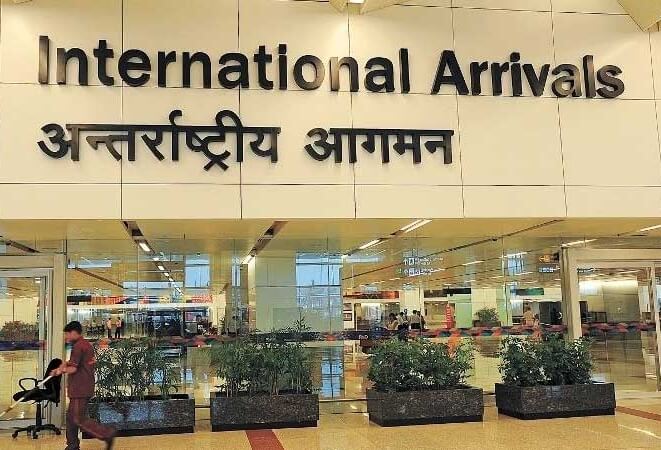
Air Suvidha for International Travel to India
After 40 days of being eliminated with effect from 21 November 2022, the Air Suvidha portal has been reinstated for travelers coming from or transiting in the high-risk countries . Whether you need to fill out an Air Suvidha form online or not, it depends on your travel origin and international transit. Is Air Suvidha mandatory for your US to India travel? Yes if your itinerary has international transit in any of the high-risk countries: Singapore, Japan, China, Thailand, South Korea, and Hong Kong. We recommend checking our Air Suvidha guide for up-to-date information on how to fill out a self-declaration form and what information to provide, if there is high-risk international transit in your itinerary.
Post-arrival procedure at Indian airports
The current post-arrival procedure for international arrivals at Indian airports is much less rigorous than that during the pandemic. All passengers of international flights to India are obligated to undergo a body temperature check (thermal screening) upon arrival, and only 2% of them are subject to post-arrival random COVID-19 testing . If you are in the 2%, your swab samples will be collected for random testing. You can leave the airport or take a connecting flight for onward domestic travel. Only asymptomatic children younger than 12 years are exempted from random testing in India.
‘What if my sample collected for random testing is found positive?’ Your swab sample will be sent for genomic testing at a government-affiliated laboratory. The test result will be communicated to you, and you will have to follow the standard protocol. ‘What if thermal screening detects COVID-19 symptoms in me?’ You will be isolated and tested at a designated medical facility at or outside the airport.
What is India’s post-arrival procedure for travelers from high-risk countries? The aforementioned post-arrival guidelines equally apply to travelers arriving in India from or through the high-risk countries. Besides, their pre-departure RT-PCR test report and the self-declaration form submitted on the Air Suvidha portal will be strictly verified on arrival in India.
Are you looking for cheap flight tickets for USA-India round trips this spring or summer? Indian Eagle has the best fare deals from Air India and other major airlines. You can conveniently book your travel online or call us at 01-800-615-3969 (24/7).
Related Stories
114 thoughts on “ india’s current guidelines for international arrivals from high-risk and non-risk countries ”.
I have a Visa that expires in 2027.. Will I be able to fly into India from the U.S. with this visa? How long am I able to stay? I have a family there that I stay with each time I come… I am vaccinated with Moderna. I need to know what I have to do to come for a visit with them…
Hi Team I will be travelling from Sharjah to Mumbai as final destination next week do I need to under go PCR test on arrival? As per above article UAE is exempted from pcr on Arrival can you please clarify my dought
Hi Maria! Mumbai Airport does still follows the guidelines issued by the government of Maharashtra earlier. Therefore, you will have to take a self-paid RT-PCR test on arrival and undergo 14-day home quarantine.
Do you have information if passengers (from countries at risk) still after 25th October have to wait for the result of the PCR test before being allowed to take a connecting flight.
Hi Swati! In our knowledge, travelers from the countries at risk don’t have to wait for the result of the test taken on arrival.
When is India going to address the issue of people who already have multi-entry visas… My visa don’t expire til 2027.. AM I going to be able to use this visa to come to India in December 2021? India needs to put out clear instructions as to what we are suppose to do to come for visit. I AM Vaccinated and just got my 3rd shot (a booster) I am USA Citizen. I need to know what to do… I would be flying from USA to Delhi
I found this on the Consulate of General India (this is the consulate in Houston, Texas)
The Government of India has decided to issue fresh tourist visas with effect from 15 October, 2021 for group tourism and from 15 November, 2021 for individual tourist travel. It may be noted that existing valid e-Tourist Visa/regular paper Tourist Visa, issued before 6 October 2021, will continue to remain suspended and travel on such visas is not permitted. Since individual travel on fresh tourist visa is allowed only from 15 November, applicants are advised not to send their application to the Consulate before 10 November, 2021. A Single Entry e-Tourist Visa/regular paper Tourist Visa valid for a stay of up to 30 days will be issued, which will have to be utilized within a period of 120 days from the date of issue. This visa will be issued on a gratis basis for a limited time once to each applicant. It may be noted that existing valid e-Tourist Visa/regular paper Tourist Visa issued before 6 October, 2021 will continue to remain suspended and travel on such visas is not permitted.
Traveling from US to india via Middle East, do we still need to take a PCR test in Middle East to enter india? And there is no quarantine required for travelers from US right? One test taken in US prior to boarding and uploading in india’s air suvidha website is enough? Can you please confirm?
Hi Juliana! No test to be taken in the Middle East. If Mumbai Airport is your port of entry, you will have to take a self-paid RT-PCR test on arrival in spite of the test you will take in the US.
For travelling in November from US to Mumbai via Dubai, does one need to undergo institutional quarantine if partially / not vaccinated? Are they still to conduct COVID tests after arrival despite of having negative RTPCR? Does Dubai halt add to the complication?
Hi Abee! There is no institutional quarantine in India. For travelers from the US, vaccination is still not a mandatory requirement for entry to India. As per Maharashtra’s guidelines, you need to take a self-paid RT-PCR test on arrival at Mumbai Airport.
My wife and 11 month old are travelling November 2nd. I am travelling with my 5 year old on November 18. Do we all need to take a covid test. Myself and my wife are vaccinated in USA. Myself and my wife are green card holders and our kids are US citizens.
Hi Manikandan! Everyone traveling to India, irrespective of their age, citizenship and travel origin, has to take an RT-PCR test within 72 hours prior to the scheduled departure.
HI, Thank you for patiently answering everyone’s questions on these confusing directives from India.
I am thinking of traveling from US to Dubai to Chennai in November. Do I have to take a Covid test upon arrival? Is there minimum stay required in India? What are the quarantine requirement in Tamil Nadu? If one is fully vaccinated, does it make it easier in terms of quarantine requirements?
Hi Resnick! As per India’s revised guidelines for travelers from abroad, bot the US and Dubai are outside the government’s list of countries at risk. On submission of a self-declaration form on Air Suvidha, you will receive a copy of the filled form to the registered email ID. If it shows a green strip, you don’t need to undergo an RT-PCR test on arrival at Chennai Airport. There is no minimum stay requirement. No quarantine for asymptomatic travelers from the US.
It looks like my actual itenary will be US – Athens – dubai to chennai.
Does it change anything?
Hi Resnick! You have higher chances of being exempted from taking a test on arrival.
Does Chennai airport require TN Epass requirement?
Hi, I am Pravin, will travel from Toronto with Negative RT-PCR test on 12th November to Ahmedabad via Abu Dhabi transit. Will I need to under go RT-PCR test at Ahmedabad being my final destination?
Hi Pravin! As per the revised guidelines that took effect on OCT 25, you are not required to take a test on arrival. Please note the local rules of the state may be different from the revised guidelines.
I have a qatar airways flight from US to India with transit in doha. They just cancelled my flight. Do we know why are they doing this and what should I do? I need to be in India by next week and the reschedule options are crazy expensive.
Hi Anurag! The flight might have been cancelled due to low occupancy. If you are a customer of IndianEagle.com, please call our customer support helpline.
I am US citizen and need to travel to India on Nov 15. Can I apply for Indian e tourist visa and travel? or is the travel not allowed on visitor visa
Hi Gaurav! You can apply for a fresh tourist visa for travel on or after NOV 15.
Hello IndianEagle team, thanks for sharing the guidance, much appreciated!
I am planning to travel from US to Delhi via Amsterdam (Netherlands). Would I be required to take RT-PCR test upon arrival on Delhi airport? If so, can I exit after giving the sample, or will have to wait till a negative result arrives? My domestic flight departs around four hours after I arrive (both are on Terminal-3). It seems I’ll miss the flight if I’ll be required to wait till the negative result arrives. Looking forward to your guidance.
Thank you in advance!
Hi Mustafa! If you’re asymptomatic, you have higher chances of being exempted from taking a test on arrival at Delhi Airport. In case you are required to undergo a test, you won’t have to wait for the test result. So, no worries.
Hi IndiaEagle team,
I have a flight from USA to Bangalore with one stop layover of 8 hrs in Dubai. Further i have a domestic connecting flight to Hyderabad after 4 hours in Bangalore airport. I am fully vaccinated with Pfizer vaccine.
I will be taking the RT PCR test within 72 hours of travel and upload on Air Suvidha.
I) Do I need to take any on arrival RT PCR test in Bangalore airport? Ii) will I be allowed to connect to the domestic flight to Hyderabad without any issues or testing requirements at Bangalore airport? iii) Is there any testing requirement on arriving in Hyderabad from Bangalore.?
Hi Siddharth! As per the revised guidelines, travelers arriving or transiting through the Middle East are not required to take a test on arrival if they are asymptomatic. No testing requirement at Hyderabad too.
Hi, We are planning to travel from US to Chennai on December 4th. We are a family of 4, 2 adults and 2 young kids aged 9 and 14. Just would like to confirm current requirements. 1. Need to upload RT-PCR negative report which is taken 72 hours prior to boarding. Interms of calculating the 72 hours, my domestic flight boarding starts on Dec 4th at 1:36PM but my first international connection at Chicago is at 6PM
Question is, if we take the RT-PCR test at 2PM on December 1st would that be okay and then upload the results as soon as it arrives?
2. We are reading about the Tamil Nadu e-Pass, When should we need to fill out the e-pass, can we go ahead do that now and get that out of the way
3. We are transiting through Abu Dhabi, are we subject to on arrival RT-PCR test at Chennai?
Thanks for you help
Hi Viswanathan! As per India’s revised guidelines, you are not subject to a post-arrival RT-PCR test if you are asymptomatic. You can register for a TN e-pass within 7 days prior to your scheduled departure. If your itinerary starting from the first domestic airport to the final destination has only one PNR, you should take an RT-PCR test within 72 hours prior to your scheduled travel from the first domestic airport in the US.
Thank you for the clarification . Much appreciated
I’m a US citizen with OCI. I’m planning to travel to Hyd at the end of December. I’m not sure why there are few options available now to book. I see a couple of flight options with reasonable prices. One is flying from SFO to Istanbul to Muscat to Hyderabad. Another is via Doha-Colombo-Hyd. Are these flights part of air bubble to agreement to land in India or will they cancel them eventually? Any special requirements (additional covid tests etc.) for travel through Istanbul? Thank you.
Hi Krishna! You can choose to travel the route Doha-Colombo-Hyd and book the flight on our portal IndianEagle.com. This is part of the air bubble corridor. You may need a transit visa (ETA) for Colombo.
Hello I am traveling usa to delhi via dubai (emirates)- with my wife and 2 kids {1 year (14 months) and 5 year old.}
I understand we still need the rt-pcr 72 hrs before departing under the new guidelines, but is there option for kids to be exempt using suvidha app?
Also is the molecule test that was mandatory at arrival in the past guidelines because of connecting flight in middle east(dubai) , has that ended? Can we just exit the airport on arrival? Or we still need to get the test?
Hi Sunny! Unfortunately, kids are not exempted from taking an RT-PCR test prior to traveling from the US. A post-arrival test is no more required for international travelers arriving from the US and transiting via the Middle East as per the revised guidelines if all of you are found asymptomatic on arrival at Delhi Airport.
hi do I need e pass travel from uk to Bangalore
Hi Thomas! You must register on https://sevasindhu.karnataka.gov.in/Sevasindhu/English for a travel pass.
Hi, my parents and I are traveling in november from boston to mumbia via british airways, so it has a layover in heathrow. We are all vaccinated and will comply with air suvidha rules. Will we need to be re tested in mumbai at arrival? or quarantine at the airport? i have elderly, that is why i am concerned.
Hi Mahebub! If you are found asymptomatic during thermal screening, you don’t need to take a post-arrival test at Mumbai Airport and undergo any sort of quarantine.
Hi, This is not clear what are rules for UK fully vaccinated arrival & what about kids ? Article says UK is in list of Risk & Category A both. I am travelling in December from UK to Mumbai then Ahmedabad. Do we have to take tests at mumbai airport? Thanks
Hi Pragnesh! Fully-vaccinated travelers from the UK, Germany and France are exempted from additional testing and quarantine in India. Make sure to upload your vaccination certificate and a negative RT-PCR test report on Air Suvidha within 72 hours prior to your scheduled departure from the UK.
Thanks for reply Indianeagle. We are planning to take test for all of us & have vaccine certificate for us. For kids only negative test is sufficient?
Hi Pragnesh! A negative RT-PCR test report is sufficient for kids traveling to India. FYI, kids below 5 years of age are exempted from taking an RT-PCR test before and after arrival in India.
Hello. I will be traveling on November 18 th from USA to Bangalore via Paris . I am taking delta airlines . Do I need to get the RTPCR test done once I arrive at Bangalore
Hi Ranjani! Not required if you are found asymptomatic during thermal screening at BLR Airport.
Hi there, If I want to travel for one week from USA to India, Is that a possibility? I notice 14 days self-monitoring for now. What is the rule if my trip s 7 days or less than 14 days. Thank you
Hi Mani! Self-monitoring of health is unlike home-quarantine. If you are fully vaccinated and asymptomatic, you are exempted from any sort of quarantine in India. So, you can travel back in a week of arrival.
Hi IndianEagle
I have trip which has been planned for over a year and all the changes are confusing, could you clarify a few areas please. Myself and my wife are flying from UK to Bangalore, with a 7 hour layover to then transit on to Sri Lanka. We are both fully vaccinated and will have taken a PCR test 72 hours prior to leaving the UK. I have two issues currently with our planning 1. Issues regarding getting an e-Visa to travel, are these likely to be available again for UK residents soon or do we need to travel to an Indian High Commission in UK for paper visas? 2. Being fully vaccinated would we need a PCR/molecular test when arriving in Bangalore? If so do we need to await the 6-8 hours as stated or is this superseded by the Pct 25th update?
Hi Whisker! The UK citizens are currently barred from availing an e-tourist visa to India. But they can seek an Indian transit visa through the e-visa facility. Please be advised to go through https://www.evisasindia.org/transit-visa-for-india-guide/ . Fully-vaccinated travelers from the UK are exempted from additional testing on arrival in India if they are found asymptomatic during thermal screening.
Hi, I am travelling from UK to Chennai on December 2021, do I need to take a swab test in airport after arrival and home quarantine? I am fully vaccinated and have proof of vaccination. Where do I apply for the TN e-pass? I will complete the Air Suvidha form and upload a negative RT-PCR test. Is there anything else I need to do? Thank you very much.
Hi Kunal! Fully-vaccinated travelers from the UK are exempted from additional testing and quarantine in India. Make sure to upload your vaccination proof and a negative RT-PCR test report on Air Suvidha. https://tnepass.tnega.org/ is where you can apply for a TN e-pass.
HI can i carry printed documents like my proof of vaccine and PVR test result instead of downloading on air suvidha app, i am really struggling to download documents.
Hi Ashalata! You are not supposed to download documents from Air Suvidha. Rather, you are required to upload your vaccination proof and a negative RT-PCR report on Air Suvidha, which you will find on the website of Delhi Airport. You must upload and carry these documents.
Hello.. What are rules as recovered Covid19 ? I hold a certificate from EU saying i recovered from Covid19 (immunity certificate) – can i enter with this ?
Hi Jesper! Despite having the recovery certificate, you need to take an RT-PCR test within 72 hours prior to your scheduled travel to India. If you are fully-vaccinated, you won’t face any sort of quarantine in India.
Hi, I will be traveling from US to Mumbai and then to Coimbatore in December with one PNR. I have layover in Mumbai for 8 hrs. My domestic flight to Coimbatore will be more than 72 hrs of RT-PCR test. Do i need to take new RT-PCR test in Mumbai to travel to Coimbatore?
Hi Swetha! The 72 hours of the RT-PCR test is not linked to your domestic flight to Coimbatore. It is counted prior to your scheduled departure on an international flight. So, no worries.
Hi, we are flying on AA flight of JFK to Delhi next week for two vaccinated parents with a unvaccinated 4 year child. We are to stay in a hotel near the Delhi Airport then take flight to Kolkata following day. All 3 of us hold oci.
I’ve noticed on latest guidelines document of 7 day home quarantine for unvaccinated minors. Would you know if this will cause trouble in Delhi with planned one night hotel stay then onward domestic flight on next day? Or can this home quarantine be avoided by having her do the pcr test before leaving even when not required? Thanks
Hi Vijay! FYI, asymptomatic kids below 5 years of age are exempted from taking an RT-PCR test before and after arrival in India, irrespective whether they are vaccinated or not. In our knowledge, unvaccinated minors are not subject to home-quarantine in India if they are asymptomatic.
Thanks. Also I later found this flow chart on India’s Ministry of Affairs website which cleared out confusion as well, it clearly shows that the quarantine requirement is only if you are from a “country at risk”. Moreover it seems to show that they dont care for vaccination status at all if your not from a “country at risk” so from USA/Canada no requirement but it does matter from Europe, UK, etc which are on the list:
https://mea.gov.in/Images/french/Algorithmforrevis.pdf
Hello Indian Eagle , What are rules as recovered Covid19 ? I hold a recovery letter from my medical provider saying I recovered from Covid19, can I enter with this ? and in spite of that, If I need to take test 72 hours within my departure and If I come out to be positive than, what will be the scenario?
Hi Jay! If you’re traveling to India from abroad, it is mandatory to take an RT-PCR test within 72 hours prior to your scheduled travel to India.
Hi, I am travelling from NewYork – Franfurt – Bengaluru on Dec 23rd. As per the new guidelines , do i need to take a self paid PCR test at BLR and wait for results before leaving the airport, even though i am fully vaccinated and provide RT-PCT negative at the time of boarding?
Hi Sella! As of now, the state government of Karnataka has made post-arrival RT-PCR testing mandatory for travelers arriving from or through South Africa, Botswana and Hong Kong. Your travel is still three weeks away. We will keep sharing latest updates on our Twitter page.
Hey great article! Thank you for the info. For those not fully vaccinated what is the quarantine requirement? does it have to happen in a special hotel? What if I don’t have a home to do it in? Thanks!
Hi Trina! Those not fully vaccinated are subjected to a self-paid RT-PCR test on arrival in India. If they are found negative, they will undergo 7-day home quarantine in their final destination. Institutional quarantine applies only if the result is positive. In case of having no residence, you can home-quarantine yourself at a hotel.
I am traveling WAS-FRA-DEL-BHO on the 5th of December. Am I required to take RT-PCR in Delhi and wait for the results before boarding connecting flight? Are the RAPID PCR test accepted in this case? Also, will we have to quarantine for 7 days after reaching destination. FWIW, we are fullly vaccinated.
Hi Sachin! Usually, fully-vaccinated travelers from the US are exempt from post-arrival COVID-19 testing, except at Mumbai Airport. But, only 2% of total passengers of a flight arriving from the US will be tested randomly on arrival at other airports in India. If you fall in 2%, you will have to give your swab sample for a non-payable RT-PCR test at Delhi Airport. If you are found asymptomatic during thermal screening at Delhi Airport, you will be allowed to take the connecting flight after giving your swab sample. No quarantine. You shall only self-monitor your health for 14 days.
Hi, Thanks for the article. I wanted to make sure the rules are updated as of Nov 30, 2021. I am fully vaccinated and I have a direct flight from USA to Delhi. Do I have to undergo 7 day quarantine?
Can you please clarify?
Hi Achal! If you are found asymptomatic during thermal screening at Delhi Airport, you will be given exemption from home-quarantine. You will only have to self-monitor your health for 14 days post arrival.
Thanks a bunch for your updates on the covid protocol. I am fully vaccinated traveling on Dec 2nd from SF to Delhi and connecting to Bangalore after a 5 hour layover. As per the new guidelines issued by Karnataka yesterday, do I still need to take a RT-PCR test on arrival at BLR and quarantine for 7 days even though I am fully vaccinated?
Thanks in advance for your help!
Hi Alex! Usually, fully-vaccinated travelers from the US are exempt from post-arrival COVID-19 testing, except at Mumbai Airport. But, only 2% of total passengers of a flight arriving from the US will be tested randomly on arrival at other airports in India. If you fall in 2%, you will have to give your swab sample for a non-payable RT-PCR test at Delhi Airport. If you are found asymptomatic during thermal screening at BLR Airport, no additional testing and quarantine. You shall only self-monitor your health for 14 days.
Sorry but this is confusing. You indicate her that US travelers to Mumbai will require a PCR test on arrival. But in reply to another question below, you say that vaccinated travelers are exempt from arrival PCR testing in Mumbai. So the 2% applies to Mumbai or is it true only for other airports? Thanks!
Hi John! Initially, Maharashtra made post-arrival testing mandatory for everyone traveling to Mumbai from abroad. With effect from December 2, 2021, this regulation has been revoked for fully-vaccinated travelers arriving from countries not at risk. 2% of the total passengers of every flight from a country not at risk will be randomly tested at any entry airport in India.
I am traveling on Saturday Dec 4. My itinerary is: Greensboro NC to LaGuardia to Montreal on American Airlines, then from Montreal to Doha to Cochin on Qatar Airways.
I was told I need an RT PCR test 72 hours before my trip. I have been receiving conflicting information: do I calculate 72 hours from the start of my domestic flight from Greensboro to LaGuardia, from the flight from LaGuardia to Montreal (my first international flight, or from Montreal to Doha?
Hi Promod! You need to take an RT-PCR test within 72 hours prior to your scheduled departure on an international flight from the US and that is LaGuardia to Montreal.
If my flight is connecting through Amsterdam, but my origin is US, do I have to do the 7 day quarantine?
Hi Kayal! If you are fully-vaccinated and if you are found asymptomatic in thermal screening on arrival, you will be allowed to go home and self-monitor your health for 14 days post arrival. Please note Mumbai/Pune is your first port of entry in India, the rules are different.
Hi, I’m travelling from Frankfurt to Bangalore on 10th Dec. I have connecting flight to Mangalore with 6 Hour Transit time. Since I have to wait for RTPCR test result, is the 6Hr. transit time is enough? Is it recommended to take appointment for rtpcr testing? What are the quarantine rules for travelers from Germany in Karnataka?
Thank you !
Hi Suman! If you choose to take a rapid RT-PCR test on arrival at BLR Airport, then 6-hr layover is sufficient. FYI, a rapid RT-PCR test costs approximately Rs. 5000 per person and the result is available in 1-2 hours. You can pre-book the test online. If you test negative, no institutional quarantine. Only 7-day home quarantine.
Hi, I have booked a flight in etihad airways from USA to Abu Dhabi to Bangalore in Dec last week. I’m an Indian passport holder living in USA. will it be a problem? Is India allowing passengers from Abu Dhabi originated from USA? as per the India Air bubble agreement, it says below ( https://www.civilaviation.gov.in/en/about-air-transport-bubbles ) Only Passengers originating from UAE or any country in South America or Africa should be allowed to travel on flights from UAE to India.
Hi Vinay! You can travel on Etihad Airways from USA to India. We booked Etihad flights for many of our customers and they traveled to their destinations in India hassle-free.
Hi traveling from UK to India via Kuwait (transit time 3 hrs) and arriving airport is Hyderabad Dec 16. I see you mention we can prebook RT-pcr test online. Where can we boom for it? Any website? If there is a website is it same for all airports in India? Or respective airport have their own website to book online? If so what is the website to pre-book online test at Hyderabad airport
Hi, I have booked a flight with Virgin Atlantic flight from New York to Delhi via London. I am fully vaccinated and will upload the pre-departure negative Covid test. I won’t be stepping out of the international transit passenger zone in London. Will I need to take an on arrival test? Thanks.
Hi Siddharth! As per the clarification from the Ministry of Civil Aviation, you are exempted from mandatory post-arrival testing if you are fully vaccinated and asymptomatic. But only 2% of the total passengers of every flight from a country not at risk, such as the US, will be tested randomly.
Going Newark to Mumbai nonstop on Dec 17. Fully vaccinated. With the new rules now following omicron, will we have a mandatory 7 day home quarantine in Mumbai. Alternately, if we choose to fly to Chennai – either right after Mumbai arrival, or after 3 days at home in Mumbai, can we do that? Or will the 7 day quarantine come in the way if we leave Mumbai airport? We heard that there are exceptions for short stays. Appreciate any advice, thank you.
Hi, I am going to Bengaluru from San Francisco with a transit stop in Dubai on Dec 25. Layover at Dubai is about 27 hours. I plan to visit dubai during this time. I am an indian passport holder with US green card. I will complete and upload RT-PCR test results to air suvidha 72 hours before departure at SFO. Do I still need to take the covid test on arrival on Bengaluru as I stayed in dubai for more than a day? Thanks
Hi Sunil! The UAE is not yet among the countries that the government of India has identified as countries at risk. Hence, in our knowledge, you may not be needed to take a test on arrival at BLR airport if you are fully vaccinated and asymptomatic. FYI, only 2% of the total passengers of a flight from a country not at risk will be tested randomly on arrival at any airport in India. If you’re identified for random testing, you can leave the airport or take a connecting domestic flight after giving your swab sample.
Hi, I have a domestic flight which starts at Noon and then international flight from JFK to DOH to AMD. Flight from JFK starts 9.30pm. When do i need to schedule my RT-PCR test? Within 72 hrs of my first leg of the journey which starts at Noon? Or within 72 hrs of my international flight from JFK which starts at 9.30pm?
Hi Tarang! You can take an RT-PCR test within 72 hours prior to your international flight from JFK.
So even if i have single ticket (same PNR), i need to calculate 72 hrs from the start of international flight and not the first domestic leg?
I am getting my pcr test done before travelling fro usa to mumbai Is this test same as Rtpcr.
Hi Ruchi! It may be the same. Make sure that the negative report must mention RT-PCR.
Hi Are OCI card holder travellers from US to Mumbai transiting through London, UK subject to 7 day home quarantine ?
We are not changing airport in London – will be in the airside all the time (5 hour transit)
Hi Krish! If you are fully-vaccinated, COVID negative and asymptomatic, you are exempt to home-quarantine in India.
Hi, I am going to Hyderabad from Los Angeles via Doha on Dec 28. The layover at Doha is about 17 hours. I am an Indian passport holder with H1B. I will complete and upload RT-PCR test results to air suvidha 72 hours before departure at LAX. Here are my questions:
– Do I have to get a Covid Test in Doha again? – Do I still need to take the on-arrival Covid Test at Hyderabad airport?
Hi Sameera! In our knowledge, taking a test is not mandatory during transit/layover at Doha Airport if you don’t leave the immigration area/transit area. Both the US and Qatar being not in the risk category, you are exempt to mandatory post-arrival testing. But if you are found symptomatic in thermal screening, if you are unvaccinated/partially vaccinated, or if you are identified among the 2% of total passengers arriving from a country not at risk (for random testing), your swab sample will be collected for a test before you leave the airport.
Hi I am flying to Mumbai from Australia next week with a layover of 5 hours in Sri Lanka. I am fully vaccinated but my daughter who is 9 years old is unvaccinated. We both will get tested within 72 hours prior to flying. Does my daughter need to get tested again on arrival at Mumbai Airport? If yes do I have to book an appointment in advance and will she have to be quarantined at home even if RTPCR is negative. Thanks
Hi Usha! Pre-booking a post-arrival test is mandatory for travelers from countries at risk. Neither Australia nor Sri Lanka is in the risk category. If you (though vaccinated) or your daughter is found symptomatic in thermal screening on arrival, a test will be conducted.
Hi, My cousin tested positive for covid 3 days back. His 14 days isolation period ends on Dec 31st . When can he fly from Toronto to New Delhi via Air Canada. Also, does he need to get a travel RT PCR test ?. My understanding, it will come positive regardless ,for several weeks. Kindly clarify. Thanks
Hi Ranu! As per the government of India’s guidelines, you must have a negative RT-PCR test report to travel to India.
Hello Indianeagle,
Thanks for this amazing site which is providing more information than airline website.
I have upcoming travel from US to India on Dec 30 2021 via London British airways and return trip from India to USA via London on Jan 3rd week of 2022 by British Airways.
We are green card holder with full vaccinated and having Indian passport holder, will outbound travel from India to U.S via London is Allowed or Not . Please do let us know on recent travel policy .
Hi Kumar! Outbound travel from India to the US via London is allowed for Indian passport holders. May we know the flight number (s) in your itinerary from India to the US?
Thanks for your reply. Here is the details:::
Onward travel from US to India via London- Last week of Dec 2021 BA192 (Dallas to London) and BA 119 (London to Bangalore)
Outbound travel from India to US (via London) – 3rd week of Jan,2022 Bangalore to London (BA 118) and London to Phoenix (BA 289).
I had booked my flight with American airlines, where they say as on date, I am eligible to travel from India to US via London, where British airways website says I can’t travel Outbound travel from India to U.S via London.
Not sure, which airlines is correct here….Please do let us know, whether we can make round trip from US to India (via london) being a Green card holder and fully vaccinated.
However, when we check with British Airways website & spoke to their Customer service team as part of Entry Additional Requirement, it was told to us by British Airways team and their website info that we are NOT eligible to travel (Indian Citizen -Out bound Travel from India). https://www.britishairways.com/en-us/information/incident/coronavirus/entry-requirements
——-Below Details from British Airways as Additional Requirement which states we are NOT ELIGIBLE—————————————————————————
India Travel eligibility Only customers meeting the criteria below, can travel between India and the UK on a British Airways flight. Please make sure you qualify before travel: Outbound flights from India: You must check if you are eligible to travel from India. You will not be allowed to board your flight if you do not meet these requirements. Indian nationals Due to India’s air travel agreement with the UK, please be aware that Indian nationals can only travel with British Airways from India to the UK, Ireland and Cayman Islands and must hold a valid visa. India nationals, regardless of foreign residency status, are not allowed to travel further to any other countries, unless their spouse is a foreign national or they are a seaman travelling with authorised documentation from the Ministry of Shipping.
Also not sure whether British airways -Covid19 information as Additional requirement is updated as on date or it is old info where BA website needs to update.
Hi Kumar! American Airlines and British Airways are codeshare partners. In our knowledge, you can travel from India on flights ticketed by American Airlines, though operated by BA.
I have an upcoming travel in January from USA to Mumbai with transit in Amsterdam. What are the current rules for testing upon arrival and home quarantine for transiting through Amsterdam (Netherlands) which in I believe a At risk country. We are fully vaccinated traveling with a 4 year old.
Hi Jay! As of today, fully-vaccinated, COVID-negative and asymptomatic travelers arriving from the US and transiting in Europe (without leaving the immigration area of the transit airport in a country at risk) are not bound to post-arrival testing and home-quarantine. Please note the regulations may be revised any time given the volatile scenario.
Hi IndianEagle, US citizen, fully vaccinated and Boosted (3 vaccine doses) traveling to Mumbai via Dubai (transit only, 3 hour connection time) in Mid January 2022. Upon arrival in Mumbai , will be going to Pune via private car. Final destination is Pune. Am I subject to mandatory 7-day home quarantine rule upon reaching Pune? Thanks,
Hi Vee Kay! 7-day home quarantine is mandatory for only those final destination is Mumbai. So, those traveling to Pune may not face home-quarantine if they are asymptomatic.
Thanks IndianEagle, However, I would be subjected to home quarantine in Mumbai, if I get out of the airport, right?
The guidance from MahaGovt says such passengers will not be allowed to use public transport and the DistrictCollector of Mumbai will arrange the transportation from them. Does that mean private transportation will not be allowed? thanks again for your feedback.
Hi Vee Kay! Private transportation is allowed for road travel from Mumbai Airport to any other part of the state. If you reside or stay in Mumbai, only then you will be subjected to mandatory home-quarantine.
Hello Indian Eagle – Our flight is on Jan 11th and will be travelling with 4 year old and 10 month old. Do they need to have RTPCR test or kids under 5 are exempt? Also when we should we take the covid test and submit Air suvidha ? Wea re planning to take the test on Jan 10th and submit air suvidha on 11th before our flight. Please advise if the form needs to be submitted early.
Hi Priya! As of now, kids under 5 years of age are exempt from taking an RT-PCR test before and after arrival. Travelers above five years of age are required to take an RT-PCR test, upload the negative report and submit a self-declaration form on Air Suvidha. Make sure to fill out and submit the self declaration form a few hours before your flight. Please note you can provide the details of your kids as co-travelers in the same self-declaration form.
Comments are closed.
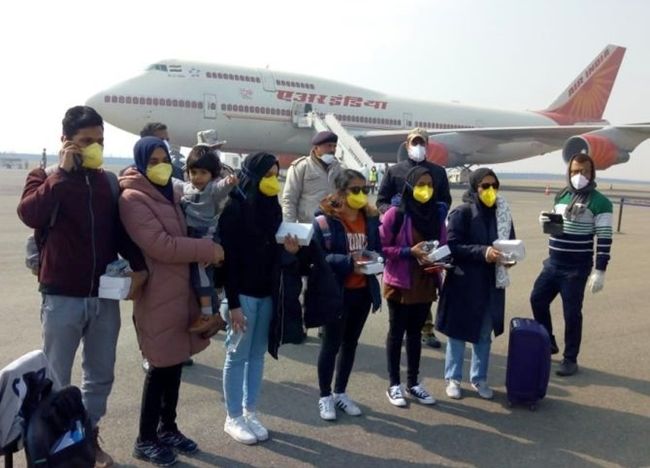
Special Air India Flights to and from India Cost Nearly Rs 2 Lakh per Traveler for One-way Journey
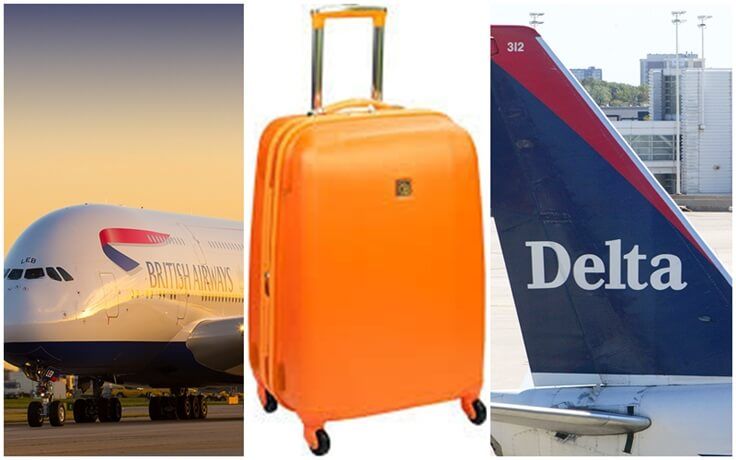
What are Hand-baggage Only Fares for British Airways and Delta Airlines Flights?

Future of Air Travel post COVID19: Empty Middle Seats or All Seats with Cover on Economy Flights
Trump’s temporary ban on immigration amid covid19 targets green cards, not h1b and other visas.
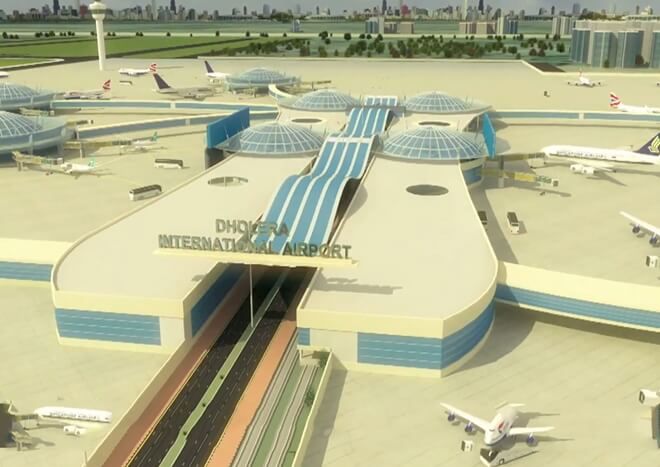
Gujarat’s Dholera International Airport, an Upcoming Air Travel Hub with Global Connectivity for 3-5m Flyers

- 1 year of Govt 2020 Towards a Healthy India
- One Year of MODI 2.0
- Skip to main content
- Screen Reader Acess
Ministry of Health and Family Welfare
Covid-19 india as on : 18 april 2024, 08:00 ist (gmt+5:30) (↑↓ status change since yesterday).
- Active 574 ( ) --> 3574 --> Active 574 ( ) fff -->
- Discharged 44501711 Discharged 44501711
- Deaths 533578 Deaths 533578 -->
COVID-19 Vaccination as on : 18 April 2024, 8:00 IST (GMT+5:30)

Latest Updates
- 19.07.2023 Guidelines for International Arrivals (updated on 19th July 2023)
- 28.03.2023 Clinical Guidance for Management of Adult COVID-19 Patients (updated on 28th March 2023)
- 10.02.2023 Guidelines for International Arrivals (updated on 10th February 2023)
- 29.12.2022 Guidelines for International arrivals (updated on 29th December 2022)
- 17.11.2022 List of Countries/Regions in respect of which primary vaccination schedule completion certificate is allowed to be considered (in context of guidelines for international arrivals updated on 2nd September 2022)
- 21.03.2022 Guidelines for Covid-19 Vaccination of Children Between 12-14 Years of Age
- 20.01.2022 Revised Comprehensive Guidelines for Management of COVID-19 in Children and Adolescents (below 18 years)
- 20.01.2022 Revised Guidelines for International Arrivals dated 20th January 2022
17.01.2022 Clinical Guidance for Management of Adult Covid-19 Patients (updated as on 17th January 2022)
COVID-19 Statewise Status (Click to expand)
- Travel Advisories
- Behavioural Health : Psycho-Social toll free helpline-08046110007
- Training Material
- States / Departments / Ministries
- Awareness Material
- Inspirational series on Healthcare Service Personnel
- 02.09.2022 Guidelines for International arrivals (updated on 2nd September 2022)
- 07.01.2022 Revised Guidelines for International Arrivals dated 7th January 2022
- 07.01.2022 List of Countries to be referred to in context of 'Guidelines for international arrivals' dated 7th January 2022
- 07.01.2022 Algorithm for revised guidelines for international arrivals_7th January 2022
- 30.11.2021 Guidelines for International Arrivals
- 30.11.2021 List of Countries to be referred to in context of 'Guidelines for international arrivals' dated 30th November 2021
- 30.11.2021 Algorithm for 'Guidelines for International Arrivals' (dated 30th November 2021)
- 28.11.2021 Guidelines for International Arrivals
- 28.11.2021 List of Countries to be referred to in context of 'Guidelines for international arrivals' dated 28th November 2021
- 28.11.2021 Algorithm for 'Guidelines for International Arrivals' (dated 28th November 2021)
- 13.11.2021 List of Countries to be referred to in context of 'Guidelines for international arrivals' dated 11th November 2021
- 11.11.2021 Guidelines for International Arrivals
- 11.11.2021 Algorithm for 'Guidelines for International Arrivals' (dated 11th November 2021)
- 20.10.2021 Guidelines for International Arrivals
- 20.10.2021 Algorithm for 'Guidelines for International Arrivals' (dated 20th October 2021)
- 06.09.2021 Addendum to Guidelines on International Arrivals dated 17th February 2021
- 25.08.2021 Guidelines for domestic travel (flight/train/ship/bus inter-state travel)
- 07.06.2021 Administration of Second Dose of Covishield Vaccine Prior to Prescribed Time Interval (after 28 days but before 84 days) to persons intending to undertake international travel for specific purposes
- 17.02.2021 Algorithm for international arrivals
- 17.02.2021 Guidelines for International Arrivals
- 30.01.2021 Extension of validity of Standard Operating Procedure for Epidemiological Surveillance & Response for the new variant of SARS-CoV-2
- 01.01.2021 SOP for the new variant of SARS-CoV-2 in the context of regulated resumption of limited flights originating from United Kingdom (UK) to India from 8th January 2021
- 22.12.2020 SOP for Surveillance and response for the new SARS Cov-2 variant
- 05.11.2020 Guidelines for international arrivals
- 02.08.2020 Revised guidelines for International Arrivals
- 24.05.2020 Guidelines for international arrivals
- 24.05.2020 Guidelines for domestic travel (air/train/inter-state bus travel)
- 20.03.2020 Instructions to all major and minor ports for dealing with(COVID-19)
- 19.03.2020 Additional Travel Advisory
- 18.03.2020 Standard Operating Procedure for Passenger Movement post Disembarkation
- 17.03.2020 Additional Travel Advisory
- 16.03.2020 Additional Travel Advisory
- 14.03.2020 Restrictions on International passenger traffic through Land Check Posts
- 13.03.2020 Restrictions on International passenger traffic through land check posts-COVID 19
- 11.03.2020 Consolidated Travel Advisory - 11 March 2020
- 11.03.2020 Visa restrictions issued by Bureau of Immigration (BOI) after meeting of GoM on COVID19 - 11 March 2020
- 11.03.2020 Decisions- High level Group of Ministers meeting to review current status and actions for prevention and management of COVID-19
- 10.03.2020 Standard Operating Procedure (SOP) for COVID-19 Management- International Cruise Ships at major Indian Ports
- 10.03.2020 Additional Travel Advisory
- 10.03.2020 Travel Advisory (Home Isolation)
- 06.03.2020 Travel Advisory
- 05.03.2020 Travel Advisory
- 03.03.2020 Travel and Visa restrictions related to COVID-19 in respect of Bureau of Immigration
- 02.03.2020 Travel Advisory
- 26.02.2020 Travel Advisory
- 05.02.2020 Travel Advisory
- 25.01.2020 Travel Advisory
- 17.01.2020 Travel Advisory
- 01.11.2020 Guidelines on Managing Mental Illness in Hospital Settings during COVID-19
- 31.07.2020 A/V on " Mental Health Matters..Let's Talk"
- 28.07.2020 COVID-19 Pandemic and Tobacco Use in India
- 15.07.2020 Caring for Health Care Warriors – Mental Health Support During COVID-19 (Jointly prepared by Department of Health & Family Welfare, Government of Karnataka and National Institute of Mental Health and Neurosciences, Bengaluru)
- 09.07.2020 Mental Health in the times of COVID-19 Pandemic - Guidance for General Medical and Specialised Mental Health Care Settings
- 18.06.2020 Video on Addressing Psychosocial Concerns of Healthcare Workers
- 20.04.2020 Audio Visual on Addressing Stigma Related to COVID-19
- 15.04.2020 Audio Visual on How to Safely Quit Tobacco During Lockdown (Hindi)
- 13.04.2020 Video on Yoga for Stress Management (Hindi)
- 11.04.2020 Video on meditation for stress management (English)
- 10.04.2020 Audio Visual on "How to Safely Stop Drinking During Lockdown
- 10.04.2020 Audio Visual on "Managing Mental Stress and Depression During Lockdown
- 10.04.2020 Video on Addressing Social Stigma Associated with COVID-19 (Hindi)
- 08.04.2020 Video on Addressing Social Stigma Associated with COVID-19
- 08.04.2020 Addressing Social Stigma Associated with COVID-19
- 08.04.2020 Video on Yoga for stress management (English)
- 08.04.2020 Video on meditation for stress management (Hindi)
- 05.04.2020 Lockdown to Knockdown COVID-19
- 05.04.2020 Lockdown to Knockdown COVID-19 - additional tips
- 01.04.2020 Taking care of mental health of children during COVID - 19
- 01.04.2020 Taking care of mental health of elderly during COVID -19
- 01.04.2020 Psychosocial issues among migrants during COVID-19
- 31.03.2020 Video on Practical tips to take care of your Mental Health during the Stay In
- 31.03.2020 Minding our minds during the COVID-19
- 28.03.2020 Various Health Experts on how to manage Mental health & Well Being during COVID-19 outbreak
- 27.03.2020 Dr. Shekhar P. Seshadri on 'Connecting with little ones during the COVID19 Lockdown- English
- 27.03.2020 Dr. Shekhar P. Seshadri on 'Connecting with little ones during the COVID19 Lockdown- Hindi
- 05.01.2022 Revised guidelines for Home Isolation of mild /asymptomatic COVID-19 cases
- 27.12.2021 Guidelines for COVID-19 Vaccination of Children between 15 to 18 years and Precaution Dose to HCWs, FLWs & 60+ population with co-morbidities
- 01.09.2021 FAQs on COVID-19 Vaccines & Vaccination Program
- 02.07.2021 Operational Guidance for COVID-19 Vaccination of Pregnant Women
- 08.06.2021 Revised Guidelines for implementation of National COVID Vaccination Program
- 27.05.2021 Guidelines on near to Home COVID Vaccination Centres for Elderly & Differently Abled Citizens
- 24.05.2021 Guidelines for Integration of Co-WIN with Third-party Applications Developed by Ecosystem Partners
- 06.05.2021 SOP for COVID-19 Vaccination of Persons without Prescribed Identity Cards
- 05.05.2021 Illustrated (Revised) Guidelines for Home Isolation of Mild / Asymptomatic COVID-19 Cases
- 29.04.2021 Revised guidelines for Home Isolation of mild /asymptomatic COVID-19 cases
- 29.04.2021 -->Protocol for Management of Covid - 19 in the Paediatric Age Group -->
- 23.04.2021 Clinical Guidance for Management of Adult Covid-19 Patients
- 22.04.2021 COVID 19 Proning for Self care
- 22.03.2021 FAQs on Co-WIN for Citizens
- 01.03.2021 Guidelines on Preventive Measures to Contain Spread of COVID-19 in Yoga Institutes & Gymnasiums
- 01.03.2021 SOP on preventive measures in Hotels and other Hospitality Units to contain spread of COVID-19
- 01.03.2021 SOP on preventive measures in Restaurants to contain spread of COVID-19
- 01.03.2021 SOP on preventive measures in shopping malls to contain spread of COVID-19
- 01.03.2021 SOP on preventive measures to be followed in Entertainment Parks
- 01.03.2021 SOP on preventive measures to contain spread of COVID-19 in religious places and places of worship
- 01.03.2021 SOP on preventive measures to contain spread of COVID-19 in skill or entrepreneurship training institutions, higher educational institutions
- 28.02.2021 User Manual - Citizen Registration & Appointment for Vaccination Ver 1.1
- 28.02.2021 Guidance Note for Co-WIN 2.0
- 13.02.2021 SOP on preventive measures to contain spread of COVID-19 in offices
- 30.11.2020 SOP on preventive measures in markets to contain spread of COVID-19
- 08.10.2020 SOP on preventive measures to be followed in Entertainment Parks and similar places to contain spread of COVID-19
- 06.10.2020 Standard Operating Procedures on preventive measures to contain spread of COVID-19 during festivities
- 13.09.2020 Post COVID management protocol
- 10.09.2020 Revised SOP on preventive measures to be followed while conducting examinations to contain spread of COVID-19
- 08.09.2020 SOP for partial reopening of Schools for students of 9th to 12th classes on a voluntary basis, for taking guidance from their teachers
- 08.09.2020 SOP on preventive measures to contain spread of COVID-19 in skill or entrepreneurship training institutions, higher educational institutions
- 02.09.2020 SOP on preventive measures to be followed while conducting examinations to contain spread of COVID-19
- 03.08.2020 Guidelines on Preventive Measures to Contain Spread of COVID-19 in Yoga Institutes & Gymnasiums
- 17.07.2020 Advisory for Gated Residential Complexes with regards to COVID-19
- 17.07.2020 Guidelines for Gated Residential Complexes Desirous of Setting Up Small Covid Care Facility by Resident Welfare Associations / Residential Societies / Non-Governmental Organizations (NGOs)
- 13.07.2020 Fixation of rate for rt PCR Test for COVID-19 in respect of Central Services (Medical Attendance) beneficiaries
- 02.07.2020 Revised guidelines for Home Isolation of very mild/pre-symptomatic/asymptomatic COVID-19 cases
- 04.06.2020 SOP on preventive measures to contain spread of COVID-19 in offices
- 04.06.2020 SOP on preventive measures to contain spread of COVID-19 in religious places/places of worship
- 04.06.2020 SOP on preventive measures in Restaurants to contain spread of COVID-19
- 04.06.2020 SOP on preventive measures in shopping malls to contain spread of COVID-19
- 04.06.2020 SOP on preventive measures in Hotels and Other Hospitality Units to contain spread of COVID-19
- 18.05.2020 Guidelines on preventive measures to contain spread of COVID-19 in workplace settings
- 18.05.2020 Revised Strategy for COVlD-19 testing in lndia
- 10.05.2020 Revised guidelines for Home Isolation of very mild/pre-symptomatic COVID-19 cases [Revised and reissued on 02.07.2020]
- 08.05.2020 Revised discharge policy for COVID-19
- 07.05.2020 Additional guidelines for quarantine of returnees from abroad / contacts / isolation of suspect or confirmed cases in private facilities
- 18.04.2020 Advisory against spraying of disinfectant on people for COVID-19 management
- 18.04.2020 EoI cum Bid Document for Procurement of Medical Oxygen Cylinder on urgent basis during COVID 19 situation
- 07.04.2020 Revised Guidelines for Dialysis of COVID – 19 patients
- 07.04.2020 Pradhan Mantri Garib Kalyan Package: Insurance Scheme for Health Workers Fighting COVID-19 - FAQs
- 07.04.2020 Ministry of AYUSH advise on immunity boosting measures for self care during COVID 19 crisis
- 05.04.2020 Guidelines for Handling, Treatment and Disposal of Waste Generated during Treatment/Diagnosis/ Quarantine of COVID-19 Patients
- 05.04.2020 Guidelines for Quarantine facilities COVID-19
- 03.04.2020 Advisory & Manual on use of Homemade Protective Cover for Face & Mouth
- 03.04.2020 DO Letter of Secretary, Ministry of Human Resource Development for Arogya Setu App, and Light Candle at 09:00 PM on 5 April 2020 for 9 Minute.
- 01.04.2020 Guidelines for Dialysis of COVID – 19 patients
- 30.03.2020 Order issued by the Government of NCT of Delhi Relating to Landlords, House Owners dated 24 March 2020
- 30.03.2020 Order issued by the Government of NCT of Delhi Relating to SOPs during Lock Down dated 24 March 2020
- 29.03.2020 Health Advisory for Elderly Population of India during COVID-19
- 29.03.2020 Guidelines on disinfection of common public places including offices
- 27.03.2020 Office Memorandum-CGHS-Reimbursement of OPD Medicines Special Sanction in view of COVID-19
- 27.03.2020 Office Order-CGHS-Guidelines in view of the Corona Virus (COVID-19) Infection-issue of medicines
- 27.03.2020 Office Order-CGHS-Guidelines in View of COVID-19
- 26.03.2020 Gazette Notification - Hydroxychloroquine now a schedule H1 drug, can be sold on prescription only
- 26.03.2020 Press Note on Pradhan Mantri Garib Kalyan Yojna package from Ministry of Finance
- 16.03.2020 Advisory - Social Distancing
- 15.03.2020 Guidelines on Dead Body Management
- 11.03.2020 Guidelines for home quarantine
- 11.03.2020 Guidelines on use of masks by public
- 05.03.2020 Advisory - Mass Gatherings
- 17.01.2022 Clinical Guidance for Management of Adult Covid-19 Patients (updated as on 17th January 2022) -->
- 09.01.2022 Revised Advisory for managing Health Care Workers (HCWs) working in COVID and Non-COVID areas of the Health Care Facilities (updated on 9th January 2022)
- 09.01.2022 Revised Discharge Policy for COVID-19 (updated on 9th January 2022)
- 24.12.2021 COVID Management Guidance for adults
- 21.10.2021 National Comprehensive Guidelines for Management of Post-Covid Sequelae
- 29.09.2021 National Guidelines for Safe Dental Practice During Covid-19 pandemi
- 17.08.2021 Genomic Surveillance for SARS-CoV-2 In India: Indian SARS-CoV-2 Genomics Consortium (INSACOG) (Updated guidelines and SOPs)
- 18.06.2021 Guidelines for Management of COVID-19 in Children
- 07.06.2021 Advisory for Rational use of Remdesivir for COVID-19 Treatment
- 01.06.2021 Clinical Guidance on Diagnosis and Management of Diabetes at COVID-19 Patient Management facility
- 24.05.2021 Updated Detailed Clinical Management Protocol for adult cases of COVID19
- 19.05.2021 Revised COVID-19 Clinical Management Protocol Algorithm (Adults)
- 16.05.2021 SOP on COVID-19 Containment & Management in Peri-urban, Rural & Tribal areas
- 03.05.2021 Renewal of Pradhan Mantri Garib Kalyan Package: Insurance Scheme for Health Workers fighting COVID-19 w.e.f. 24.04.2021 for a further period of 180 days
- 23.04.2021 -->Clinical Guidance for Management of Adult Covid-19 Patients -->
- 27.02.2021 List of CGHS empanelled Hospitals that can be used by States/ UTs as Covid-19 vaccination centres
- 27.02.2021 List of Ayushman Bharat PMJAY empanelled Hospitals that can be used by States/ UTs as Covid-19 vaccination centres
- 28.12.2020 Guidelines on Safe Ophthalmology Practices in Covid-19 Scenario
- 13.10.2020 Guidelines for management of co-infection of COVID-19 with other seasonal epidemic prone diseases
- 04.09.2020 Advisory on Strategy for COVID-19 Testing in India
- 01.09.2020 FAQs on COVID-19 from AIIMS e-ICUs
- 26.08.2020 Guidance note on bi-directional TB-COVID screening
- 26.08.2020 Clinical Guidance on Diabetes Management at COVID-19 Patient Management Facility
- 19.08.2020 Guidelines for eye care facilities in the COVID-19 scenario
- 07.08.2020 Extension of Pradhan Mantri Garib Kalyan Package : Insurance Health Workers fighting COVID-19 for a further period of 90 days beyond the original period
- 03.07.2020 -->Updated Clinical Management Protocol for COVID-19 -->
- 02.07.2020 -->Revised guidelines for Home Isolation of very mild/pre-symptomatic/asymptomatic COVID-19 cases
- 29.06.2020 Second Interim National Guidance to Blood Transfusion Services in India in light of Covid-19 pandemic, 25th June 2020
- 27.06.2020 Clinical Management Protocol for COVID-19 [Updated on 03.07.2020]
- 18.06.2020 Updated Advisory for managing Health care workers working in COVID and Non-COVID areas of the hospital
- 13.06.2020 Clinical Management Protocol for COVID-19 [Revised and reissued on 27.06.2020]
- 03.06.2020 Guidelines for safe ENT practice in COVID-19
- 27.05.2020 Advisory on re-processing and re-use of eye protection - Goggles
- 27.05.2020 Guidance note on Essential RMNCAH+N Services during and post COVID
- 22.05.2020 Revised advisory on the use of Hydroxychloroquine (HCQ) as prophylaxis for COVID-19 infection
- 21.05.2020 Guidance note for Immunization services during and post COVID outbreak
- 20.05.2020 "List of manufacturers of PPE coveralls who have been approved by accredited testing facilities is available on the Ministry of Textiles website at the following URL " https://texmin.nic.in/covid/certificates.php
- 19.05.2020 Guidelines for Dental Professionals in Covid-19 situation
- 15.05.2020 -->Advisory for managing Health care workers working in COVID and Non-COVID areas of the hospital [Revised and reissued on 18.06.2020]
- 15.05.2020 Updated Additional guidelines on rational use of Personal Protective Equipment (setting approach for Health functionaries working in non-COVID areas)
- 14.05.2020 Guidelines for RT-PCR based Pooled Sampling
- 11.05.2020 District level Facility based surveillance for COVID-19
- 10.05.2020 Updated Frequently Asked Questions (FAQs) on Revised Discharge Policy
- 08.05.2020 Updated Revised discharge policy for COVID-19
- 01.05.2020 Additional guidelines on rational use of Personal Protective Equipment (setting approach for Health functionaries working in non-COVID areas) [Reissued on 15 th May 2020]
- 20.04.2020 Guidelines to be followed on detection of suspect or confirmed COVID-19 case in a non-COVID Health Facility
- 18.04.2020 Modification in Medicine List in Telemedicine Practice Guidelines
- 17.04.2020 Guidelines issued by ICMR for Rapid antibody test' in Hotspot Area'
- 15.04.2020 Advisory for personal use of N95 masks issued to all healthcare workers by AIIMS, New Delhi Hindi
- 15.04.2020 Advisory for personal use of N95 masks issued to all healthcare workers by AIIMS, New Delhi English
- 14.04.2020 Advisory on feasibility of using pooled samples for molecular testing of COVID-19 by ICMR
- 11.04.2020 Video for Insurance coverage for our Health workers - Caring for those who are taking care of the nation
- 11.04.2020 Insurance coverage for our Health workers - Caring for those who are taking care of the nation (GIF)
- 09.04.2020 COVID-19 & Pregnancy & Labour Management
- 09.04.2020 Advisory for Voluntary Blood Donation during COVID- 19 scenario
- 08.04.2020 Video on use of PPE in different areas of the hospital
- 07.04.2020 Guidance document on appropriate management of suspect/confirmed cases of COVID-19 - Types of Covid-19 dedicated facilities
- 05-04-2020 Advisory & Strategy for Use of Rapid Antibody Based Blood Test
- 01-04-2020 Guidelines for Dialysis of COVID – 19 patients
- 31-03-2020 Revised National Clinical Management Guidelines for COVID-19
- 31-03-2020 Essential Technical Features for Ventilator for COVID-19
- 29-03-2020 Standard Operating Procedure (SOP) for transporting a suspect/confirmed case of COVID-19
- 27-03-2020 SOP for allocation of Residents/PG Students and Nursing Students as part of hospital management of COVID-19
- 27-03-2020 Office Memorandum-CGHS-Reimbursement of OPD Medicines Special Sanction in view of COVID-19
- 27-03-2020 Office Order-CGHS-Guidelines in view of the Corona Virus (COVID-19) Infection-issue of medicines
- 27-03-2020 Office Order-CGHS-Guidelines in View of COVID-19
- 26-03-2020 Gazette Notification - Hydroxychloroquine now a schedule H1 drug, can be sold on prescription only
- 26-03-2020 Webinar schedule of COVID-19 of AIIMS New Delhi
- 26-03-2020 Doorstep Delivery of Drugs to Consumers
- 25-03-2020 Telemedicine Practice Guidelines
- 24-03-2020 Letter from Ministry of Consumer Affairs, Food & Public Distribution to States to take appropriate measures to ensure the availability of Ethyl Alcohol/Ethanol/ENA to the manufacturers of hand sanitizers in order to contain Corona Virus COVID- l9
- 24-03-2020 Guidelines on rational use of Personal Protective Equipment
- 23-03-2020 Advisory on the use of Hydroxy-chloroquin as prophylaxis for SARS-CoV-2 infection [Revised guidelines issued on 22.05.2020]
- 22-03-2020 Notification of ICMR guidelines for COVID-19 testing in private laboratories in India
- 20-03-2020 Advisory for Hospitals and Medical Institutions
- 17-03-2020 Latest Testing Guidelines of Indian Council of Medical Research (ICMR)
- 17-03-2020 Guidelines for notifying COVID-19 affected persons by Private Institutions
- 17-03-2020 Discharge policy for suspect or confirmed Novel Coronavirus (2019-nCoV) cases
- 17-03-2020 Updated Guidelines on Clinical Management of COVID-19 (Repealed on 31st March 2020)
- 15-03-2020 SOP for Mock Drill on 22nd March 2020 for Hospital Preparedness
- 15-03-2020 Revised Guidelines/Strategy for COVID-19 testing by Indian Council of Medical Research (ICMR)
- 15-03-2020 Guidelines on Dead Body Management
- 09-03-2020 ICMR strategy for COVID-19 testing in India
- 25-01-2020 Guidelines for Infection Prevention and Control in Healthcare Facilities
- 24-01-2020 Guidance for sample Collection, Packaging and Transportation for Novel Coronavirus
- 09.06.2022 Operational Guidelines for Revised Surveillance Strategy in context of COVID-19
- 24.11.2021 Guideline for the Provision of FP services during and post COVID-19 Pandemic
- 30-12-2020 COVID-19 Vaccine Communication Strategy
- 28-12-2020 COVID-19 vaccines operational guidelines
- 27-12-2020 Document for Genomic sequencing in India
- 21-05-2020 Webinar Series on Obstetric Care during COVID-19
- 22-04-2020 Onboarding of States / Union Territories' COVID-19 Warriors to iGoT (Integrated Government Online Training) courses on DIKSHA Platform on COVID-19 pandemic
- 19-04-2020 Webinar on Mechanical Ventilation for physicians by AIIMS, New Delhi
- 16-04-2020 Webinar schedule for training of Physicians officers on COVID-19 and Mechanical Ventilation by AIIMS New Delhi
- 13-04-2020 iGOT (Integrated Govt. Online Training) courses on DIKSHA platform on COVID-19 pandemic
- 11-04-2020 Second COVID Webinar Series for Nurses by AIIMS New Delhi
- 07-04-2020 Webinar on COVID-19 and Management of Pregnancy
- 07-04-2020 iGOT Training Modules for COVID-19 Management
- 07-04-2020 Ayush master trainers Training by Ministry of Ayush
- 06-04-2020 Updated List of Training Resources for COVID - 19 Management
- 02-04-2020 Webinar schedule for training of Physicians officers on COVID-19 by AIIMS New Delhi
- 02-04-2020 Revised Webinar schedule for training of Nursing officers on COVID-19 by AIIMS New Delhi
- 02-04-2020 Video on Training for Ventilatory Support for COVID-19
- 02-04-2020 Advisory for Human Resource Management of COVID-19
- 31-03-2020 Training for Nursing Personnel
- 31-03-2020 Revised Webinar schedule of COVID-19 of AIIMS New Delhi
- 30-03-2020 Training Resources
- 30-03-2020 Webinar series for Epidemiology, Infection Control, Clinical Management and Nursing of COVID-19 by AIIMS New Delhi
- 28-03-2020 Webinar schedule for Nursing officers training of COVID-19 in AIIMS New Delhi
- 21.02.2022 Public Notice regarding Environment and Social Management Framework (ESMF) for India COVID-19 Emergency Response and Health Systems Preparedness Project(P173836)
- 03.12.2021 FAQs on SARS-CoV-2 Variant-Omicron
- 05.10.2021 Guidelines on Operationalization of Maternal Health Services during the COVID-19 Pandemic
- 16.06.2021 Guidelines on Operationalisation of COVID care services for children and adolescents
- 03.05.2021 Augmenting Human Resources for Covid-19
- 23.04.2021 --> Clinical Guidance for Management of Adult Covid-19 Patients -->
- 21.04.2021 Liberalised Pricing and Accelerated National Covid-19 Vaccination Strategy
- 07.04.2021 Guidelines for COVID-19 Vaccination at WorkPlace
- 02.04.2021 Guidelines for COVID Vaccine Payment to NHA
- 18.01.2021 Implementation plan for covaxin
- 14.01.2021 Letter from Additional Secretary, MoHFW regarding Contraindications and Factsheet for COVID-19 vaccines
- 09.10.2020 Environmental and Social Management Framework for India COVID-19 Emergency Response and Health Systems Preparedness Project (P173836)
- 08.10.2020 Reimbursement of OPD medicines to CS (MA) beneficiaries: Special Sanction in view of COVID-19 till 31 December 2020
- 05.09.2020 Manual for Surveillance Teams for containment zones
- 05.09.2020 Containment and Surveillance Manual for Supervisors in containment zones
- 03.09.2020 Reimbursement of OPD medicines to CS (MA) beneficiaries: Special Sanction in view of COVID-19
- 16.07.2020 Letter from ICMR to States and UTs for District wise login credentials for rapid antigen testing for COVID 19
- 16.05.2020 Updated Cluster Containment Plan for COVID-19
- 16.05.2020 Updated Containment Plan for Large Outbreaks of COVID-19
- 16.05.2020 Preparedness and response to COVID-19 in Urban Settlements
- 06.05.2020 Railway Coaches as COVID Care Centre: Guidance document on appropriate management of suspect-confirmed cases of COVID-l9
- 27-04-2020 Guidelines for Home Isolation of very mild/pre-symptomatic COVID-19 cases
- 22.04.2020 Measures Undertaken To Ensure Safety Of Health Workers Drafted For COVID-19 Services
- 20.04.2020 Hon'ble HFM Letter to States/UT's regarding Blood & Blood Disorders
- 20.04.2020 Directions from Ministry of Home Affairs to State for promotion of Voluntary Blood Donation
- 17.04.2020 Updated Containment Plan for Large Outbreaks of COVID-19 [Reissued on 16 th May 2020]
- 14.04.2020 Advisory for effective management & ensuring safe drinking water during lock down due to COVID-19
- 14.04.2020 Guidance note for enabling Delivery of Essential Health Services during the COVID 19 Outbreak
- 11.04.2020 Letter from Ministry of Home Affairs to Administrators, DGPs of all States/UTs and CP Delhi regarding Security to all Doctors , Staff of Hospitals in respect of COVID-19
- 11.04.2020 Orders of Ministry of Home Affairs to Ministries/States/UTs for exemption to Fishing
- 08.04.2020 Release of funds to States/UTs under NHM for Emergency Response and Health System Preparedness Package for COVID-19
- 05.04.2020 Advisory issued by Ministry of Rural Development to the State Rural Livelihoods Missions on actions to be taken to address the COVID 19 outbreak
- 04.04.2020 Letter to States/UTs with Control Room Emergency contact numbers of All India Industrial Gases Manufacturer’s Association
- 04.04.2020 Letter to States/UTs and Heads of all the Associations of Doctors/Healthcare providers regarding 'Pradhan Mantri Garib Kalyan Package: Insurance Scheme with Forms
- 04.04.2020 Containment Plan for Large Outbreaks of COVID-19 Updated
- 03.04.2020 Request to States/UTs to provide support to ICMR Labs doing COVID-19 Testing
- 03.04.2020 DO Letter of Secretary, Ministry of Human Resource Development for Arogya Setu App, and Light Candle at 09:00 PM on 5 April 2020 for 9 Minute
- 01-04-2020 Letter from Secretary Health to Chief Secretaries of all States/UTs in connection with directions of Hon'ble Supreme Court for migrant labourers
- 31-03-2020 DO Letter of Secretary, Department of Rural Development regarding utilizing services of DDU-GKY trained youth
- 31-03-2020 List of youth trained under DDU-GKY (Deen Dayal Upadhyaya Grameen Kaushal Yojna)
- 31-03-2020 Advisory for quarantine of migrant workers
- 31-03-2020 Preliminary Stakeholder Engagement Plan (SEP) – India COVID-19 Emergency Response and Health Systems Preparedness Project (P173836)
- 31-03-2020 Environmental and Social Commitment Plan (ESCP) - India COVID-19 Emergency Response and Health Systems Preparedness Project (P173836)
- 30.03.2020 D.O Letter from Home Secretary to all Secretaries of Government Of India on movement of Goods dated 29.03.2020
- 29.03.2020 Standard Operating Procedure (SOP) for transporting a suspect/confirmed case of COVID-19
- 28.03.2020 Letter from National Pharmaceutical Pricing Authority (NPPA) to states for Ensuring availability and distribution of Masks, Gloves and Sanitizers
- 26.03.2020 D.O. Letter from Cabinet Secretary to Chief Secretaries for management and containment of COVID-19 dated 26.03.2020
- 24.03.2020 D.O. Letter 3 from Secretary, Human Resource Development to Chief Secretaries for temporary Medical camps in Jawahar Navodaya Vidyalayas dated 24th March 2020
- 24.03.2020 DO Letter of Home Secretary regarding urgent need to take stringent actions to contain the spread of COVID-19.
- 24.03.2020 Annexure to Ministry of Home Affairs Order No. 40-3/2020-D Dated 24-3-2020.
- 24.03.2020 D.O. Letter 2 from Cabinet Secretary to Chief Secretaries for management and containment of COVID-19 dated 24.03.2020
- 24.03.2020 D.O. Letter from Secretary Shipping to States for smooth carrying of goods to & from ports
- 24.03.2020 Guidelines on rational use of Personal Protective Equipment
- 24.03.2020 Model Micro-plan for containment of local transmission of COVID-19
- 24.03.2020 D.O. Letter from Secretary, Human Resource Development to Chief Secretaries for temporary Medical camps in Jawahar Navodaya Vidyalayas dated 24th March 2020
- 24.03.2020 Letter from Ministry of Consumer Affairs, Food & Public Distribution to States to take appropriate measures to ensure the availability of Ethyl Alcohol/Ethanol/ENA to the manufacturers of hand sanitizers in order to contain Corona Virus COVID- l9
- 24.03.2020 D.O. Letter from Cabinet Secretary to Chief Secretaries for management and containment of COVID-19 dated 24.03.2020
- 23.03.2020 D.O. Letter from Cabinet Secretary to Chief Secretaries for management and containment of COVID-19 dated 23.03.2020
- 23.03.2020 Letter from Ministry of Home Affairs - Restrictions on international passenger traffic through Authorized Immigration Check Posts in view of the COVID-19
- 23.03.2020 Office Order from Ministry of Shipping - State Government/Union Territories have issued prohibitory orders, Imposing restrictions on non-essential services in view of the COVID-19
- 22.03.2020 D.O. Letter from Cabinet Secretary to Chief Secretaries for management and containment of COVID-19 dated 22.03.2020
- 21.03.2020 Revised Guidelines/Strategy for COVID-19 testing by Indian Council of Medical Research (ICMR)
- 20.03.2020 Letter from Secretary, Dept of Higher Education/School Education regarding Digital/e-Learning
- 20.03.2020 SOP for Mock Drill on 22nd March 2020 for Hospital Preparedness
- 19.03.2020 Advisory from Department of Sports for Sports Organizations
- 19.03.2020 DOPT OM - Preventive measures to contain the spread of COVID-19 in Training Institutes
- 18.03.2020 Letter from Department of Food & Public Distribution regarding Hand Sanitizer Production and Availability
- 18.03.2020 DO Letter from Secretary, DoHFW to State Chief Secretaries regarding Social Distancing Measures
- 18.03.2020 Monitoring of the quality standards of hand Sanitizers
- 18.03.2020 Directives from MoHRD for all Educational Institutions and Examination Boards regarding precautions to be taken in light of COVID-19
- 18.03.2020 DoPT OM - Preventive measures to be taken to contain the spread of Novel Coronavirus (COVID-19)
- 16-03-2020 Advisory - Social Distancing
- 14-03-2020 Norms of assistance from State Disaster Response Fund (SDRF) in wake of COVID-19 outbreak
- 13-03-2020 National Pharmaceutical Pricing Authority (NPPA) Order regarding Masks, Hand Sanitizers and Gloves
- 13-03-2020 Gazette Notification - Essential Commodities Order, 2020 - with regards to Masks and Hand Sanitizers (770KB)
- 11-03-2020 Invoking powers under Disaster Management Act 2005
- 11-03-2020 Decisions- High level Group of Ministers meeting to review current status and actions for prevention and management of COVID-19
- 10-03-2020 Standard Operating Procedure (SOP) for COVID-19 Management- International Cruise Ships at major Indian Ports
- 09-03-2020 Cabinet Secretary DO letter dated 8th March, 2020 to all Government of India Ministries on COVID-19 management
- 06-03-2020 Advisory for Exemption to mark biometric attendance in AEBAS
- 05-03-2020 Advisory - Mass Gatherings
- 03-03-2020 Kerala COVID 19 updates and advisory
- 03-03-2020 Advisory for Hospitals and Medical Institutions
- 02.03.2020 Cluster Containment Plan for COVID-19 [Reissued on 16 th May 2020]
- 25-01-2020 Guidance on Surveillance for human infection with 2019-nCoV
- 03.09.2020 Reimbursement of OPD medicines to CS (MA) beneficiaries- Special Sanction in view of COVID-19
- 15.05.2021 Reimbursement of OPD medicines to CS (MA) beneficiaries: Special Sanction in view of COVID-19
- 04.06.2020 Reimbursement of OPD medicines to CS (MA) beneficiaries: Special Sanction in view of COVID - 19
- 05-05-2020 Reimbursement of OPD medicines to CS (MA) beneficiaries: Special Sanction in view of COVID - 19
- 19-04-2020 Preventive Measures to be taken by officals of Ministry of Health and Family Welfare
- 19-04-2020 Consolidated Revised Guidelines on the measures to be taken by Ministries/Department of Government of India, State/UT Governments for containment of Covid-19
- 03-04-2020 Extension of Validity of CGHS Card in view of the Corona virus (COVID_19) infection
- 01-04-2020 Reimbursement of OPD medicines to CS(MA) beneficiaries: Special sanction in view of COVID-19
- 29-03-2020 Guidelines on disinfection of common public places including offices
- 19-03-2020 DOPT OM - Preventive measures to contain the spread of COVID-19 in Training Institutes
- 18-03-2020 Directives from MoHRD for all Educational Institutions and Examination Boards regarding precautions to be taken in light of COVID-19
- 06.03.2020 Advisory for Exemption to mark biometric attendance in AEBAS
- 27.09.2022 FAQs on COVID-19 Vaccines & Vaccination Program
- 12.01.2022 Revised (Illustrated) Guidelines for Home Isolation of Mild / Asymptomatic COVID-19 Cases
- 18.10.2021 Sentinels of the Soil: A tribute to Frontline and Healthcare workers in India's fight against COVID-19
- 07.10.2021 Video on use of Pulse Oximeter English Hindi
- 07.10.2021 Video on Proning Position Hindi
- 14.09.2020 The World's Largest Vaccination Drive
- 14.07.2021 COVID-19 Vaccination of Pregnant Women English Hindi
- 14.07.2021 Counseling booklet for Frontline workers and Vaccinators English Hindi
- 22.06.2021 Toolkit for Youth Campaign on COVID Appropriate Behaviour, Vaccination drive and Psychosocial well-being English Hindi
- 12.04.2021 Jan Andolan
- 02.03.2021 FAQs on COVID 19 vaccine for Healthcare providers and Frontline workers (2)
- 10.02.2021 COVID 19 Vaccination - A Guide for Eligible Beneficiaries
- 10.02.2021 COVID 19 Vaccination - A Guide for Healthcare and Front-line Workers
- 04.01.2021 Audio visual on Dr Guleria, Director, AIIMS sharing FAQs on COVID 19 vaccine rollout Episode 1/3 Episode 2/3 Episode 3/3
- 17.12.2020 FAQs on COVID 19 Vaccine for Healthcare providers and Frontline workers
- 17.12.2020 FAQs on COVID 19 Vaccine for General Public
- 17.12.2020 FAQs on COVID 19 Vaccine
- 12.10.2020 Encouraging youth to advocate against stigma and discrimination during COVID-19 - English
- 12.10.2020 Encouraging youth to advocate against stigma and discrimination during COVID-19 - Hindi
- 15.07.2020 Patients, their families and health care providers stand together to counter stigma and discrimination associated with COVID19
- 15.07.2020 A/V on 15 COVID Appropriate Behaviours English
- 15.07.2020 A/V on 15 COVID Appropriate Behaviours Hindi
- 03.07.2020 Hindi Video on supporting COVID recovered patients
- 03.07.2020 Hindi Video on COVID Appropriate Behaviours during COVID-19
- 03.07.2020 Hindi Video on extending support towards persons returning home during COVID-19
- 03.07.2020 Hindi Video on showing respect to healthcare workers
- 03.07.2020 Hindi Video on showing respect to sanitation workers
- 03.07.2020 Video on health care workers’ helping us fight the battle against COVID-19
- 03.07.2020 Heartfelt thanks to Corona Warriors
- 03.07.2020 Video on showing support for persons in quarantine / isolation
- 02.07.2020 A/V on thanking Corona Warriors
- 02.07.2020 Video on Home Isolation for very mild/ pre-symptomatic COVID-19 patients
A/V on COVID Appropriate Behaviours (1/5), (2/5), (3/5), (4/5) & (5/5)
- 18.06.2020 An Illustrative Guide on COVID Appropriate Behaviours English, Hindi
- 18.06.2020 A/V on "Quit using spit as it can increase the risk of spread of COVID-19" (English)
- 18.06.2020 A/V on "Quit using spit as it can increase the risk of spread of COVID-19" (Hindi)
- 16.06.2020 Guide to address stigma associated with COVID-19 English
- 16.06.2020 Guide to address stigma associated with COVID-19 Hindi
- 12.06.2020 Guidelines for Hotels on preventive measures to contain spread of COVID-19
- 12.06.2020 Guidelines for Offices on preventive measures to contain spread of COVID-19
- 12.06.2020 Guidelines for Religious Places on preventive measures to contain spread of COVID-19
- 12.06.2020 Guidelines for Restaurants on preventive measures to contain spread of COVID-19
- 12.06.2020 Guidelines for Shopping Malls on preventive measures to contain spread of COVID-19
- 08.06.2020 A/V on the need to address Stigma and Discrimination associated with COVID-19
- 08.06.2020 A/V on COVID Appropriate Behaviours (English)
- 08.06.2020 A/V on COVID Appropriate Behaviours (Hindi)
- 28.05.2020 RAP video to advocate no spitting
- 27.05.2020 Video on Caring and Sharing, the new normal
- 16.05.2020 NO Spitting in public places (Video)
- 15.05.2020 Guidelines for Home Isolation of very mild / pre-symptomatic COVID-19 cases (Video)
- 05.05.2020 Thematic Bank of COVID19 Creatives
- 1. What is Corona Virus and how does it transmits
- 2. Handwashing
- 3. COVID Appropriate Behaviours Pack 1.0
- 4. COVID Appropriate Behaviours Pack 2.0
- 5. Home Quarantine
- 6. Myth Busters
- 7. All India National Helpline 1075
- 8. No Spitting
- 9. Stigma and Discrimination
- 10. Thank you COVID Warriors
- 29.04.2020 Awareness Material for front line workers of COVID-19 - Hindi
- 29.04.2020 Awareness Material for front line workers of COVID-19 - Punjabi
- 29.04.2020 Awareness Material for front line workers of COVID-19 - Bengali
- 29.04.2020 Awareness Material for front line workers of COVID-19 - Marathi
- 29.04.2020 Awareness Material for front line workers of COVID-19 - Telgu (Telangana)
- 29.04.2020 Awareness Material for front line workers of COVID-19 - Telgu (Andra Pradesh)
- 29.04.2020 Awareness Material for front line workers of COVID-19 - Malayalam
- 29.04.2020 Awareness Material for front line workers of COVID-19 - Kannada
- 29.04.2020 Awareness Material for front line workers of COVID-19 - Tripura
- 29.04.2020 Awareness Material for front line workers of COVID-19 - Tamil
- 29.04.2020 Awareness Material for front line workers of COVID-19 - Gujrati
- 29.04.2020 Awareness Material for front line workers of COVID-19 - Odia
- 02.04.2020 Video on Covid-19 awareness for community level workers
- 18.04.2020 Information for general public on use of necessary medicines for COVID19 (Poster)
- 18.04.2020 Information for general public on use of necessary medicines for COVID19 - Audio Visual
- 11.04.2020 Video on use of reusable face cover (English) - Part 1
- 11.04.2020 Video on use of reusable face cover (English) - Part 2
- 08.04.2020 Video on Salutations to Coronavirus Warriors - I
- 08.04.2020 Video on Salutations to Coronavirus Warriors - II
- 08.04.2020 Know how to use your own Homemade Reusable Face Cover
- 07.04.2020 Know how to use your own Homemade Reusable Face Cover
- 04.04.2020 Video on Lockdown - Staying Active at Home
- 02.04.2020 AarogyaSetu App for staying informed and alert against COVID19. Government initiative to develop a digital Bridge to fight against COVID_19. Download Today! Play Store APP IOS APP
- 31.03.2020 Handling Public Grievances pertaining to COVID-19 in M/o Health & Family Welfare
- 29.03.2020 Video from experts from AIIMS, New Delhi sharing basic steps on hand washing to fight against COVID-19 – English
- 29.03.2020 Video from experts from AIIMS, New Delhi sharing basic steps on hand washing to fight against COVID-19 - Hindi
- 29.03.2020 Video from experts from AIIMS Advising Stay Home Stay Safe – English
- 29.03.2020 Video from experts from AIIMS Advising “Stay Home Stay Safe” – Hindi
- 29.03.2020 Poster on Social distancing in a market place during COVID-19 English
- 29.03.2020 Poster on Social distancing in a market place during COVID-19 Hindi
- 28.03.2020 COVID-19 Health Service Providers Toolkit: General Health Facilities
- 1. A letter from HFM to the Health Administrators
- 2. Community leaflet
- 3. What is Novel Coronavirus?
- 4. Is your Healthcare facility ready to manage patients with COVID-19?
- 5. How to use the handrub?
- 6. When and How to wear mask?
- 7. Guidelines on the use of materials
- 28.03.2020 COVID-19 Health Service Providers Toolkit: Designated Hospitals
- 5. How to protect all health workers at designated hospital?
- 6. What are my moments of hand hygiene?
- 7. How to manage Suspected or confirmed COVID-19 patients at designated hospital?
- 8. Guidelines on the use of materials
- 28.03.2020 COVID-19 Frontline Worker Toolkit in Englsih
- 1. Facilitator Guide
- 2. PPT with seven sessions including for Urban
- 3. A digital pocket book for front line workers
- 4. Training Protocols and guidelines
- 5. Training Plan template
- 28.03.2020 When to get tested for COVID-19 English
- 28.03.2020 When to get tested for COVID-19 Hindi
- 25.03.2020 Role of Frontline Workers in Prevention and Management of CORONA VIRUS- English
- 25.03.2020 Role of Frontline Workers in Prevention and Management of CORONA VIRUS - Hindi
- 23.03.2020 Posters for Safety measures against COVID-19 - English
- 23.03.2020 Posters for Safety measures against COVID-19 - Hindi
- 22.03.2020 KIDS, VAAYU & CORONA : Comic book for children to provide correct information about COVID-19 - Part 2
- 19.03.2020 Posters for Indians traveling from abroad - English
- 19.03.2020 Posters for Indians traveling from abroad - Hindi
- 17.03.2020 When to wear mask?: English
- 17.03.2020 When to wear mask?: Hindi
- 09.03.2020 KIDS, VAAYU & CORONA : Comic book for children to provide correct information about COVID-19
- 06.03.2020 Do's and Don't Poster in English
- 06.03.2020 Do's and Don't Poster in Hindi
- 06.03.2020 Watch all COVID-19 management videos here
- 06.03.2020 TV and Radio Spots (English & Hindi) for COVID-19
- 12.05.2020 Poster for Felicitating our Nurses and Midwives on International Nurses day 2020
- 12.05.2020 Felicitating our Nurses and Midwives on International Nurses day 2020 (Video)
- 22.04.2020 Musical tribute to Healthcare Service Personnel
- 22.04.2020 Doctors of AIIMS, New Delhi addressing the Stigma around COVID-19
- 21.04.2020 Thank you healthcare workers (Hindi)
- 20.04.2020 Support to healthcare workers
- 19.04.2020 Not to discriminate against service providers
- 19.04.2020 Stigmatization against Covid Warriors (Hindi)
- 18.04.2020 Gratitude towards health care providers
- 17.04.2020 Gratitude towards health care providers - Hindi
- 17.04.2020 Break the stigma
- 16.04.2020 Break the stigma – Hindi
- 16.04.2020 Break the Stigma (Do’s and Don’ts)
- 16.04.2020 Break the Stigma (Do’s and Don’ts) Hindi
- 15.04.2020 Thank you healthcare workers
- 08.04.2020 Video on Addressing Social Stigma Associated with COVID-19 Englsih
- 08.04.2020 Salute to all Corona Warriors at the front line of COVID-19 response
- 29.03.2020 Coronavirus doesn’t discriminate, why should we?
- 27.03.2020 Our fight is against COVID19, not each other! Together we will fight COVID19
- 21.03.2020 Musical tribute to our healthcare workers by AIIMS New Delhi

Home » New Guidelines For International Travel To India 15-11-23
New Guidelines For International Travel To India
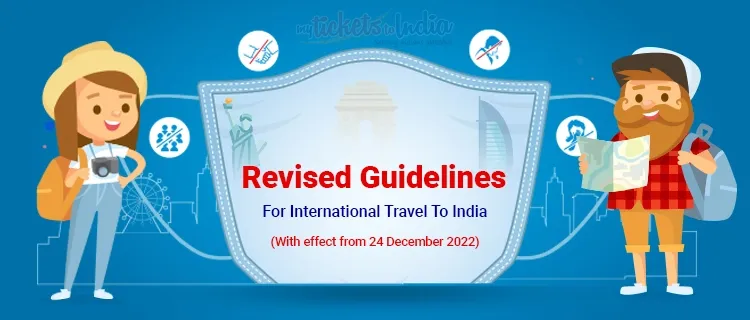
Last Updated on Nov 15th, 2023 by Heena Ganotra, 7 comments
Amid the rise of cases being observed in 5 major countries, including China, India’s Ministry of Health and Family Welfare has updated the guidelines for travelers coming into the country on 21 December 2022. This is in supersession of guidelines issued on the subject on 2nd September 2022. While there’s nothing much to be concerned about, initial precautions can help prevent the spread of the virus.
Update on 2nd January 2022
- Effective 1st Jan. 2023 (1000 hours IST), all international passengers arriving/ transiting from high-risk countries must mandatorily self-declare on the Air Suvidha portal.
- A negative COVID-19 RT-PCR report conducted within 72 hours of undertaking the journey from any of the high-risk countries must also be uploaded onto the Air Suvidha portal.
- The 6 high-risk countries are China, Singapore, Hong Kong, the Republic of Korea, Thailand, and Japan.
- Passengers transiting through high-risk countries, irrespective of their originating country before coming to any Indian Airport, must mandatorily self-declare on the Air Suvidha portal along with their negative RT-PCR certificate (as described above).
- All precautionary measures instituted inside the airplane and at the airport (wearing face masks and maintaining social distancing) must be followed.
- 2% of passengers per flight will be randomly tested upon arrival at the airport. If they are found to be symptomatic or tested positive, they will be managed as per the standard protocol defined by the COVID-19 latest update.
Update on 24 Dec 2022
Indian Health Ministry announced on 24 Dec 2022 that international arrivals from China, Japan, South Korea, Hong Kong , and Thailand will be required to present RT-PCR test results.
In addition, Health Minister Mansukh Mandaviya stated that any passengers from these countries who exhibit symptoms or test positive for Covid-19 will be quarantined.
“ RT-PCR test to be mandatory for international arrivals from China, Japan, S. Korea, Hong Kong & Thailand. On arrival, if any passenger from these countries is found symptomatic or tests positive for Covid19, then he/she will be put under quarantine .” Union Health Minister Dr Mandaviya
Latest Guidelines For Travelers Coming To India –
- Starting at 10 AM on 24 December 2022 (Saturday), all international passengers coming to India will have to undergo a mandatory thermal screening.
- All travelers should preferably be fully vaccinated as per the approved primary schedule of vaccination against Covid.
- Travelers found symptomatic during the screening will be isolated and taken to a designated medical facility for treatment.
- 2% of international travelers (preferably from different countries and selected by the airport authorities) from each flight will be asked to undergo a COVID-19 test on arrival. This will happen on a random basis. These passengers, however, won’t need to wait for the results to come. They can leave after their sample is collected.
- If such travelers’ samples are tested positive, their samples should be further sent for genomic testing at the INSACOG laboratory network.
- Children under 12 years of age are exempted from post-arrival random testing. But if they are found symptomatic for Covid on arrival or during the self-monitoring period, they shall undergo testing and be treated as per laid down protocol.
- Any passenger having symptoms of Covid during travel shall be isolated as per standard protocol. The passenger should be wearing a mask, isolated and segregated from other passengers in flight/travel, and shifted to an isolation facility subsequently for follow-up treatment.
- All travelers should self-monitor their health post-arrival and report to their nearest health facility or call the National helpline number (1075)/ State Helpline Number in case they have any symptoms suggestive.
Furthermore, Air Suvidha Form which is currently discontinued can make a comeback. Check the details on the Air Suvidha making a comeback here.
Why Are These Measures Being Taken?
There has been a spike in COVID cases in China, Brazil, Japan, USA, and Korea. Even in India, 4 cases of the Omicron subvariant BF.7 have been detected. 2 of these cases were found in Gujarat, 1 in Odisha, and 1 in Vadodra – as reported till Wednesday evening (21 December 2022).
Looking at this picture, India decided to bring about basic precautionary measures. However, the officials have stressed that there is no need to panic as the COVID cases in India are at their lowest since the pandemic hit. The Government of India has, however, advised people to wear masks, avoid large gatherings, and keep away from non-essential travel. None of this is mandatory as yet though.
COVID Cases & Situation In China | What We Know
Early in December, China eased the rules for RT-PCR tests. Under this, no person needed an RT-PCR test to enter public areas. This is being referred to as the major cause of the increase in the number of COVID cases. The current situation in China is as follows –
- The dominant virus strain in China is a sub-variant of Omicron called BF.7 (short for BA.5.2.1.7). The strain is highly transmissible, more infectious than any other variant, and has been circulating for a year now.
- Schooling is moving back online.
- Hospitals are falling short on medication.
Measures Taken By Other Countries Owing To The New Variant
While no country has taken stringent measures yet, some of them have asked the public to take basic precautions. For example – Singapore: Singapore has asked the staff who interacts with the arrivals (including the taxi drivers at airport stands) to wear protective gear. This will include N95 masks and face shields. Thailand: Thailand’s health officials have confirmed that the situation is under control. They have further given out a statement that New Year celebrations will go on as planned.
Well, that’s pretty much all!
MyTicketsToIndia hopes you are and continue to be in the best of your health.

As a leading flight-booking portal for flights to India , we strive hard to keep our audience abreast with the news that can affect passengers. Stay tuned and keep visiting this space for the latest updates.
About Heena Ganotra | View Posts
A writer by both passion and profession, Heena Ganotra is "half agony, half hope" but all heart. And oh, she has been a book lover from the start! Her love for books is what convinced her to make a career in the wonderful world of words. She loves what she does and is out-and-out a satisfied soul with a wish to spread happiness like herpes. Insight- Some say she is living the best life anyone could because she reads, writes, travels, and makes merry. They’re right because what else does one really need! :)
Discuss this post ? Cancel reply
Your email address will not be published. Required fields are marked *
I am trying from the USA with requirements needed to enter India?
Hi I am travelling from Canada to India via Air India. Its a direct flight , do i need to have Air Suvidha form and rt-pcr test to travel to India
Hello Amandeep ji,
Air Suvidha Form has been waived off. You will no longer need to fil in the form before or after flying to India. Hope this helps! 🙂 We wish you well and hope that you have a comfortable journey ahead.
Warm Regards, Team MyTicketsToIndia
I’m traveling from central African country Zambia to Bombay international airport so I have to fill from on airsuvidha or I have to travel with rtpcr report please advise me
Hello Kalpesh ji,
You will neither need the RT-PCR test nor need to fill out the Air Suvidha form since you aren’t traveling from a high-risk country. The 6 high-risk countries are China, Thailand, Singapore, Korea, Japan, and Hong Kong. Hope this helps! 🙂
I will travel from San Francisco to Mumbai with a transit halt in Hong Kong. Do I need the Covid test before boarding in San Francisco?
Hello Pradip ji,
You will need the COVID test indeed. Furthermore, you will also have to fill out the Air Suvidha form where you will have to upload the RT-PCR test within 72 hours of undertaking the journey to India. So yes, you will ideally need to have the test when you board. Hope this helps!
Latest Blog
- Can You Wear Jewelry Through TSA Security? | TSA Rules & Regulations
- Hanuman Jayanti 2024 Celebrations | Meaning, Date, Sifnificance & More
- When Is Ram Navami 2024? Know Muhurat Timings, History & More
- Guide To Emirates Online Check In Policy
- How Many Phones Can I Carry From USA To India? | Rules & Regulations
- Things To Do Near O’hare Airport
- A Guide To United InFlight Entertainment Options
- Celebrate Baisakhi 2024 With Your Loved Ones | Book India Tickets Today!
- Are Traveling Hangers Allowed On A Flight? | What Is The Best Way To Pack Hangers?
- A Detailed Newark Airport Terminals Guide: Terminals A, B & C
Indian Vibes
- 13 Indian Dance Forms - From Classical Feet To Bollywood Beat
- Basant Panchami 2024 - Celebrate The Arrival Of Spring With Joy
- Celebrate Valentine’s Day 2024 | Best Things To Do On Valentine’s Day
Helpful Links
Please Enter Your US Contact Number

- Skip to main content
- Skip to "About this site"
Language selection
Search travel.gc.ca.
Help us to improve our website. Take our survey !
COVID-19: travel health notice for all travellers
India travel advice
Latest updates: Safety and security – added information about general elections
Last updated: April 17, 2024 11:08 ET
On this page
Safety and security, entry and exit requirements, laws and culture, natural disasters and climate, india - exercise a high degree of caution.
Exercise a high degree of caution in India due to the threat of terrorist attacks throughout the country.
In and around Bengaluru, Chandigarh and Mumbai - Exercise a high degree of caution
Exercise a high degree of caution in and around Bengaluru, Chandigarh and Mumbai. Consular services in-person are temporarily unavailable in those cities or surrounding areas. If you need consular services, contact the High Commission of Canada in India, located in New Delhi. At any time, you may also contact the Emergency Watch and Response Centre in Ottawa.
Parts of Northeastern India - Avoid non-essential travel
Union territory of jammu and kashmir - avoid all travel.
This advisory excludes travelling to or within the Union Territory of Ladakh.
Border areas with Pakistan - Avoid all travel
This advisory excludes the Wagah border crossing.
Back to top
General elections are scheduled to take place between April 19 and June 1, 2024. Demonstrations could occur before, during and after the elections.
Disruptions to traffic and public transportation may also occur. Curfews may be imposed without notice.
- Avoid areas where demonstrations and large gatherings are taking place
- Follow the instructions of local authorities
- Monitor local media for information on ongoing demonstrations
Mass gatherings (large-scale events)
Security situation
In the context of recent developments in Canada and in India, there are calls for protests and some negative sentiment towards Canada in traditional media and on social media. Demonstrations, including anti-Canada protests, could occur and Canadians may be subjected to intimidation or harassment. In Delhi and the National Capital Region, you should keep a low profile with strangers, and not share your personal information with them. Avoid crowded areas, including public transportation. You should always travel with someone and inform a friend or a family member of your travel plans.
Consular services in person are temporarily unavailable in and around Bengaluru, Chandigarh and Mumbai. Consular services in person at the High Commission of Canada in New Delhi will remain available.
Union Territory of Jammu and Kashmir
The security situation in the Union Territory of Jammu and Kashmir is tense. There are high risks of violent protests, civil unrest and acts of terrorism and militancy.
Violent clashes between militants and security forces occur regularly. Terrorist attacks against security forces have led to civilian casualties. Further attacks could take place at any time. You could find yourself in the wrong place at the wrong time.
The Indian army has enhanced powers in this territory. Authorities may impose curfews and security restrictions on short notice.
- Avoid gatherings and demonstrations
- Always carry ID
- Expect a heightened security presence and security checks
Border areas with Pakistan
The level of tension between India and Pakistan may change suddenly. You could experience difficulties when travelling between the two countries. You may be subject to scrutiny if officials from either country become aware that you have recently travelled to the other.
The security situation along the border with Pakistan, especially along the Line of Control (LoC), which separates the Union territories of Jammu and Kashmir and Ladakh from Pakistan-administered Kashmir, remains volatile. Cross-border gunfire and shelling are occurring sporadically along the LoC. The presence of landmines and unexploded ordnance also constitute a risk.
Although international travellers regularly use the Wagah border crossing linking Amritsar, India, to Lahore, Pakistan, it remains vulnerable to attack. Security measures are in place. You may experience long delays.
Parts of Northeastern India
Several extremist and insurgent groups are active in the northeastern states of Assam and Manipur. They regularly target local government and security forces and may use various criminal activities to finance their activities.
Ethnic tensions in the State can also lead to conflict and civil unrest.
There is a threat of terrorism in India, particularly in:
- the Union territory of Jammu and Kashmir
- the State of Manipur
- the State of Assam
- areas of East India where Naxalites groups are active
Maoist extremist insurgents, known as Naxalites, are responsible for the majority of terrorist attacks in India. These groups are usually based in rural and forested areas within zones of concerns, as defined by the Government of India, which include:
- Andhra Pradesh
- Chhattisgarh
- Madhya Pradesh
- Maharashtra
- Uttar Pradesh
- West Bengal
Extremist and insurgent groups usually target government and security forces, and sometimes, trains and railway tracks. While tourists are not usually specifically targeted, bystanders could be affected. Be particularly vigilant during election periods and in the lead-up to, and during, religious holidays and times of national significance, such as:
- Republic Day (January 26)
- Independence Day (August 15)
Targets of terrorist attacks could include:
- government buildings, including schools
- places of worship
- airports and other transportation hubs and networks
- public areas such as tourist attractions, restaurants, bars, coffee shops, shopping centres, markets, hotels and other sites frequented by foreigners
While in India:
- always be aware of your surroundings when in public places
- if you see a suspicious package, immediately leave the area and report it to authorities
Petty crime, such as pickpocketing and purse snatching, is common. Criminals may target foreigners, especially in major cities and tourist areas.
- Be vigilant in all crowded locations
- Don’t carry large sums of money
- Ensure that your personal belongings, including your passport and other travel documents, are secure at all times
Petty crime frequently occurs on public transportation and overnight trains.
- Ensure that the train compartment contains packages belonging only to you and other occupants
- Store personal belongings in a safe place, and don’t leave the compartment unattended
- Securely lock the doors
Serious crime against foreigners is less frequent, but incidents do occur.
Credit card and ATM fraud occurs. Be cautious when using debit or credit cards:
- pay careful attention when your cards are being handled by others
- use ATMs located in well-lit public areas or inside a bank or business
- avoid using card readers with an irregular or unusual feature
- cover the keypad with one hand when entering your PIN
- check for any unauthorized transactions on your account statements
Exercise caution in tourist areas and airports where scammers particularly target foreigners.
Scams involving the exportation of jewels, gemstones, carpets, and other items have occurred. Taxi drivers may approach you, offering money to export such items.
- Don’t accept any offer, no matter how convincing
- Beware of offers for cheap transportation or accommodation, extended taxi rides and unsolicited guided tours
Romance scams
If you’re travelling to India to meet someone you’ve otherwise only met online, you may be the victim of a scam.
Be alert to attempts at fraud by persons who profess friendship or romantic interest over the internet.
Investment scams
Unsolicited emails offering attractive business or financial opportunities are most likely fraudulent.
Don’t travel to India to obtain restitution after losing money to a scam.
Overseas fraud
Spiked food and drinks
Never leave food or drinks unattended or in the care of strangers. Be wary of accepting snacks, beverages, gum or cigarettes from new acquaintances. These items may contain drugs that could put you at risk of sexual assault and robbery.
Women’s safety
Crimes committed against women frequently occur in India. Foreign women are often the target of unwanted attention.
Staring, verbal abuse, groping, and other forms of sexual harassment can occur anywhere, including in tourist sites and areas. Attackers sometimes act as a group.
Reports of rape and assault against foreign women have increased. You should be particularly vigilant:
- on all forms of public transportation
- at Yoga centres, ashrams and other places of spiritual retreats
Local authorities may not always respond adequately to reports of sexual violence and harassment.
- Avoid travelling alone, particularly at night
- Be extremely vigilant on public transportation, taxis and auto-rickshaws
- Be careful when dealing with strangers or new acquaintances
- Be wary of accepting snacks or beverages from new acquaintances
- Avoid less populous and unlit areas
- Respect local customs and dress codes
- Reach police immediately if you feel threatened
If you are the victim of a sexual assault, you should report it immediately to local authorities and the nearest office of the Government of Canada.
Advice for women travellers
Forced marriages
Forced marriage affecting foreigners occurs, sometimes without the affected person’s prior knowledge or consent.
Some Canadians have been forced into marital arrangements and have been detained against their will. They have been subjected to threats, intimidation and violence by family members.
If you’re in Canada
If you’re in Canada and you believe that you’re being forced to travel overseas to marry, you should call your local police for assistance.
If you’re in India
If you’re in India and you believe that you’re being forced to marry, contact the nearest office of the Government of Canada. You may also contact the Emergency Watch and Response Centre .
Family members may retain passports to prevent victims from returning to Canada. Keep digital or physical copies of your travel documents in a safe place.
General information and advice about forced marriage
Demonstrations and mass gatherings
Protests in manipur.
Violent demonstrations have been taking place in Manipur State since May 3, 2023, resulting in casualties. Protests have led to disruptions to traffic and public transportation. Curfews have been imposed in several districts and mobile and internet services may be limited.
If you are in Manipur:
- monitor local media for the most recent information
- follow the instructions of local authorities
- be prepared to modify your plans in case of disturbances
- expect enhanced security measures and an increased police presence
Demonstrations, mass gatherings, general strikes, “bandh” or “hartal,” take place frequently. Even peaceful demonstrations can turn violent at any time. They can also lead to disruptions to traffic and public transportation.
Stampedes have occurred during mass gatherings, including religious ceremonies, and resulted in deaths and injuries.
Local authorities may impose curfews and other restrictions on short notice.
- Follow the instructions of local authorities, including curfews
Road safety
Road conditions and road safety are poor throughout the country. Most roads, including major highways, are poorly maintained. There is severe traffic congestion. Driving conditions may be hazardous during the rainy season, and some roads can become impassable.
Drivers don’t respect traffic laws. They are often aggressive or reckless. Driving can be hazardous due to the presence of livestock or wandering cows, including in urban areas.
Fatal road accidents are frequent. They can lead to mob anger and assault.
- Avoid travelling outside urban centres after dark
- Avoid driving or riding motorcycles in India, even if you are an experienced motorcyclist
- Be very careful when crossing the street, even at pedestrian crossings
- If involved in an accident, contact local authorities immediately
Public transportation
India has an extensive passenger train system. Rail accidents are common, mostly due to poor maintenance. Thefts are frequent on certain train lines.
If you use a taxi, get it from a reputable hotel, an official taxi stand, or a trusted ride-sharing app. At the airport, use officially marked taxis or pre-paid transport services.
- Negotiate fares in advance, or insist that the driver use the meter, as you may be overcharged
- Avoid travelling alone, especially at night
- Don’t share taxis with strangers
Maritime transportation
Maritime accidents occur regularly due to the overloading and poor maintenance of some vessels.
- Don’t board vessels that appear overloaded or unseaworthy
- Always wear a life jacket
Pirate attacks and armed robbery against ships occur in coastal waters. Mariners should take appropriate precautions.
Live piracy report - International Maritime Bureau
Water activities
Coastal waters can be dangerous. Riptides are common. Several drownings occur each year.
Beaches are not usually supervised by lifeguards. Many beaches don’t display warnings of dangerous conditions.
- Seek local advice before swimming
- Avoid swimming if red flags are flown
- Avoid swimming during Monsoon season
- Always wear a life jacket if you use a boat or a small embarkation
Water safety abroad
No commercial mountain rescue services are operating above 3,000 metres.
If you intend on trekking:
- never do so alone and always hire an experienced guide from a reputable company
- buy travel insurance that includes helicopter rescue and medical evacuation
- ensure that your physical condition is good enough to meet the challenges of your activity
- ensure that you’re adequately equipped and well informed about weather and other conditions that may pose a hazard
- inform a family member or friend of your itinerary, including when you expect to be back to camp
- know the symptoms of acute altitude sickness, which can be fatal
- obtain detailed information on trekking routes or ski slopes before setting out and do not venture off marked trails or slopes
Wildlife viewing
Wildlife viewing may pose risks, particularly on foot or at close range. If you plan on visiting a wildlife area such as a tiger reserve:
- always maintain a safe distance when observing wildlife
- only exit a vehicle when a professional guide or warden says it’s safe to do so
- only use reputable and professional guides or tour operators
- closely follow park regulations and wardens’ advice
Large groups of monkeys are present in several parts of India, including some urban regions. Monkeys can get aggressive and rapidly overwhelm travellers in their search for food. They can also steal your belongings.
Be vigilant when in the presence of monkeys.
We do not make assessments on the compliance of foreign domestic airlines with international safety standards.
Information about foreign domestic airlines
Every country or territory decides who can enter or exit through its borders. The Government of Canada cannot intervene on your behalf if you do not meet your destination’s entry or exit requirements.
We have obtained the information on this page from the Indian authorities. It can, however, change at any time.
Verify this information with the Foreign Representatives in Canada .
Entry requirements vary depending on the type of passport you use for travel.
Before you travel, check with your transportation company about passport requirements. Its rules on passport validity may be more stringent than the country’s entry rules.
Regular Canadian passport
Your passport must be valid for 6 months from your date of entry into India and must contain at least two blank pages for use by immigration officials.
Passport for official travel
Different entry rules may apply.
Official travel
Passport with “X” gender identifier
While the Government of Canada issues passports with an “X” gender identifier, it cannot guarantee your entry or transit through other countries. You might face entry restrictions in countries that do not recognize the “X” gender identifier. Before you leave, check with the closest foreign representative for your destination.
Other travel documents
Different entry rules may apply when travelling with a temporary passport or an emergency travel document. Before you leave, check with the closest foreign representative for your destination.
Useful links
- Foreign Representatives in Canada
- Canadian passports
Certain types of Indian visa services for Canadians have resumed. For additional information, please contact the visa service provider directly.
Latest information – Indian Visa Application Center in Canada
Ensure you apply for the proper type of visa for the specific purpose of your trip. If you are denied entry by immigration officials, you will be returned to your point of departure.
Canadian-Pakistani citizens are subject to different visa application and registration procedures.
You can only stay in India for up to 180 consecutive days on a tourist visa, even when its validity exceeds 180 days.
Residency registration
If you stay in India for more than 180 days, you must register within 14 days of arrival with the Foreigners Regional Registration Office (FRRO).
- e-FRRO online portal (for Delhi, Mumbai, Chennai and Bengaluru) – India's Bureau of Immigration
- FRRO Contact List – India's Bureau of Immigration
Penalties for overstaying
Strict penalties are enforced for overstaying. If you overstay, you could be subject to fines, detention and a future travel ban.
If you have overstayed your visa, you must request an exit visa from the Foreigners Regional Registration Office (FRRO). This process can be lengthy.
Other entry requirements
Customs officials may ask you to show them a return or onward ticket and proof of sufficient funds to cover your stay.
Dual citizenship
If you hold an Overseas Citizens of India (OCI) card, you must present it upon entry and exit.
You must present a boarding pass and a photo identification to access airport departure terminals and public areas.
Lost or stolen passport
If your passport is lost or stolen, an exit visa is required to leave India.
To obtain an exit visa, you must present the FRRO with:
- a police report
- two current passport-size photographs
- a letter providing details of the loss or theft from the High Commission of Canada to India in New Delhi or Consulate General of Canada in either Chandigarh or Mumbai
The FRRO will verify the entry details before issuing an exit visa. This process can take several days.
Restricted and Protected Areas
Special permits are required to visit certain parts of India designated as restricted or protected areas.
Restricted or protected areas – India's Bureau of Immigration
- Poliomyelitis
You may need to produce proof of polio vaccination if you are arriving in India from:
- Afghanistan
- the Democratic Republic of the Congo
Confirm this requirement with the nearest Indian diplomatic office before travelling.
- Foreign Representatives in Canada
Children and travel
Learn more about travelling with children .
Yellow fever
Learn about potential entry requirements related to yellow fever (vaccines section).
Relevant Travel Health Notices
- Global Measles Notice - 13 March, 2024
- Zika virus: Advice for travellers - 31 August, 2023
- COVID-19 and International Travel - 13 March, 2024
This section contains information on possible health risks and restrictions regularly found or ongoing in the destination. Follow this advice to lower your risk of becoming ill while travelling. Not all risks are listed below.
Consult a health care professional or visit a travel health clinic preferably 6 weeks before you travel to get personalized health advice and recommendations.
Routine vaccines
Be sure that your routine vaccinations , as per your province or territory , are up-to-date before travelling, regardless of your destination.
Some of these vaccinations include measles-mumps-rubella (MMR), diphtheria, tetanus, pertussis, polio, varicella (chickenpox), influenza and others.
Pre-travel vaccines and medications
You may be at risk for preventable diseases while travelling in this destination. Talk to a travel health professional about which medications or vaccines may be right for you, based on your destination and itinerary.
Yellow fever is a disease caused by a flavivirus from the bite of an infected mosquito.
Travellers get vaccinated either because it is required to enter a country or because it is recommended for their protection.
- There is no risk of yellow fever in this country.
Country Entry Requirement*
- Proof of vaccination is required if you are coming from or have transited through an airport of a country where yellow fever occurs.
Recommendation
- Vaccination is not recommended.
- Discuss travel plans, activities, and destinations with a health care professional.
- Contact a designated Yellow Fever Vaccination Centre well in advance of your trip to arrange for vaccination.
About Yellow Fever
Yellow Fever Vaccination Centres in Canada * It is important to note that country entry requirements may not reflect your risk of yellow fever at your destination. It is recommended that you contact the nearest diplomatic or consular office of the destination(s) you will be visiting to verify any additional entry requirements.
There is a risk of hepatitis A in this destination. It is a disease of the liver. People can get hepatitis A if they ingest contaminated food or water, eat foods prepared by an infectious person, or if they have close physical contact (such as oral-anal sex) with an infectious person, although casual contact among people does not spread the virus.
Practise safe food and water precautions and wash your hands often. Vaccination is recommended for all travellers to areas where hepatitis A is present.
Measles is a highly contagious viral disease. It can spread quickly from person to person by direct contact and through droplets in the air.
Anyone who is not protected against measles is at risk of being infected with it when travelling internationally.
Regardless of where you are going, talk to a health care professional before travelling to make sure you are fully protected against measles.
Japanese encephalitis is a viral infection that can cause swelling of the brain. It is spread to humans through the bite of an infected mosquito. Risk is very low for most travellers. Travellers at relatively higher risk may want to consider vaccination for JE prior to travelling.
Travellers are at higher risk if they will be:
- travelling long term (e.g. more than 30 days)
- making multiple trips to endemic areas
- staying for extended periods in rural areas
- visiting an area suffering a JE outbreak
- engaging in activities involving high contact with mosquitos (e.g., entomologists)
Hepatitis B is a risk in every destination. It is a viral liver disease that is easily transmitted from one person to another through exposure to blood and body fluids containing the hepatitis B virus. Travellers who may be exposed to blood or other bodily fluids (e.g., through sexual contact, medical treatment, sharing needles, tattooing, acupuncture or occupational exposure) are at higher risk of getting hepatitis B.
Hepatitis B vaccination is recommended for all travellers. Prevent hepatitis B infection by practicing safe sex, only using new and sterile drug equipment, and only getting tattoos and piercings in settings that follow public health regulations and standards.
Coronavirus disease (COVID-19) is an infectious viral disease. It can spread from person to person by direct contact and through droplets in the air.
It is recommended that all eligible travellers complete a COVID-19 vaccine series along with any additional recommended doses in Canada before travelling. Evidence shows that vaccines are very effective at preventing severe illness, hospitalization and death from COVID-19. While vaccination provides better protection against serious illness, you may still be at risk of infection from the virus that causes COVID-19. Anyone who has not completed a vaccine series is at increased risk of being infected with the virus that causes COVID-19 and is at greater risk for severe disease when travelling internationally.
Before travelling, verify your destination’s COVID-19 vaccination entry/exit requirements. Regardless of where you are going, talk to a health care professional before travelling to make sure you are adequately protected against COVID-19.
The best way to protect yourself from seasonal influenza (flu) is to get vaccinated every year. Get the flu shot at least 2 weeks before travelling.
The flu occurs worldwide.
- In the Northern Hemisphere, the flu season usually runs from November to April.
- In the Southern Hemisphere, the flu season usually runs between April and October.
- In the tropics, there is flu activity year round.
The flu vaccine available in one hemisphere may only offer partial protection against the flu in the other hemisphere.
The flu virus spreads from person to person when they cough or sneeze or by touching objects and surfaces that have been contaminated with the virus. Clean your hands often and wear a mask if you have a fever or respiratory symptoms.
Typhoid is a bacterial infection spread by contaminated food or water. Travellers going to countries in South Asia should speak to a health care professional about getting vaccinated.
Malaria is a serious and sometimes fatal disease that is caused by parasites spread through the bites of mosquitoes. There is a risk of malaria in certain areas and/or during a certain time of year in this destination.
Antimalarial medication may be recommended depending on your itinerary and the time of year you are travelling. Consult a health care professional or visit a travel health clinic before travelling to discuss your options. It is recommended to do this 6 weeks before travel, however, it is still a good idea any time before leaving. Protect yourself from mosquito bites at all times: • Cover your skin and use an approved insect repellent on uncovered skin. • Exclude mosquitoes from your living area with screening and/or closed, well-sealed doors and windows. • Use insecticide-treated bed nets if mosquitoes cannot be excluded from your living area. • Wear permethrin-treated clothing. If you develop symptoms similar to malaria when you are travelling or up to a year after you return home, see a health care professional immediately. Tell them where you have been travelling or living.
In this destination, rabies is carried by dogs and some wildlife, including bats. Rabies is a deadly disease that spreads to humans primarily through bites or scratches from an infected animal. While travelling, take precautions , including keeping your distance from animals (including free-roaming dogs), and closely supervising children.
If you are bitten or scratched by an animal while travelling, immediately wash the wound with soap and clean water and see a health care professional. Rabies treatment is often available in this destination.
Before travel, discuss rabies vaccination with a health care professional. It may be recommended for travellers who are at high risk of exposure (e.g., occupational risk such as veterinarians and wildlife workers, children, adventure travellers and spelunkers, and others in close contact with animals).
Safe food and water precautions
Many illnesses can be caused by eating food or drinking beverages contaminated by bacteria, parasites, toxins, or viruses, or by swimming or bathing in contaminated water.
- Learn more about food and water precautions to take to avoid getting sick by visiting our eat and drink safely abroad page. Remember: Boil it, cook it, peel it, or leave it!
- Avoid getting water into your eyes, mouth or nose when swimming or participating in activities in freshwater (streams, canals, lakes), particularly after flooding or heavy rain. Water may look clean but could still be polluted or contaminated.
- Avoid inhaling or swallowing water while bathing, showering, or swimming in pools or hot tubs.
Cholera is a risk in parts of this country. Most travellers are at very low risk.
To protect against cholera, all travellers should practise safe food and water precautions .
Travellers at higher risk of getting cholera include those:
- visiting, working or living in areas with limited access to safe food, water and proper sanitation
- visiting areas where outbreaks are occurring
Vaccination may be recommended for high-risk travellers, and should be discussed with a health care professional.
Travellers' diarrhea is the most common illness affecting travellers. It is spread from eating or drinking contaminated food or water.
Risk of developing travellers' diarrhea increases when travelling in regions with poor standards of hygiene and sanitation. Practise safe food and water precautions.
The most important treatment for travellers' diarrhea is rehydration (drinking lots of fluids). Carry oral rehydration salts when travelling.
Typhoid is a bacterial infection spread by contaminated food or water. Risk is higher among children, travellers going to rural areas, travellers visiting friends and relatives or those travelling for a long period of time.
Travellers visiting regions with a risk of typhoid, especially those exposed to places with poor sanitation, should speak to a health care professional about vaccination.
Insect bite prevention
Many diseases are spread by the bites of infected insects such as mosquitoes, ticks, fleas or flies. When travelling to areas where infected insects may be present:
- Use insect repellent (bug spray) on exposed skin
- Cover up with light-coloured, loose clothes made of tightly woven materials such as nylon or polyester
- Minimize exposure to insects
- Use mosquito netting when sleeping outdoors or in buildings that are not fully enclosed
To learn more about how you can reduce your risk of infection and disease caused by bites, both at home and abroad, visit our insect bite prevention page.
Find out what types of insects are present where you’re travelling, when they’re most active, and the symptoms of the diseases they spread.
There is a risk of chikungunya in this country. The risk may vary between regions of a country. Chikungunya is a virus spread through the bite of an infected mosquito. Chikungunya can cause a viral disease that typically causes fever and pain in the joints. In some cases, the joint pain can be severe and last for months or years.
Protect yourself from mosquito bites at all times. There is no vaccine available for chikungunya.
Crimean-Congo haemorrhagic fever is a viral disease that can cause fever, pain and bleeding under the skin. In some cases, it can be fatal. It spreads to humans through contact with infected animal blood or tissues, or from the bite of an infected tick. Risk is generally low for most travellers. Protect yourself from tick bites and avoid animals, particularly livestock. There is no vaccine available for Crimean-Congo haemorrhagic fever.
Visceral leishmaniasis (or kala azar) affects the bone marrow and internal organs. It is caused by a parasite spread through the bite of a female sandfly. It can also be transmitted by blood transfusion or sharing contaminated needles. If left untreated it can cause death. Risk is generally low for most travellers. Protect yourself from sandfly bites, which typically occur after sunset in rural and forested areas and in some urban centres. There is no vaccine or medication to protect against leishmaniasis.
Lymphatic filariasis , also known as elephantiasis, is caused by filariae (tiny worms) spread to humans through the bite of an infected mosquito. It can cause a range of illnesses. Risk is generally low for most travellers. Protect yourself from mosquito bites. There is no vaccine available for lymphatic filariasis although drug treatments exist.
- In this country, dengue is a risk to travellers. It is a viral disease spread to humans by mosquito bites.
- Dengue can cause flu-like symptoms. In some cases, it can lead to severe dengue, which can be fatal.
- The level of risk of dengue changes seasonally, and varies from year to year. The level of risk also varies between regions in a country and can depend on the elevation in the region.
- Mosquitoes carrying dengue typically bite during the daytime, particularly around sunrise and sunset.
- Protect yourself from mosquito bites . There is no vaccine or medication that protects against dengue.
Zika virus is a risk in this country.
Zika virus is primarily spread through the bite of an infected mosquito. It can also be sexually transmitted. Zika virus can cause serious birth defects.
During your trip:
- Prevent mosquito bites at all times.
- Use condoms correctly or avoid sexual contact, particularly if you are pregnant.
If you are pregnant or planning a pregnancy, you should discuss the potential risks of travelling to this destination with your health care provider. You may choose to avoid or postpone travel.
For more information, see Zika virus: Pregnant or planning a pregnancy.
Animal precautions
Some infections, such as rabies and influenza, can be shared between humans and animals. Certain types of activities may increase your chance of contact with animals, such as travelling in rural or forested areas, camping, hiking, and visiting wet markets (places where live animals are slaughtered and sold) or caves.
Travellers are cautioned to avoid contact with animals, including dogs, livestock (pigs, cows), monkeys, snakes, rodents, birds, and bats, and to avoid eating undercooked wild game.
Closely supervise children, as they are more likely to come in contact with animals.
There is a risk of Nipah virus infection in this country. Nipah virus infections can range from asymptomatic (no symptoms) to severe illness and death.
Nipah virus is spread to people from animals (such as fruit bats) but it can also be spread through contaminated food or close contact with someone who is ill.
Travellers to areas where Nipah virus is found should:
- avoid consuming date palm sap products, including raw date palm juice
- thoroughly wash and peel fruit before consumption
- wash hands regularly with soap and water
- discard fruit with signs of bites or fruit that has been found on the ground
- avoid contact with fruit bats and areas where they are known to roost
For more information on preventing Nipah virus infection, visit Nipah virus: Prevention and risks .
There is no vaccine or medication that protects against Nipah virus infection.
Person-to-person infections
Stay home if you’re sick and practise proper cough and sneeze etiquette , which includes coughing or sneezing into a tissue or the bend of your arm, not your hand. Reduce your risk of colds, the flu and other illnesses by:
- washing your hands often
- avoiding or limiting the amount of time spent in closed spaces, crowded places, or at large-scale events (concerts, sporting events, rallies)
- avoiding close physical contact with people who may be showing symptoms of illness
Sexually transmitted infections (STIs) , HIV , and mpox are spread through blood and bodily fluids; use condoms, practise safe sex, and limit your number of sexual partners. Check with your local public health authority pre-travel to determine your eligibility for mpox vaccine.
Tuberculosis is an infection caused by bacteria and usually affects the lungs.
For most travellers the risk of tuberculosis is low.
Travellers who may be at high risk while travelling in regions with risk of tuberculosis should discuss pre- and post-travel options with a health care professional.
High-risk travellers include those visiting or working in prisons, refugee camps, homeless shelters, or hospitals, or travellers visiting friends and relatives.
Medical services and facilities
The quality of health care varies significantly throughout the country.
Medical care in major cities may be good, but it’s usually very limited or unavailable in rural areas.
Government hospitals provide free services or at a minimal cost. Private facilities often offer a higher level of care but can be expensive. Most hospitals require up-front payment or confirmation of insurance coverage before commencing treatment.
Specialised treatment for psychiatric illness may not be available outside major cities.
Make sure you get travel insurance that includes coverage for medical evacuation and hospital stays.
Travel health and safety
Ambulances are often equipped with basic and old medical equipment.
Response times can be very slow. Traffic doesn’t yield to emergency vehicles.
In case of serious illness or injury, you may consider taking a taxi or private vehicle to go to the hospital rather than wait for an ambulance.
Medical tourism
Some Canadian citizens have had severe health complications following cosmetic or other elective surgeries abroad.
Before leaving for medical travel:
- make sure you have done your research
- use competent health-care providers only
Receiving Medical Care in Other Countries
Keep in Mind...
The decision to travel is the sole responsibility of the traveller. The traveller is also responsible for his or her own personal safety.
Be prepared. Do not expect medical services to be the same as in Canada. Pack a travel health kit , especially if you will be travelling away from major city centres.
You must abide by local laws.
Learn about what you should do and how we can help if you are arrested or detained abroad .
Penalties for possession, use or trafficking of illegal drugs are severe. Convicted offenders can expect heavy fines and jail sentences. Detention during the investigation is common and can be lengthy.
Laws regarding the purchase and consumption of alcohol, including the legal drinking age, differ from state to state. Authorities often call for dry periods during:
- religious festivals
- national holidays
Drugs, alcohol and travel
It is prohibited to import, possess or use e-cigarettes, vaporisers and their refills.
Beef consumption
Cows are protected and venerated by several groups of faith in India.
Several states impose prohibitions on beef slaughter and consumption. In some rural areas, cow protection vigilantes have attacked people suspected of selling, consuming, or possessing beef or items made with cowhide.
Avoid consuming beef or its derived products while in India.
Religious proselytism
In certain states, it’s illegal to engage in religious proselytism, such as preaching, possessing, or distributing religious literature or material with the intent of converting. Indian authorities require foreign missionaries to obtain a missionary visa.
If you plan to conduct religious activities in India, ensure that:
- the activities are legal
- you possess the proper visa for the activities you plan to perform
Satellite devices
It’s illegal to carry or use a satellite device in India.
Photography
It is prohibited to take pictures of military installations, airports and dams.
Ask permission before photographing places of worship such as temples or mosques.
Imports and exports
There are strict regulations on the importation or exportation of items such as:
- antiquities
- electronic equipment
- local currency
- ivory and gold objects
- protected animals
- pornographic material
Among others, you must register antique items for export with local police, with a photograph of each item.
Customs Guide for Travellers - India’s Central Board of Excise and Customs
Dress and behaviour
India is a traditional, conservative and multi-faith society. To avoid offending local sensitivities:
- Dress conservatively
- Behave discreetly
- Respect religious and social traditions
- Avoid displays of affection in public
- Avoid using footwear in places of worship
Indian family law is very different from Canadian law.
In case of dispute, consult a local lawyer to be fully aware of local laws regarding marital fraud, dowry abuse or extortion, custody, guardianship and visitation rights. Individuals facing charges may be forced to remain in India until their cases have been settled or charges dismissed.
Commercial surrogacy
If you’re planning to visit India to commission surrogacy arrangements, you should consider the potential challenges involved in pursuing international surrogacy. Seek specialist legal advice on Indian and Canadian laws before making any arrangements.
A proposed Indian government ban on foreign commercial surrogacy could affect Canadians travelling to India to enter into a surrogacy agreement.
You should also consult with Immigration, Refugees and Citizenship Canada (IRCC) on current policies regarding citizenship through descent and the issuance of Canadian travel documents.
Land and property disputes
If you plan on buying property or are involved in a land dispute in India, you should seek legal advice. Do so before making commitments. Related disputes could take time and be costly to resolve.
The offices of the Government of Canada in India can’t provide assistance or legal advice related to private legal matters.
2SLGBTQI+ travellers
Indian law doesn’t criminalize sexual acts or relationships between persons of the same sex.
However, 2SLGBTQI+ travellers could be discriminated against based on their sexual orientation, gender identity, gender expression, or sex characteristics.
Travel and your sexual orientation, gender identity, gender expression and sex characteristics
Dual citizenship is not legally recognized in India.
If local authorities consider you a citizen of India, they may refuse to grant you access to Canadian consular services. This will prevent us from providing you with those services.
Travellers with dual citizenship
International Child Abduction
The Hague Convention on the Civil Aspects of International Child Abduction is an international treaty. It can help parents with the return of children who have been removed to or retained in certain countries in violation of custody rights. It does not apply between Canada and India.
If your child was wrongfully taken to, or is being held in India by an abducting parent:
- act as quickly as you can
- consult a lawyer in Canada and in India to explore all the legal options for the return of your child
- report the situation to the nearest Canadian government office abroad or to the Vulnerable Children’s Consular Unit at Global Affairs Canada by calling the Emergency Watch and Response Centre.
If your child was removed from a country other than Canada, consult a lawyer to determine if The Hague Convention applies.
Be aware that Canadian consular officials cannot interfere in private legal matters or in another country’s judicial affairs.
- International Child Abduction: A Guidebook for Left-Behind Parents
- Travelling with children
- Canadian embassies and consulates by destination
- Emergency Watch and Response Centre
Identification
You must carry your passport and Indian visa at all times.
Traffic drives on the left.
You must carry an international driving permit.
International Driving Permit
The currency in India is the Indian Rupee (INR).
Non-residents are prohibited from importing or exporting the Indian rupee. A limit of 25,000 rupees is imposed on residents.
Upon entering or leaving India, you must make a declaration to customs if you have USD 5,000 or more, or the equivalent in other currencies.
India is prone to extreme weather events such as:
- dust storms
- earthquakes
Extreme temperatures can occur in both spring and summer.
The rainy (or monsoon) season extends from June to September.
Heavy rain can cause flooding throughout the country, resulting in significant loss of life and extensive damage to infrastructure. Seasonal flooding and landslides can hamper overland travel and reduce the provision of essential services. Roads may become impassable and bridges damaged.
India’s coastline is subject to cyclones, particularly between April and December. These severe storms can put you at risk and hamper the provision of essential services.
If you decide to travel to a coastal area:
- know that you may expose yourself to serious safety risks
- be prepared to change your travel plans on short notice, including cutting short or cancelling your trip
- stay informed of the latest regional weather forecasts
- carry emergency contact information for your airline or tour operator
- follow the advice and instructions of local authorities
- Tornadoes, cyclones, hurricanes, typhoons and monsoons
- Large-scale emergencies abroad
- Weather forecasts and warnings - Indian Meteorological Department
- Current cyclone activity - Tropical storm risk
Seismic activity
Parts of India are located in active seismic zones. Earthquakes occur.
In the event of an earthquake, follow the instructions of local authorities.
What to do during an earthquake

Air pollution
Smoke haze and other types of air pollution can be extremely hazardous in urban areas and cities such as Delhi. It’s typically at its worst in winter. In rural areas, air quality can be affected by agricultural burning.
Dust storms also occur across northern India.
Monitor air pollution levels, which change quickly, especially if you suffer from respiratory ailments or have pre-existing medical conditions.
During periods of high pollution:
- limit your activities outdoors
- monitor local media
- System of Air Quality Weather Forecasting and Research - Ministry of Earth Science of India
- Real time ambient air quality data - Delhi Pollution Control Committee
- Air pollution in India - World Air Quality Index
In mountainous regions, avalanches present a risk and have resulted in fatalities.
- Monitor local media and weather forecasts
- Follow the advice of local authorities
Local services
In case of emergency, dial:
- police: 100/112 from cellular telephones
- firefighters: 101
- medical assistance: 102
- victims of sexual harassment: 1091
General services
The Indian Ministry of Tourism offers 24-hour general advice for tourists.
Dial: 1-800 111-363.
Consular assistance
The Consulates General of Canada in Bengaluru, Chandigarh and Mumbai are temporarily suspending in-person operations. You can obtain consular assistance and further consular information from the High Commission of Canada in New Delhi.
Consular services in person remain available at the High Commission of Canada in New Delhi.
Andaman and Nicobar Islands, Andhra Pradesh, Arunachal Pradesh, Assam, Bihar, Chandigarh, Chhattisgarh, Dadra and Nagar Haveli, Daman and Diu, Delhi, Goa, Gujarat, Haryana, Himachal Pradesh, Jammu and Kashmir, Jharkhand, Karnataka, Kerala, Ladakh, Lakshadweep, Madhya Pradesh, Maharashtra, Manipur, Meghalaya, Mizoram, Nagaland, Odisha, Pondicherry, Punjab, Rajasthan, Sikkim, Tamil Nadu, Telangana, Tripura, Uttar Pradesh, and Uttarakhand.
For emergency consular assistance, call the High Commission of Canada in India, in New Delhi and follow the instructions. At any time, you may also contact the Emergency Watch and Response Centre in Ottawa.
The decision to travel is your choice and you are responsible for your personal safety abroad. We take the safety and security of Canadians abroad very seriously and provide credible and timely information in our Travel Advice to enable you to make well-informed decisions regarding your travel abroad.
The content on this page is provided for information only. While we make every effort to give you correct information, it is provided on an "as is" basis without warranty of any kind, expressed or implied. The Government of Canada does not assume responsibility and will not be liable for any damages in connection to the information provided.
If you need consular assistance while abroad, we will make every effort to help you. However, there may be constraints that will limit the ability of the Government of Canada to provide services.
Learn more about consular services .
Risk Levels
take normal security precautions.
Take similar precautions to those you would take in Canada.
Exercise a high degree of caution
There are certain safety and security concerns or the situation could change quickly. Be very cautious at all times, monitor local media and follow the instructions of local authorities.
IMPORTANT: The two levels below are official Government of Canada Travel Advisories and are issued when the safety and security of Canadians travelling or living in the country or region may be at risk.
Avoid non-essential travel
Your safety and security could be at risk. You should think about your need to travel to this country, territory or region based on family or business requirements, knowledge of or familiarity with the region, and other factors. If you are already there, think about whether you really need to be there. If you do not need to be there, you should think about leaving.
Avoid all travel
You should not travel to this country, territory or region. Your personal safety and security are at great risk. If you are already there, you should think about leaving if it is safe to do so.
Cookies on GOV.UK
We use some essential cookies to make this website work.
We’d like to set additional cookies to understand how you use GOV.UK, remember your settings and improve government services.
We also use cookies set by other sites to help us deliver content from their services.
You have accepted additional cookies. You can change your cookie settings at any time.
You have rejected additional cookies. You can change your cookie settings at any time.
- Passports, travel and living abroad
- Travel abroad
- Foreign travel advice
Warnings and insurance
The Foreign, Commonwealth & Development Office (FCDO) provides advice about risks of travel to help British nationals make informed decisions. Find out more about FCDO travel advice .
Areas where FCDO advises against travel
Your travel insurance could be invalidated if you travel against FCDO advice. Consular support is also severely limited where FCDO advises against travel.
India-Pakistan border area
FCDO advises against all travel within the vicinity of the India-Pakistan border, except for at Wagah where travellers can cross the border.
Jammu and Kashmir
FCDO advises against all travel to the region of Jammu and Kashmir (including Pahalgam, Gulmarg, Sonamarg, the city of Srinagar, and the Jammu-Srinagar national highway), except for:
- travel by air to and from the city of Jammu
- travel within the city of Jammu
- travel within the region of Ladakh
FCDO advises against all but essential travel to the state of Manipur.
In April-May 2023 violent ethnic clashes broke out across Manipur, including in the state capital Imphal. Curfews and other restrictions have been imposed in many parts of the state. There may be transport disruptions. Internet services may be limited and restrictions might be imposed at short notice.
You should:
- avoid protests or large gatherings
- follow the advice of the local authorities and your travel company
- monitor local media and follow any curfew restrictions
Find out more about why FCDO advises against travel to these regions .
Before you travel
No travel can be guaranteed safe. Read all the advice in this guide as well as support for British nationals abroad which includes:
- advice on preparing for travel abroad and reducing risks
- information for women, LGBT+ and disabled travellers
Follow and contact FCDO travel on Twitter , Facebook and Instagram . You can also sign up to get email notifications when this travel advice is updated.
Travel insurance
If you choose to travel, research your destinations and get appropriate travel insurance . Insurance should cover your itinerary, planned activities and potential expenses in an emergency.
Related content
Is this page useful.
- Yes this page is useful
- No this page is not useful
Help us improve GOV.UK
Don’t include personal or financial information like your National Insurance number or credit card details.
To help us improve GOV.UK, we’d like to know more about your visit today. We’ll send you a link to a feedback form. It will take only 2 minutes to fill in. Don’t worry we won’t send you spam or share your email address with anyone.
You are using an outdated browser. Upgrade your browser today or install Google Chrome Frame to better experience this site.
India Traveler View
Travel health notices, vaccines and medicines, non-vaccine-preventable diseases, stay healthy and safe.
- Packing List
After Your Trip
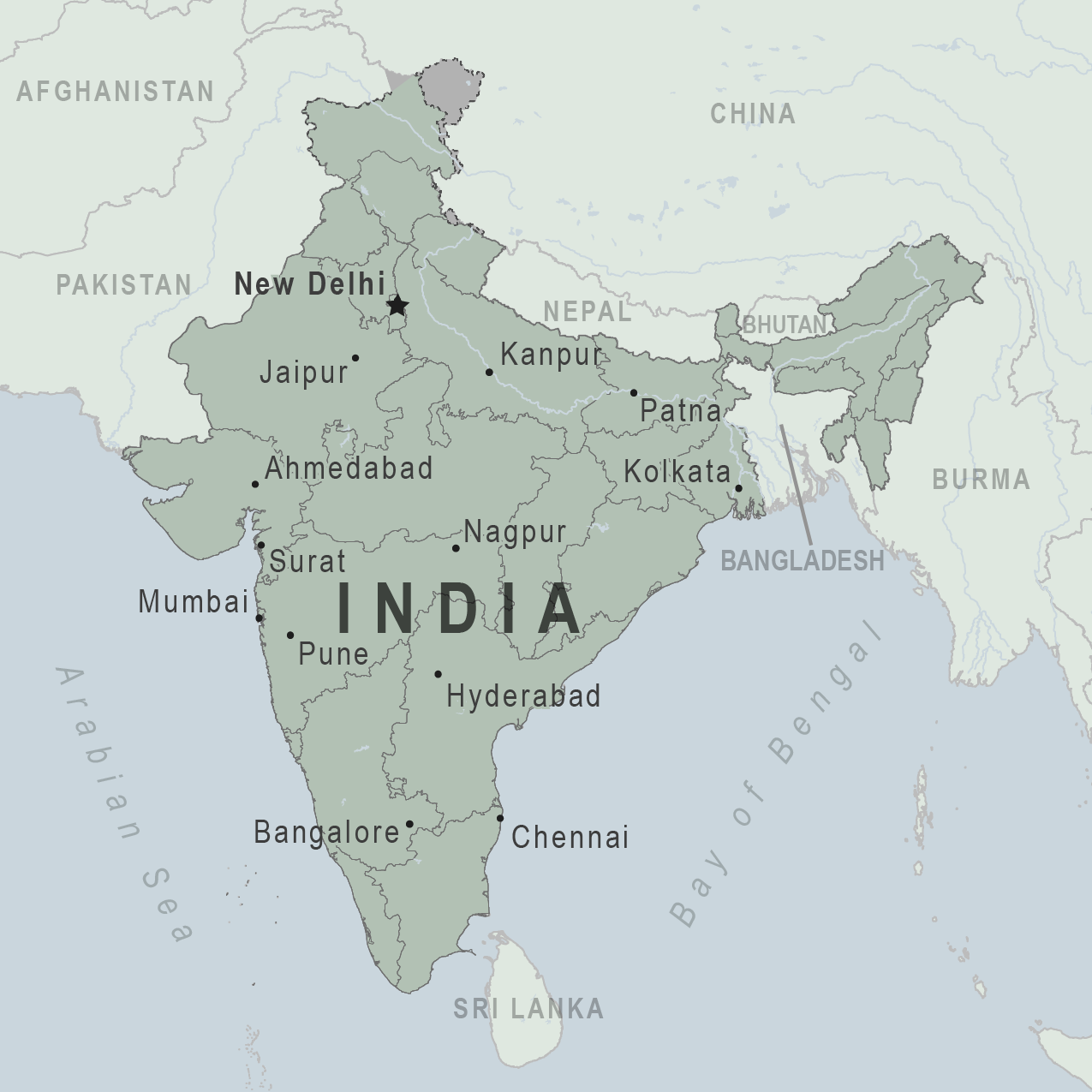
Be aware of current health issues in India. Learn how to protect yourself.
Level 1 Practice Usual Precautions
- Global Measles March 22, 2024 Many international destinations are reporting increased numbers of cases of measles. Destination List: Afghanistan, Angola, Armenia, Azerbaijan, Benin, Burkina Faso, Burundi, Cameroon, Central African Republic, Chad, Côte d'Ivoire (Ivory Coast), Democratic Republic of the Congo, Djibouti, Equatorial Guinea, Ethiopia, Gabon, Ghana, India, Indonesia, Kazakhstan, Kyrgyzstan, Lebanon, Liberia, Libya, Malaysia, Mauritania, Nepal, Niger, Nigeria, Pakistan, Qatar, Republic of South Sudan, Republic of the Congo, Romania, Russia, Senegal, Somalia, Sri Lanka, Sudan, Syria, Tajikistan, Togo, Turkey, United Arab Emirates, Uzbekistan, Yemen, Zambia
⇧ Top
Check the vaccines and medicines list and visit your doctor at least a month before your trip to get vaccines or medicines you may need. If you or your doctor need help finding a location that provides certain vaccines or medicines, visit the Find a Clinic page.
Routine vaccines
Recommendations.
Make sure you are up-to-date on all routine vaccines before every trip. Some of these vaccines include
- Chickenpox (Varicella)
- Diphtheria-Tetanus-Pertussis
- Flu (influenza)
- Measles-Mumps-Rubella (MMR)
Immunization schedules
All eligible travelers should be up to date with their COVID-19 vaccines. Please see Your COVID-19 Vaccination for more information.
COVID-19 vaccine
Cholera is presumed to be present in India. Cholera is rare in travelers. Certain factors may increase the risk of getting cholera or having severe disease ( more information ). Avoiding unsafe food and water and washing your hands can also help prevent cholera. Avoiding unsafe food and water and washing your hands can also help prevent cholera.
Vaccination may be considered for children and adults who are traveling to areas of active cholera transmission.
Cholera - CDC Yellow Book
Hepatitis A
Recommended for unvaccinated travelers one year old or older going to India.
Infants 6 to 11 months old should also be vaccinated against Hepatitis A. The dose does not count toward the routine 2-dose series.
Travelers allergic to a vaccine component or who are younger than 6 months should receive a single dose of immune globulin, which provides effective protection for up to 2 months depending on dosage given.
Unvaccinated travelers who are over 40 years old, immunocompromised, or have chronic medical conditions planning to depart to a risk area in less than 2 weeks should get the initial dose of vaccine and at the same appointment receive immune globulin.
Hepatitis A - CDC Yellow Book
Dosing info - Hep A
Hepatitis B
Recommended for unvaccinated travelers younger than 60 years old traveling to India. Unvaccinated travelers 60 years and older may get vaccinated before traveling to India.
Hepatitis B - CDC Yellow Book
Dosing info - Hep B
Japanese Encephalitis
Recommended for travelers who
- Are moving to an area with Japanese encephalitis to live
- Spend long periods of time, such as a month or more, in areas with Japanese encephalitis
- Frequently travel to areas with Japanese encephalitis
Consider vaccination for travelers
- Spending less than a month in areas with Japanese encephalitis but will be doing activities that increase risk of infection, such as visiting rural areas, hiking or camping, or staying in places without air conditioning, screens, or bed nets
- Going to areas with Japanese encephalitis who are uncertain of their activities or how long they will be there
Not recommended for travelers planning short-term travel to urban areas or travel to areas with no clear Japanese encephalitis season.
Japanese encephalitis - CDC Yellow Book
Japanese Encephalitis Vaccine for US Children
CDC recommends that travelers going to certain areas of India take prescription medicine to prevent malaria. Depending on the medicine you take, you will need to start taking this medicine multiple days before your trip, as well as during and after your trip. Talk to your doctor about which malaria medication you should take.
Find country-specific information about malaria.
Malaria - CDC Yellow Book
Considerations when choosing a drug for malaria prophylaxis (CDC Yellow Book)
Malaria information for India.
Cases of measles are on the rise worldwide. Travelers are at risk of measles if they have not been fully vaccinated at least two weeks prior to departure, or have not had measles in the past, and travel internationally to areas where measles is spreading.
All international travelers should be fully vaccinated against measles with the measles-mumps-rubella (MMR) vaccine, including an early dose for infants 6–11 months, according to CDC’s measles vaccination recommendations for international travel .
Measles (Rubeola) - CDC Yellow Book
Rabid dogs are commonly found in India. However, if you are bitten or scratched by a dog or other mammal while in India, rabies treatment is often available.
Consider rabies vaccination before your trip if your activities mean you will be around dogs or wildlife.
Travelers more likely to encounter rabid animals include
- Campers, adventure travelers, or cave explorers (spelunkers)
- Veterinarians, animal handlers, field biologists, or laboratory workers handling animal specimens
- Visitors to rural areas
Since children are more likely to be bitten or scratched by a dog or other animals, consider rabies vaccination for children traveling to India.
Rabies - CDC Yellow Book
Recommended for most travelers, especially those staying with friends or relatives or visiting smaller cities or rural areas.
Typhoid - CDC Yellow Book
Dosing info - Typhoid
Yellow Fever
- Arrive within 6 days of leaving an area with risk for YF virus transmission, or
- Have been in such an area in transit (exception: passengers and members of flight crews who, while in transit through an airport in an area with risk for YF virus transmission, remained in the airport during their entire stay and the health officer agrees to such an exemption), or
- Arrive on a ship that started from or touched at any port in an area with risk for YF virus transmission ≤30 days before its arrival in India, unless such a ship has been disinsected in accordance with the procedure recommended by the World Health Organization (WHO), or
- Arrive on an aircraft that has been in an area with risk for YF virus transmission and has not been disinsected in accordance with the Indian Aircraft Public Health Rules, 1954, or as recommended by WHO.
- Africa: Angola, Benin, Burkina Faso, Burundi, Cameroon, Central African Republic, Chad, Congo, Côte d’Ivoire, Democratic Republic of the Congo, Equatorial Guinea, Ethiopia, Gabon, The Gambia, Ghana, Guinea, Guinea-Bissau, Kenya, Liberia, Mali, Mauritania, Niger, Nigeria, Rwanda, Senegal, Sierra Leone, South Sudan, Sudan, Togo, Uganda
- Americas: Argentina, Bolivia, Brazil, Colombia, Ecuador, French Guiana, Guyana, Panama, Paraguay, Peru, Suriname, Trinidad & Tobago (Trinidad only), Venezuela
Yellow Fever - CDC Yellow Book
Avoid contaminated water
Leptospirosis
How most people get sick (most common modes of transmission)
- Touching urine or other body fluids from an animal infected with leptospirosis
- Swimming or wading in urine-contaminated fresh water, or contact with urine-contaminated mud
- Drinking water or eating food contaminated with animal urine
- Avoid contaminated water and soil
Clinical Guidance
Avoid bug bites.
Chikungunya
- Mosquito bite
- Avoid Bug Bites
Crimean-Congo Hemorrhagic fever
- Tick bite
- Touching the body fluids of a person or animal infected with CCHF
- Mosquito bite
Leishmaniasis
- Sand fly bite
- An infected pregnant woman can spread it to her unborn baby
Airborne & droplet
Avian/bird flu.
- Being around, touching, or working with infected poultry, such as visiting poultry farms or live-animal markets
- Avoid domestic and wild poultry
- Breathing in air or accidentally eating food contaminated with the urine, droppings, or saliva of infected rodents
- Bite from an infected rodent
- Less commonly, being around someone sick with hantavirus (only occurs with Andes virus)
- Avoid rodents and areas where they live
- Avoid sick people
Tuberculosis (TB)
- Breathe in TB bacteria that is in the air from an infected and contagious person coughing, speaking, or singing.
Learn actions you can take to stay healthy and safe on your trip. Vaccines cannot protect you from many diseases in India, so your behaviors are important.
Eat and drink safely
Food and water standards around the world vary based on the destination. Standards may also differ within a country and risk may change depending on activity type (e.g., hiking versus business trip). You can learn more about safe food and drink choices when traveling by accessing the resources below.
- Choose Safe Food and Drinks When Traveling
- Water Treatment Options When Hiking, Camping or Traveling
- Global Water, Sanitation and Hygiene | Healthy Water
- Avoid Contaminated Water During Travel
You can also visit the Department of State Country Information Pages for additional information about food and water safety.
Prevent bug bites
Bugs (like mosquitoes, ticks, and fleas) can spread a number of diseases in India. Many of these diseases cannot be prevented with a vaccine or medicine. You can reduce your risk by taking steps to prevent bug bites.
What can I do to prevent bug bites?
- Cover exposed skin by wearing long-sleeved shirts, long pants, and hats.
- Use an appropriate insect repellent (see below).
- Use permethrin-treated clothing and gear (such as boots, pants, socks, and tents). Do not use permethrin directly on skin.
- Stay and sleep in air-conditioned or screened rooms.
- Use a bed net if the area where you are sleeping is exposed to the outdoors.
What type of insect repellent should I use?
- FOR PROTECTION AGAINST TICKS AND MOSQUITOES: Use a repellent that contains 20% or more DEET for protection that lasts up to several hours.
- Picaridin (also known as KBR 3023, Bayrepel, and icaridin)
- Oil of lemon eucalyptus (OLE) or para-menthane-diol (PMD)
- 2-undecanone
- Always use insect repellent as directed.
What should I do if I am bitten by bugs?
- Avoid scratching bug bites, and apply hydrocortisone cream or calamine lotion to reduce the itching.
- Check your entire body for ticks after outdoor activity. Be sure to remove ticks properly.
What can I do to avoid bed bugs?
Although bed bugs do not carry disease, they are an annoyance. See our information page about avoiding bug bites for some easy tips to avoid them. For more information on bed bugs, see Bed Bugs .
For more detailed information on avoiding bug bites, see Avoid Bug Bites .
Some diseases in India—such as dengue, Zika, filariasis, and leishmaniasis—are spread by bugs and cannot be prevented with a vaccine. Follow the insect avoidance measures described above to prevent these and other illnesses.
Stay safe outdoors
If your travel plans in India include outdoor activities, take these steps to stay safe and healthy during your trip.
- Stay alert to changing weather conditions and adjust your plans if conditions become unsafe.
- Prepare for activities by wearing the right clothes and packing protective items, such as bug spray, sunscreen, and a basic first aid kit.
- Consider learning basic first aid and CPR before travel. Bring a travel health kit with items appropriate for your activities.
- If you are outside for many hours in heat, eat salty snacks and drink water to stay hydrated and replace salt lost through sweating.
- Protect yourself from UV radiation : use sunscreen with an SPF of at least 15, wear protective clothing, and seek shade during the hottest time of day (10 a.m.–4 p.m.).
- Be especially careful during summer months and at high elevation. Because sunlight reflects off snow, sand, and water, sun exposure may be increased during activities like skiing, swimming, and sailing.
- Very cold temperatures can be dangerous. Dress in layers and cover heads, hands, and feet properly if you are visiting a cold location.
Stay safe around water
- Swim only in designated swimming areas. Obey lifeguards and warning flags on beaches.
- Practice safe boating—follow all boating safety laws, do not drink alcohol if driving a boat, and always wear a life jacket.
- Do not dive into shallow water.
- Do not swim in freshwater in developing areas or where sanitation is poor.
- Avoid swallowing water when swimming. Untreated water can carry germs that make you sick.
- To prevent infections, wear shoes on beaches where there may be animal waste.
Schistosomiasis and leptospirosis, infections that can be spread in fresh water, are found in India. Avoid swimming in fresh, unchlorinated water, such as lakes, ponds, or rivers.
Keep away from animals
Most animals avoid people, but they may attack if they feel threatened, are protecting their young or territory, or if they are injured or ill. Animal bites and scratches can lead to serious diseases such as rabies.
Follow these tips to protect yourself:
- Do not touch or feed any animals you do not know.
- Do not allow animals to lick open wounds, and do not get animal saliva in your eyes or mouth.
- Avoid rodents and their urine and feces.
- Traveling pets should be supervised closely and not allowed to come in contact with local animals.
- If you wake in a room with a bat, seek medical care immediately. Bat bites may be hard to see.
All animals can pose a threat, but be extra careful around dogs, bats, monkeys, sea animals such as jellyfish, and snakes. If you are bitten or scratched by an animal, immediately:
- Wash the wound with soap and clean water.
- Go to a doctor right away.
- Tell your doctor about your injury when you get back to the United States.
Consider buying medical evacuation insurance. Rabies is a deadly disease that must be treated quickly, and treatment may not be available in some countries.
Reduce your exposure to germs
Follow these tips to avoid getting sick or spreading illness to others while traveling:
- Wash your hands often, especially before eating.
- If soap and water aren’t available, clean hands with hand sanitizer (containing at least 60% alcohol).
- Don’t touch your eyes, nose, or mouth. If you need to touch your face, make sure your hands are clean.
- Cover your mouth and nose with a tissue or your sleeve (not your hands) when coughing or sneezing.
- Try to avoid contact with people who are sick.
- If you are sick, stay home or in your hotel room, unless you need medical care.
Avoid sharing body fluids
Diseases can be spread through body fluids, such as saliva, blood, vomit, and semen.
Protect yourself:
- Use latex condoms correctly.
- Do not inject drugs.
- Limit alcohol consumption. People take more risks when intoxicated.
- Do not share needles or any devices that can break the skin. That includes needles for tattoos, piercings, and acupuncture.
- If you receive medical or dental care, make sure the equipment is disinfected or sanitized.
Know how to get medical care while traveling
Plan for how you will get health care during your trip, should the need arise:
- Carry a list of local doctors and hospitals at your destination.
- Review your health insurance plan to determine what medical services it would cover during your trip. Consider purchasing travel health and medical evacuation insurance.
- Carry a card that identifies, in the local language, your blood type, chronic conditions or serious allergies, and the generic names of any medications you take.
- Some prescription drugs may be illegal in other countries. Call India’s embassy to verify that all of your prescription(s) are legal to bring with you.
- Bring all the medicines (including over-the-counter medicines) you think you might need during your trip, including extra in case of travel delays. Ask your doctor to help you get prescriptions filled early if you need to.
Many foreign hospitals and clinics are accredited by the Joint Commission International. A list of accredited facilities is available at their website ( www.jointcommissioninternational.org ).
In some countries, medicine (prescription and over-the-counter) may be substandard or counterfeit. Bring the medicines you will need from the United States to avoid having to buy them at your destination.
Malaria is a risk in India. Fill your malaria prescription before you leave and take enough with you for the entire length of your trip. Follow your doctor’s instructions for taking the pills; some need to be started before you leave.
Select safe transportation
Motor vehicle crashes are the #1 killer of healthy US citizens in foreign countries.
In many places cars, buses, large trucks, rickshaws, bikes, people on foot, and even animals share the same lanes of traffic, increasing the risk for crashes.
Be smart when you are traveling on foot.
- Use sidewalks and marked crosswalks.
- Pay attention to the traffic around you, especially in crowded areas.
- Remember, people on foot do not always have the right of way in other countries.
Riding/Driving
Choose a safe vehicle.
- Choose official taxis or public transportation, such as trains and buses.
- Ride only in cars that have seatbelts.
- Avoid overcrowded, overloaded, top-heavy buses and minivans.
- Avoid riding on motorcycles or motorbikes, especially motorbike taxis. (Many crashes are caused by inexperienced motorbike drivers.)
- Choose newer vehicles—they may have more safety features, such as airbags, and be more reliable.
- Choose larger vehicles, which may provide more protection in crashes.
Think about the driver.
- Do not drive after drinking alcohol or ride with someone who has been drinking.
- Consider hiring a licensed, trained driver familiar with the area.
- Arrange payment before departing.
Follow basic safety tips.
- Wear a seatbelt at all times.
- Sit in the back seat of cars and taxis.
- When on motorbikes or bicycles, always wear a helmet. (Bring a helmet from home, if needed.)
- Avoid driving at night; street lighting in certain parts of India may be poor.
- Do not use a cell phone or text while driving (illegal in many countries).
- Travel during daylight hours only, especially in rural areas.
- If you choose to drive a vehicle in India, learn the local traffic laws and have the proper paperwork.
- Get any driving permits and insurance you may need. Get an International Driving Permit (IDP). Carry the IDP and a US-issued driver's license at all times.
- Check with your auto insurance policy's international coverage, and get more coverage if needed. Make sure you have liability insurance.
- Avoid using local, unscheduled aircraft.
- If possible, fly on larger planes (more than 30 seats); larger airplanes are more likely to have regular safety inspections.
- Try to schedule flights during daylight hours and in good weather.
Medical Evacuation Insurance
If you are seriously injured, emergency care may not be available or may not meet US standards. Trauma care centers are uncommon outside urban areas. Having medical evacuation insurance can be helpful for these reasons.
Helpful Resources
Road Safety Overseas (Information from the US Department of State): Includes tips on driving in other countries, International Driving Permits, auto insurance, and other resources.
The Association for International Road Travel has country-specific Road Travel Reports available for most countries for a minimal fee.
For information traffic safety and road conditions in India, see Travel and Transportation on US Department of State's country-specific information for India .
Traffic flows on the left side of the road in India.
- Always pay close attention to the flow of traffic, especially when crossing the street.
- LOOK RIGHT for approaching traffic.
Maintain personal security
Use the same common sense traveling overseas that you would at home, and always stay alert and aware of your surroundings.
Before you leave
- Research your destination(s), including local laws, customs, and culture.
- Monitor travel advisories and alerts and read travel tips from the US Department of State.
- Enroll in the Smart Traveler Enrollment Program (STEP) .
- Leave a copy of your itinerary, contact information, credit cards, and passport with someone at home.
- Pack as light as possible, and leave at home any item you could not replace.
While at your destination(s)
- Carry contact information for the nearest US embassy or consulate .
- Carry a photocopy of your passport and entry stamp; leave the actual passport securely in your hotel.
- Follow all local laws and social customs.
- Do not wear expensive clothing or jewelry.
- Always keep hotel doors locked, and store valuables in secure areas.
- If possible, choose hotel rooms between the 2nd and 6th floors.
To call for emergency services while in India, dial 100 or, from a mobile phone, 112. Write these numbers down to carry with you during your trip.
Learn as much as you can about India before you travel there. A good place to start is the country-specific information on India from the US Department of State.
Healthy Travel Packing List
Use the Healthy Travel Packing List for India for a list of health-related items to consider packing for your trip. Talk to your doctor about which items are most important for you.
Why does CDC recommend packing these health-related items?
It’s best to be prepared to prevent and treat common illnesses and injuries. Some supplies and medicines may be difficult to find at your destination, may have different names, or may have different ingredients than what you normally use.
If you are not feeling well after your trip, you may need to see a doctor. If you need help finding a travel medicine specialist, see Find a Clinic . Be sure to tell your doctor about your travel, including where you went and what you did on your trip. Also tell your doctor if you were bitten or scratched by an animal while traveling.
If your doctor prescribed antimalarial medicine for your trip, keep taking the rest of your pills after you return home. If you stop taking your medicine too soon, you could still get sick.
Malaria is always a serious disease and may be a deadly illness. If you become ill with a fever either while traveling in a malaria-risk area or after you return home (for up to 1 year), you should seek immediate medical attention and should tell the doctor about your travel history.
For more information on what to do if you are sick after your trip, see Getting Sick after Travel .
Map Disclaimer - The boundaries and names shown and the designations used on maps do not imply the expression of any opinion whatsoever on the part of the Centers for Disease Control and Prevention concerning the legal status of any country, territory, city or area or of its authorities, or concerning the delimitation of its frontiers or boundaries. Approximate border lines for which there may not yet be full agreement are generally marked.
Other Destinations
If you need help finding travel information:
Message & data rates may apply. CDC Privacy Policy
File Formats Help:
- Adobe PDF file
- Microsoft PowerPoint file
- Microsoft Word file
- Microsoft Excel file
- Audio/Video file
- Apple Quicktime file
- RealPlayer file
- Zip Archive file
Exit Notification / Disclaimer Policy
- The Centers for Disease Control and Prevention (CDC) cannot attest to the accuracy of a non-federal website.
- Linking to a non-federal website does not constitute an endorsement by CDC or any of its employees of the sponsors or the information and products presented on the website.
- You will be subject to the destination website's privacy policy when you follow the link.
- CDC is not responsible for Section 508 compliance (accessibility) on other federal or private website.

Instructions For Filling Application Form
Applicants applying for oci-card, please read.
Please fill the fields in BLOCK LETTERS.
A person who has not attained the age of 18 years is considered as minor. In case of minor who cannot sign, his/her left thumb impression may be placed in the signature box. Parents should not sign on the behalf of the children.
Signature/Thumb impression should be confined to the prescribed box. In case of minor applicants, parents should NOT sign in the box.
Photograph to be affixed on the application should be a square shape of size not less than 51*51mm (with 80% coverage of face). It should have plain light color background (not white) without the border with front view of person's head and shoulders showing the full face in middle of the photograph. It should not be stapled and not have any signature.
Photographs that do not conform to these standards will be rejected and may cause a delay in processing the applications. Please see standards of acceptable photographs as Photo Link.
If there are any objections while processing the applications, the same will be displayed on the Online Status Enquiry. Please follow the instructions and send requisite documents to the Indian Mission/ Office where you have applied quoting the File (or Acknowledgement) Number.
After successful registration, copy of Part A and Part B with an online registration number will be printed. Application form on Parts A and B, complete in all respects, along with all relevant enclosures may be submitted to the appropriate office.
Enclosures to be attached with the application:
In case of applications for registration as Overseas Citizen of India Cardholder in lieu of PIO card, only copies of the following documents to be attached:-
Valid passport of the applicant
Valid PIO card of the applicant.
In case of fresh application for registration as OCI Cardholder, following documents are to be attached:-
Proof of present citizenship â Copy of present valid passport (applicable in all cases), with validity of minimum 6 months at the time of submission of application.
In case application is submitted in India, copy of any type of Visa (other than Missionary Visa, Tourist Visa and Mountaineering Visa)/ Residential Permit with 3 months validity as on the date of application.
Evidence of self or parents or grandparents or great grandparents being a citizen of India at the time of, or at any time after the commencement of the Constitution i.e. 26.01.1950 or being eligible to become a citizen of India at the time of commencement of the Constitution i.e. 26.01.1950 or belonging to a territory that became part of India after 15th August, 1947:- These could be:
Copy of the Indian Passport; or
Copy of the Domicile Certificate issued by the Competent Authority; or
Copy of Nativity Certificate from the Competent Authority; or
OCI Card/ PIO card of parents/ spouse along with the documents upon which the OCI/ PIO card was issued; or
Any other proof substantiating the request. Usually applicant does submit a certificate of residence or place of birth of self/parents/grandparents from First Class Magistrate/District Magistrate (DM) of the concerned place.
Evidence of relationship as parent/grandparent/ great grandparent, if their Indian origin is claimed as basis for registration as OCI Cardholder: The document of relationship could be âBirth Certificateâ issued from competent authority mentioning both parentsâ name. In case the birth certificate is issued by a foreign authority, it is to be Apostilled or endorsed by the concerned Indian Mission abroad.
In case of minor child whose both parents are citizens of India or one of the parents is a citizen of India:
Copy of childâs birth certificate
Copy of Indian passport of the parents / one of the parents or copy of the Domicile Certificate or Nativity Certificate issued by the Competent Authority in respect of the parents/ one of the parents or any other proof substantiating the status of the parents/ one of the parents as being Indian citizen(s).
If the parents are divorced, court order of dissolution of marriage, which specifically mentions that the legal custody of the child is with the parent who is applying for the OCI card.
Evidence as spouse of foreign origin of a citizen of India or spouse of foreign origin of an OCI Cardholder:
Registered marriage certificate; indicating that the marriage has taken place before 2 years on the date of application.
In the case of spouse of an Indian citizen - Copy of the Indian Passport of the spouse or copy of the Domicile Certificate or Nativity Certificate issued by the Competent Authority in respect of the Indian spouse or any other proof substantiating the status of the spouse as being an Indian citizen
In the case of spouse of an OCI Cardholder - Copy of the present valid Passport of the spouse and copy of the OCI Card of the spouse and copies of the documents upon which the OCI Card was issued to the spouse.
In case of applications submitted to the Indian Mission/ Post abroad, OCI registration fee of US$ 275 (US$ 100 for conversion of PIO to OCI card) for each application or equivalent amount in local currency to be paid by way of Demand Draft (till online payment facility is introduced).
In case of applications submitted in India, a fee of Rs.15,000/- (Rs. 5500/- for conversion of PIO to OCI card) by way of Demand Draft drawn in favour of âPay and Accounts Officer (Secretariat), Ministry of Home Affairs payable at New Delhi (till online payment facility is introduced).
The documents enclosed with the application should be self attested.
This form when completed should be submitted in original along with photograph, signature and requisite documents.
After submission of the complete application online including documents, photograph and signature, the applicants are required to visit their jurisdictional FRRO/ Mission/ Post with the originals of the supporting documents uploaded with online application for prior verification.
In India to the Foreigners Regional Registration Officer (FRRO), Mumbai, Kolkata, Delhi, Amritsar, Chennai, Hyderabad, Bangalore, Lucknow, Kochi, Kozhikode, Thiruvananthapuram (Trivandrum) , Ahmedabad and Goa.
Outside India, to the Indian Mission/Post having jurisdiction over the country of which the applicant is a citizen or if he/she is not living the country of his/her citizenship, to the Indian Mission/Post having jurisdiction over the country of which the applicant is ordinarily resident.
After receipt of application in concerned office, a File (or Acknowledgement) Number would be issued to the applicant by way of acknowledgement
The applicant can verify the status of his/her application online by quoting the online Registration Number or File (or Acknowledgement) Number.
Please contact Mission/Office where you have applied for OCI registration after 10 days from the date of dispatch of documents from Delhi or any day after receipt of documents at the Mission/Office whichever is earlier. Please produce your passports(s) and PIO card, if applicable, in person/through authorized person for affixing OCI visa sticker and issuance of registration certificate. In case of applications filled in India with FRRO, applicants should go to the FRRO office in person/through authorized person.
For collection of OCI document, the applicant is required to be present at the concerned Indian Mission / FRRO Office in person or he/she can send a duly authorized person, along with his/her passport & PIO card (if any) and the original documents for which self-attested copies were attached at the time of submitting application, for verification purposes.
Please check that all fields in the form are filled in and all necessary enclosures are attached before submission of the form to Indian Mission/Post abroad or FRRO in India.
Concealment of any material fact or false representation etc. will lead to cancellation of registration as Overseas Citizen of India (Please refer to section 7D of the Citizenship Act, 1955).
For Re-print this application, visit : https://ociservices.gov.in
For status Enquiry about your application, visit : https://ociservices.gov.in
Applicants applying for OCI-Card, please note-
It is mandatory to upload Applicant's image and Applicant's signature image during OCI-Registration.
Both the images must be in jpeg or jpg format, with max size 1MB.
- The height and width of the Applicant Photo must be equal.
- The minimum dimensions are 200 pixels (width) x 200 pixels (height).
- The maximum dimensions are 3500 pixels (width) x 3500 pixels (height).
- The height and width of the Signature Photo must have aspect ratio 1:3
- The minimum dimensions are 200 pixels (width) x 67 pixels (height).
- The maximum dimensions are 3500 pixels (width) x 2500 pixels (height).
Kindly be ready with both these images before starting the registration process.
Applicants applying for Miscellaneous Services, please read
- To avail Miscellaneous Service, you must be an existing OCI Card Holder
In case the existing OCI card holder wishes to update the latest information about his latest passport, Change in address/Occupation/Contact details, the OCI card holder can select the option as given below and upload the latest photograph and requisite documents. These details shall be updated into the OCI system records and an acknowledgement shall be shared with OCI card holder on his/her registered email ID. The services under these categories are gratis in nature:
In case issuance of new Passport Details (each time a new passport is issued up to 20 years of age and once after completing 50 years of age)
In case change in address/occupation/contact details.
As per latest MHA guidelines, The re-issuance of new OCI card will be applicable for following categories:
In case of issuance of new passport (once a new passport is issued after completing 20 years of age.)
In case of change of personal particulars viz. name, father's name, nationality etc.
In case of loss/damage of OCI registration certificate.
- In case the existing OCI card holder wishes to apply for re-issuance of OCI Card, application form, complete in all respects, along with all relevant enclosures and requisite fee may be submitted to the Indian Mission/Post/Office in whose jurisdiction the applicant is ordinarily residing irrespective of the fact whether the same Indian Mission/Post/Office has issued the original OCI documents or not.
In case the existing OCI card holder wishes to update/upload the latest information about his latest passport, Change in address/Occupation/Contact details, the OCI card holder can select the option/(s) as given below and upload the latest photograph and requisite documents. These details shall be updated into the OCI system records and an acknowledgement shall be shared with OCI card holder on his/her registered email ID. The services under these categories are gratis in nature.
Photograph be a square shape and it should have plain light color background (not white) without the border with front view of person's head and shoulders showing the full face in middle of the photograph. It should not be stapled and not have any signature.
Please contact Mission/Office where you have applied for OCI registration after 10 days from the date of dispatch of documents from Delhi or any day after receipt of documents at the Mission/Office whichever is earlier. Please produce your passports(s) and PIO card, if applicable, in person/through authorized person for affixing OCI visa sticker and issuance of registration certificate. In case of applications filed in India with FRRO, applicants should go to the FRRO office in person/through authorized person
In case application is submitted in India, copy of any type of Visa (other than Missionary Visa and Mountaineering Visa)/ Residential Permit with 3 months validity as on the date of application.
Please contact Mission/Office where you have applied for OCI registration after 10 days from the date of dispatch of documents from Delhi or any day after receipt of documents at the Mission/Office whichever is earlier. Please produce your passports(s) and PIO card, if applicable, in person/through authorized person for affixing OCI visa sticker and issuance of registration certificate. In case of applications filed in India with FRRO, applicants should go to the FRRO office in person/through authorized person.
Applicants applying for Miscellaneous Services, please note-
There will be re-issue of OCI card only once i.e. when a new passport is issued after completing 20 years of age. This will be as per the existing system of re-issue of OCI cards under OCI Misc. services.
Provision for uploading of a copy of the new passport containing the photo and also a latest photo on the online system each time a new passport is issued up to 20 years of age and once after completing 50 years of age.
In the case of those who have been registered as OCI card holder as spouse of foreign origin of a citizen of India or spouse of foreign origin of an OCI card holder, provision for uploading a copy of the new passport containing the photo and also a latest photo on the online system each time a new passport is issued, along with the following:-
A declaration signed by the OCI card holder and his/ her Indian spouse or OCI card holder spouse to the effect that their marriage is still subsisting.
In case the OCI card holder is the spouse of an Indian citizen, copy of the Indian passport of the Indian spouse.
In case the OCI card holder is the spouse of an OCI card holder, passport & OCI card of the OCI card holder spouse.
OCI card holder may upload the documents within 3 months of issue of new passport. This service will be on gratis basis. A simple form along with provision for uploading these documents to be provided.
On uploading of the documents as at (2) & (3) above, an auto email to be sent by the system to the OCI card holder confirming that the documents have been successfully uploaded.
After verification of the uploaded details by concerned Indian mission/FRRO, an acknowledgement through email to be automatically sent to the OCI card holder informing âUpdated details have been taken on recordâ.
It is mandatory to upload Applicant's image and Applicant's signature image during OCI-Registration
Both the images must be in jpeg or jpg format, with max size 500kb.
Applicants applying for Special Permission, please read
To apply for special permission for any of the activity, you must be an existing OCI Card Holder.
You may apply for the special permission of any one of the activities listed below:
To undertake research;
To undertake any Missionary or Tabligh or Mountaineering or Journalistic activities;
To undertake internship in any foreign Diplomatic Missions or foreign Government organisations in India or to take up employment in any foreign Diplomatic Missions in India;
To visit any place which falls within the Protected or Restricted or prohibited areas as notified by the Central Government or competent authority;
To participate in G20 Summit
Photograph should be a square shape with 80% coverage of face. It should have plain light color background (not white) without the border with front view of person's head and shoulders showing the full face in middle of the photograph. It should not be stapled and not have any signature.
The Overseas Citizen of India Card holder applying for permission for activities the following documents need to be uploaded ;
For Research Activities-
Copy of OCI Card
Copy of Passport (in case of dual nationality, both passports)
Copy of admission letter received from university/ institute
Bonafide certificate from the institute mentioning period of research
Copy of synopsis of research papers
Duly certified Form 'G'
Evidence of financial resources
Residence proof
Recent photograph
Recent Signature
Undertaking from the applicant:
For Mountaineering Activities-
Copy of permission from Indian Mountaineering Foundation
Copy of expedition details
PAP/ RAP permission, if any
For Missionary work-
Copy of sponsorship from institution/ organization
For internship/ employment-
Contract / sponsorship of Internship/ Employment
For Tabligh work-
For journalistic activities-
Copy of contract/ sponsorship with organization
Documents related to designation in media platform
Documentary Clearance Form along with required documents as per format prescribed on MEA's website www.mea.gov.in (if applicable)
Undertaking for making documentary as per format prescribed on MEA's website www.mea.gov.in (if applicable)
For G20 Summit-
Copy of Passport
Letter of Accreditation
For Visit Protected or Restricted or prohibited areas as notified by the government: please visit https://indianfrro.gov.in/ for further details.
Undertaking from the applicant is as given below:
"I undertake that I will not engage in an prohibited activity other than the one for which I have been permitteyd. Further, I understand that if I violate any of the provisions of the Citizenship Act, 1955 or provisions of any other law or any law for time being in force as may be specified by Government, my OCI registration will not only be cancelled but also I shall be prosecuted as per law of the land."
Once the application is submitted by OCI Card holder, acknowledgment will be sent to him on e-mail and link will be provided to check status of application.
As soon as permission is granted by concerned Indian mission or Indian FRRO, the status will be shared with the applicant on e-mail
For Status Enquiry about your application, visit : https://ociservices.gov.in
Applicants applying for Permission, please note-
It is mandatory to upload Applicant's photograph and Applicant's signature image during OCI-Registration.
The maximum dimensions are 1500 pixels (width) x 1500 pixels (height).
Overseas Citizen Of India Cardholder
All valid pio-card holders may now register to become oci-card holder..
For more details click here
New OCI Registration
Before you start.
- Check your eligibility before you start your registration.
- If you are already an OCI Card Holder, kindly use OCI Miscellaneous Services.
- If you are an PIO Card Holder, kindly register through OCI Registration (In Lieu Of Valid PIO-Card).
- If you are an PIO Card Holder and card is in lost state, kindly register through OCI Registration (In Lieu Of Lost PIO-Card).
- To reprint your already registered application, kindly use 'Re-Print Submitted Application' service.
- In case of urgent travel, applicants may apply for appropriate visa.
Prerequisites
- Kindly be ready with Applicant's image and Applicant's signature image (Max size 1MB).
- Kindly be ready with supporting documents in PDF format (Max size 1000kb).
After Registration
- After submission of online application, a copy of the application form will be printed with an Online Registration Number.
- Application form, complete in all respects, along with all relevant enclosures and requisite fee may be submitted to the Indian Mission/Post/Office in whose jurisdiction the applicant is ordinarily residing irrespective of the fact whether the same Indian Mission/Post/Office has issued the original OCI documents or not.
OCI Registration (In Lieu Of Valid PIO-Card)
- Bureau of Immigration(BoI) will accept PIO cards as valid travel document till 30th September, 2019 along with valid foreign passport and the Indian Immigration check posts will continue to consider all PIO cards valid for exit/entry into India till 30th September, 2019. This extension of timeline is subject to the condition that if in the meantime any deadline is notify by the ICAO thereby making hand written PIO cards invalid the PIO cardholders may have to obtain appropriate visa from Indian Missions/Post abroad.
- The height and width of the Signature Photo must have aspect ratio 1:3.
OCI Registration (In Lieu Of Lost PIO-Card)
Oci miscellaneous services.
- In case of issuance of new passport.
- In case of change of personal particulars viz. name,fatherâs name,nationality etc.
- In case of loss/damage of OCI registration certificate/visa.
- In case of change of address/occupation
- In case the existing OCI card holder wishes to update/upload the latest information about his latest passport, Change in address/Occupation/Contact details, the OCI card holder can select the option/(s) as given below and upload the latest photograph and requisite documents. These details shall be updated into the OCI system records and an acknowledgement shall be shared with OCI card holder on his/her registered email ID. The services under these categories are gratis in nature: 1. In case issuance of new Passport Details (each time a new passport is issued up to 20 years of age and once after completing 50 years of age) 2. In case change in address/occupation/contact details.
- These Misc services can be availed for re-issuance of OCI Card as well as updating the information time to time as mentioned in the MHA notification dated 16th April, 2021. The re-issuance of new OCI card will be applicable for following categories: 1. In case of issuance of new passport (once a new passport is issued after completing 20 years of age.) 2. In case of change of personal particulars viz. name, father's name, nationality etc. 3. In case of loss/damage of OCI registration certificate.
- In case of Renunciation of OCI Card.
- Kindly be ready with Applicant's image and Applicant's signature image (Max size 1Mb).
- In case the existing OCI card holder wishes to update/upload the latest information about his latest passport, Change in address/Occupation/Contact details, the OCI card holder can select the option/(s) as given below and upload the latest photograph and requisite documents. These details shall be updated into the OCI system records and an acknowledgement shall be shared with OCI card holder on his/her registered email ID. The services under these categories are gratis in nature
Apply For Special Permission / To participate in G20 Summit
- To apply for permission for any of the activity, you must be an existing OCI Card Holder.
- to undertake research;
- to undertake any Missionary or Tabligh or Mountaineering or Journalistic activities;
- to undertake internship in any foreign Diplomatic Missions or foreign Government organisations in India or to take up employment in any foreign Diplomatic Missions in India;
- to visit any place which falls within the Protected or Restricted or prohibited areas as notified by the Central Government or competent authority;
- to participate in G20 Summit
- After submission of online application, applicant will be informed regarding permission through e-mail.
OCI Document Upload/ Re-upload
- This feature is to re-upload supporting documents for your OCI application.
- This feature can be used only after successful online registration.
- Uploading/Re-uploading of documents cannot be performed once your application gets acknowledged at Indian Mission/FRRO.
- Kindly be ready with supporting document in PDF format (Max size 1000kb).
- Kindly be ready with File reference number of your application along with the passport number.
OCI Image Upload/ Re-upload
- This feature is to re-upload Applicant's Image/ Signature.
- Re-upload cannot be performed once your application gets acknowledged at Indian Mission/FRRO.
Status Enquiry
- This feature is to check current status of your application.
- This feature will be useful only if your application gets acknowledged at Indian Mission/FRRO
- Ordinarily, OCI Registration Certificate and Visa are available for delivery within 60 days from the date of acknowledgment
Re-Print Submitted Applications
- This feature is to download and reprint application form, that you have already completed online.
- Reprinting cannot be performed after your application gets acknowledged at Indian Mission/FRRO.
- Kindly be ready with File reference number of applicant's application, applicant's date of birth along with the passport number.
Book Appointment / Reschedule Booking Appointment
- Environment
- Road to Net Zero
- Art & Design
- Film & TV
- Music & On-stage
- Pop Culture
- Fashion & Beauty
- Home & Garden
- Things to do
- Combat Sports
- Horse Racing
- Beyond the Headlines
- Trending Middle East
- Business Extra
- Culture Bites
- Year of Elections
- Pocketful of Dirhams
- Books of My Life
- Iraq: 20 Years On
UAE-India travel: everything you need to know as PCR tests dropped for Emirates
Passengers arriving on international flights can skip mandatory home quarantine and tourists from 99 countries no longer need pcr tests.
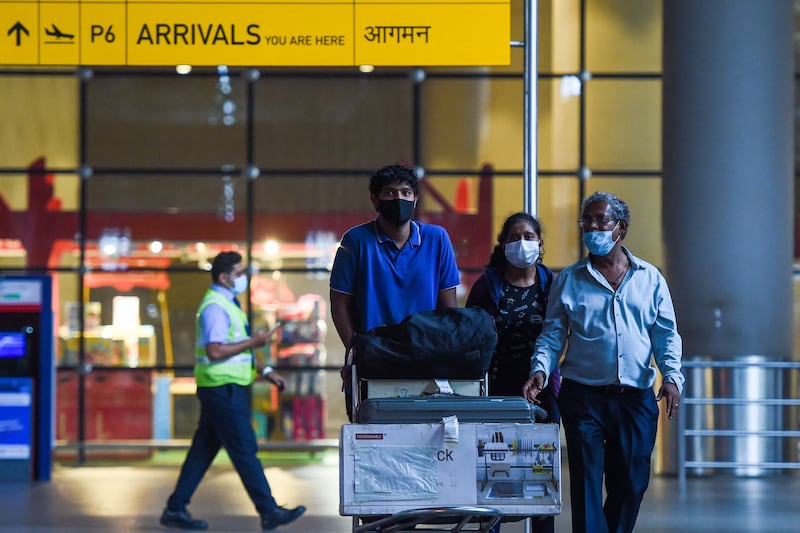
India lifted a ban on international flights on March 27. AFP

India has updated entry requirements for incoming travellers, removing the need for vaccinated passengers from certain countries to present a negative PCR test result on arrival.
The rules now apply to travellers from 99 countries, including the UAE, Oman, Saudi Arabia and Lebanon .
Passengers who received both doses of their Covid-19 vaccination in India also no longer need to present a negative PCR result, meaning Indian residents returning to the country from the UAE are exempt from having to take a test when leaving the Emirates.
If you’re planning to travel to India in the near future, here’s everything you need to know before you go.
Do I need to quarantine in India?
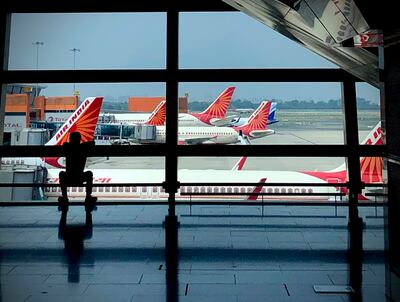
Travellers arriving in India no longer need to quarantine after authorities revoked the rule on seven-day mandatory home isolation for passengers coming from overseas. Only travellers who are symptomatic, and subsequently test positive for Covid-19, will have to quarantine.
Instead, all travellers should self-monitor their health for 14 days from the date they arrive in India.
Do the new rules apply to vaccinated passengers?
The new rules apply to all arriving passengers, regardless of vaccination status.
Do children need to quarantine on arrival in India?
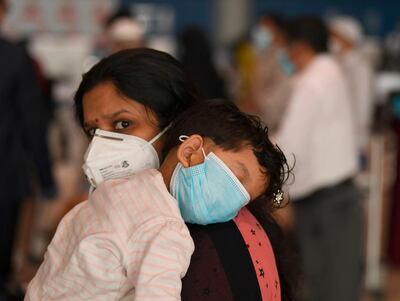
No, children do not need to quarantine on arrival, but parents should monitor their symptoms for 14 days after arriving in the country.
Do I need a negative PCR test to take a flight?
Vaccinated arrivals from certain countries no longer need to present a negative PCR test result when flying to India. Passengers who received both doses of a Covid-19 vaccination in India will also no longer need to present a negative PCR result, regardless of the country they are flying from.
There are 99 countries on the list from where PCR tests are not required, including the UAE. The detailed list can be found here and is updated regularly.
All other travellers must have a negative PCR test taken within 72 hours of departure. Travellers should upload the test results to the Air Suvidha portal before flying.
The best thing in these testing times is getting a COVID-19 test done before you get on your flight. Because you deserve to enjoy your time in the sky. Book your RT-PCR & Rapid PCR slot now. https://t.co/WDL1C6TunY pic.twitter.com/zaaHFo71Qy — Delhi Airport (@DelhiAirport) January 7, 2022
Children below 5 are exempt from testing rules both pre and post-arrival, but those aged 5 and above must follow the rules in place for adults. Any children who develop symptoms of Covid-19 at any point during their trip will have to take a PCR test, regardless of age.
What do I need to do before flying to India?
There are a few documents that need to be submitted by passengers travelling to India.
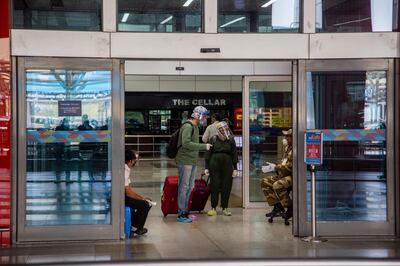
Firstly, there is a self-declaration form which can be submitted online via the Air Suvidha portal , this needs to be filled in before travel and must include details of any countries visited in the previous 14 days.
A declaration also needs to be completed for each passenger, certifying that the Covid-19 negative certificate submitted is authentic, and an undertaking to face criminal charges if it turns out otherwise.
Travellers also need to download the Aarogya Setu app on their mobile devices for Covid-19 track and trace purposes in India.
Will I be tested for Covid-19 on arrival in India?
Some travellers will need to undergo further PCR testing for Covid-19 on arrival in India. New regulations state that 2 per cent of total passengers on each flight will undergo random post-arrival testing at the airport.
These travellers will be identified by the airlines. After the on-arrival test, they can leave the airport and will only need to isolate if they test positive.
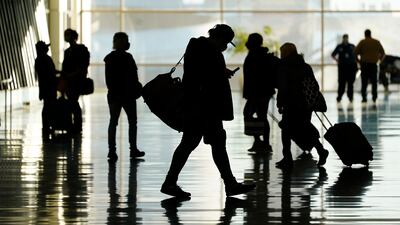
There will also be thermal screening by health officials in airports across the country.
Is India still using its 'at-risk' list for travel?
The most recent update to India's travel rules means that the previous "at-risk" list of countries from where travellers had to undergo additional entry rules no longer applies.
What happens if I test positive while in India?
If you develop symptoms and subsequently get a positive PCR test result, then you’ll have to go to an isolation facility where a doctor will assess you and advise on the follow-up process.
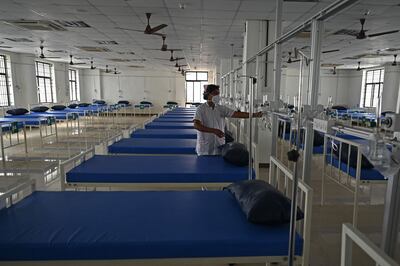
Close contacts of a positive case will be contacted, including co-passengers and anyone in the home or hotel where the person with Covid-19 has been isolating. Fellow passengers who were seated three rows in front and three rows behind anyone who tests positive will also be considered close contacts.
Until when are the new rules in place?
No end date has been set for the new home quarantine rules with official documents stating that the rules are in place until “further orders”.
India recorded 913 new Covid-19 cases on April 3 alongside 13 new deaths, according to Johns Hopkins University data.
The country has recorded more than 43 million total cases since the onset of the global pandemic, says Johns Hopkins.
Anything else I need to know?
Different states in India may also have their own rules for Covid-19 management, so travellers should check the rules in place for the destination they are travelling to.

India USA Travel
Travel restrictions to india – updates for april 23rd, 2021.
India is now facing outbound travel restrictions , having opened air bubbles since the first COVID-19 wave and now being red-listed by several countries as the second wave approaches. As the number of Coronavirus cases in India has surpassed 2 lakh every day, several countries have expressed concerns about travelling to and from India. The United Kingdom recently added India to its travel blacklist.
Following this, the US Center for Disease Control and Prevention (CDC) advised people to stay away from India.
New Zealand banned all Indian travelers from entering the country earlier this month (including their residents). Hong Kong, too, took action and placed a 14-day ban on all passenger flights from India.
India had previously reported over 100 cases of the latest Coronavirus strains. Since the transmission rate of mutated strains is very high, countries like the United Kingdom and Hong Kong have been placed on high alert. Not to mention, the regular increase in active COVID-19 cases is a concern not only for India, but also for other countries if travel restrictions are not enforced.
In this article…
US Travel Restrictions to India
Regular international flights have been suspended to India, but Vande Bharat Mission repatriation flights and “air transport bubbles” from various countries around the world are still operating — but only those who meet the visa requirements are permitted to board these flights.
All visitors are subjected to a screening process. Anyone who exhibits signs will be taken to a hospital. Except for returning Indian nationals, land borders are locked.
Beginning February 22, all travelers must submit a self-declaration form to the Air Suvidha Portal , as well as a negative PCR test was taken within 72 hours of the trip . They must also announce on the platform that they will quarantine for 14 days at home when they arrive.
People should avoid traveling to India, according to the CDC’s travel website , since they are at risk of contracting and transmitting Coronavirus (mutated variants) even if they are completely vaccinated. People would need to get completely vaccinated before traveling, as well as wear a mask and follow social distancing guidelines, according to the CDC.
Recommended Plans ⭐⭐⭐⭐ Atlas America 100% Coverage, Comprehensive plan ⭐⭐⭐ Safe Travels USA 100% Coverage, Comprehensive plan ⭐⭐ Patriot America Plus 100% Coverage, Comprehensive plan
Compare Plans
UK Travel Restrictions to India
On arrival in India, travelers arriving from the United Kingdom or the Middle East must fill out the same form ( self-declaration form to the Air Suvidha Portal ), declaring their travel history for the previous 14 days and any connecting flights, as well as providing a negative PCR exam.
They will be separated during the flight or when disembarking, and must pay for a second PCR test when they arrive. They must remain at the airport until their results are received.
Passengers from these countries who test negative in transit will board their connecting flights, but they must quarantine at home for seven days and take a test at the end.
Travel Restrictions to India by Other Countries
In March 2020, India halted international flight operations as Covid-19 spread around the world after breaking out in Wuhan, China, at least four years prior. India sent out special flight missions to carry stranded people from all over the world home. For the majority of 2020, daily international flight operations were effectively halted.
India is currently subject to travel restrictions by New Zealand , Hong Kong, Pakistan, the United States , and the United Kingdom. These limitations are not the same as they were previously.
Following the discovery of 23 Covid-19 cases among passengers travelling from outside New Zealand earlier this month, the country placed a ban on all travel from India. The Indian version of SARS-CoV-2 was found in 17 of them. As a result, India was subjected to a travel ban.
Hong Kong designated India, the Philippines, and Pakistan as “high-risk” countries for the spread of Covid-19 and placed a 14-day travel ban on them. Those who spend more than two hours in India and the other two nations, also during transit, are barred from visiting Hong Kong for 14 days.
Pakistan put India on a Category-C list of countries on Monday, prohibiting travel to and from India due to an increase in Covid-19 incidents. On the occasion of Baishakhi, more than 800 pilgrims from India travelled to Pakistan last week.
India has been added to the United Kingdom’s “red list” of countries affected by the Covid-19 pandemic. Boris Johnson’s April visit to India for summit-level bilateral talks with Prime Minister Narendra Modi was canceled. Due to a travel restriction order issued by the United Kingdom, only British citizens are permitted to travel from India to the United Kingdom. Others are unable to travel to the UK from India.
On Monday, the United States issued an alert to its people planning a trip to India. The Center for Disease Control and Prevention (CDC) has advised Americans to stay away from India.
“If you must fly to India, get fully vaccinated before going,” the CDC advised, noting that even fully vaccinated travellers could be at risk of contracting and spreading Covid-19 variants in India.
This came a day after the United States announced that its people could stop travelling to approximately 80% of the planet.
Several countries have said that despite boarding the flight with a “negative” certificate, travellers from India were found positive for Covid-19 on arrival. Around one-third of the passengers who arrived in Canada between March 3 and 19 and tested positive for Covid-19 on arrival were from Delhi, according to a recent study.
Last year, Hong Kong authorities filed a similar lawsuit, alleging that Indian flight operators brought Covid-19 positive passengers to the capital.
Who can travel to India?
Tourists are not allowed at this time. Only Indian citizens, those relocating to India as permanent residents, and those from certain countries who apply for visas other than tourist visas are permitted to enter.
Only ambassadors and those specified in a government memorandum are allowed to travel from the United States, the United Kingdom, and Canada. Other visa holders from the European Union, Africa, and South America, on the other hand, are permitted to fly as long as they are not on a tourist visa .
Recommended Plan For Your Travel

Safe Travels
Best for Visitors Economical Plan COVID19 included Covers Medical Pre-Existing Conditions First Health Network

Atlas America
Rated “A – Excellent” COVID19 included Covers Medical Covers Dental Trip Cancellation Full Refund on Cancel

About the Author
Mani Karthik
Ex “NRI” and Founder of the “Back to India” movement. I share my experience about immigrating to USA here.
USA Travel Checklist – Items to Carry & Things To Do
Forms to fill when traveling from india to usa, vaccinations for us citizens traveling to india, leave a reply cancel reply.
Your email address will not be published. Required fields are marked *
- Logout Login
- Adventure Holidays
- Weekend Getaways
- Driving Holidays
Travel News
TRAVEL NEWS

TRAVEL NEWS , UTTAR PRADESH
- UP: First-ever sky glass walk, resembling Lord Rama's bow and arrow, to open in Chitrakoot
Built from a fusion of glass and steel, this marvel of engineering takes the form of Lord Ram's revered bow and arrow, thereby sym...
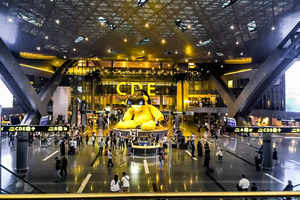
- Doha’s Hamad International Airport crowned as the best airport in the world
Skytrax named Hamad International Airport as the best globally, surpassing Changi Airport. The 2024 World Airport Awards took plac...
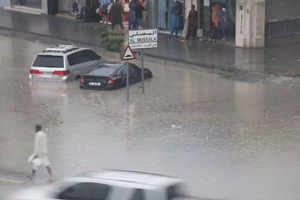
Dubai Airport releases travel advisory amid heavy rainfall; Indian consulate issues helpline numbers
Dubai struggles with heavy rainfall, DXB chaos. Record rainfall in Al Ain. Flooded malls, workers clearing water from Chanel, Fend...
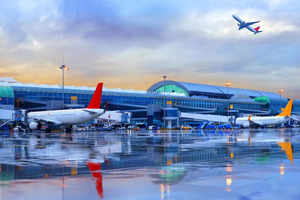
TRAVEL NEWS , TURKEY
Turkey mandates e-ATV requirement for Indians travelling to South America via Istanbul
Turkish Embassy in New Delhi updated travel procedures for Indian and Nepalese passport holders transiting through Istanbul Airpor...
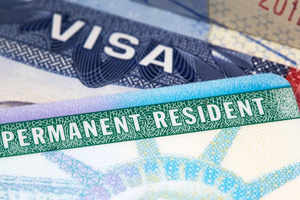
Over 10 lakh Indians face years of wait time to acquire a US Green Card!
Over 10 lakhs Indians experience longer wait times than Chinese nationals for US green cards due to a cap on green cards, low annu...
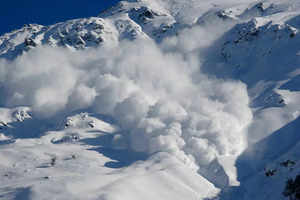
TRAVEL NEWS , LAHAUL-SPITI
Lahaul and Spiti: Travel advisory issued due to avalanche threat
According to the Meteorological Centre in Shimla, Hansa and Koksar in Lahaul and Spiti have recorded 5 cm and 2 cm of snowfall, re...

Vrindavan to soon have a 70-storey skyscraper temple to boost tourism
To accommodate this influx, the temple complex is set to feature one of the largest parking facilities, multi-level parking capabl...
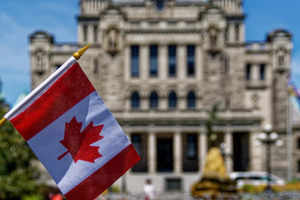
TRAVEL NEWS , CANADA
Canada reduces staff at Indian missions: Will visa services be impacted?
Canada, led by Justin Trudeau, strategically reduced Indian mission staff due to a shortage of Canadian supervisors. Despite this,...

TRAVEL NEWS , SAUDI ARABIA
Saudi Arabia changes Umrah visa rule; to remain valid for 3 months from issuance date
Under the new Umrah visa rule, the three-month validity of the visa begins from the day of issuance. For someone with an Umrah vis...

TRAVEL NEWS , WORLD
Italy and Spain launch Digital Nomad Visa: what does it mean?
As reported earlier, Italy recently introduced a visa program tailored for digital nomads, which will be enabling professionals to...
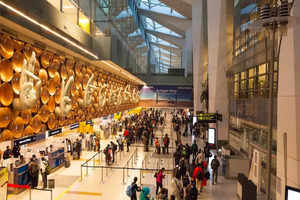
TRAVEL NEWS , DELHI
Delhi Airport ranked among world’s top 10 busiest airports: ACI report
Delhi's IGI Airport ranked 10th globally in 2023. If reports are to go by, Delhi airport has hosted more than 72.2 million passeng...

TRAVEL NEWS , INDIA
Amarnath Yatra 2024: Pilgrimage to start from June 29, registration now open
The annual Amarnath Yatra, from June 29 to August 19, 2024, in Ladar Valley, involves early registration for pilgrims ensuring sec...

Saudi Arabia: Deserts around Mecca and Medina are turning green due to heavy rainfall
Recent heavy rains in Saudi desert near Mecca and Medina birthed a lush oasis, attracting locals, visitors, and wildlife, showcasi...

TRAVEL TRENDS , CAMBODIA
700 species of wildlife discovered inside Cambodian mangroves!
Stefanie Rog's survey in Cambodia's Peam Krasop sanctuary revealed over 700 wildlife species in the mangroves, showcasing the dive...

TRAVEL NEWS , ROME
After 1000 years, water returns to Rome’s famed Baths of Caracalla!
Caracalla Baths in Rome experience water's return after a millennium, with a new pool evoking ancient grandeur. A harmonious blend...

Iran Israel war travel advisory: India issues advisory, says “not to travel to Iran or Israel”
Iran attacked Israel, leading to sirens and explosions in Tel Aviv and Jerusalem. India issued a travel advisory due to escalating...

Digi Yatra expected at 14 more airport this month; check full list
According to a report, the rollout timeline for these new airports hasn't been specified by Khadakbhavi, but if all goes as planne...

TRAVEL NEWS , ITALY
Italy rolls out its long-awaited Digital Nomad Visa; find out how to qualify
Italy introduced a Digital Nomad visa on April 4th, targeting skilled non-EU citizens to reside and work for an extended period. T...

Maldives plans to win back Indian tourists by organising roadshows in India
Maldives plans roadshows in Indian cities to attract back Indian tourists after a decline. The roadshows aim to partner with the I...
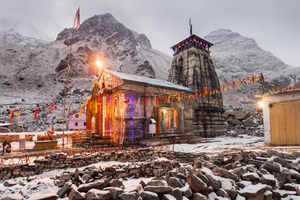
Char Dham Yatra 2024: Dates announced and registration details
The Char Dham Yatra pilgrimage in Uttarakhand begins as Badrinath Dham, Kedarnath Dham, and Gangotri Dham open for devotees seekin...
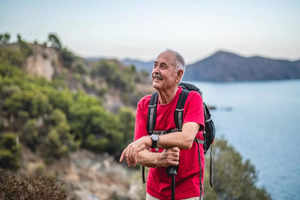
TRAVEL NEWS , SPAIN
This European nation is encouraging retirees to travel by offering discounted vacations
Administered by Spain's Institute for Seniors and Social Services (IMSERSO), this innovative program, termed ‘social tourism,’ bel...

Ayodhya: COVID-19 quarantine wards set up for foreign visitors ahead of Ram Navami
Stringent measures for foreign visitors in Ayodhya during Ram Navami include 14-day quarantine. Special deity attire with khadi co...
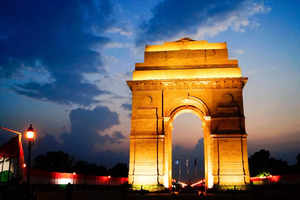
UNESCO World Heritage Young Professionals Forum 2024 to be held in India; application process is open
Applications open for the UNESCO World Heritage Young Professionals Forum 2024 in New Delhi, India. The forum aims to enrich young...

Italy: Mount Etna releases perfect ‘smoke rings’ into the sky; see pictures
Sicily’s Mount Etna emits volcanic vortex rings, with vapor composition of 80% water vapor, sulfur dioxide, and carbon dioxide. Th...
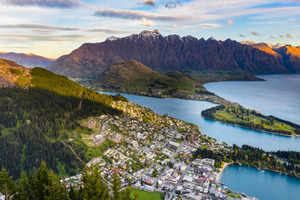
TRAVEL NEWS , NEW ZEALAND
New Zealand tightens visa rules; will Indians be impacted?
New Zealand tightens visa rules, emphasising English proficiency, skill requirements, and shorter stay duration for certain roles ...

Follow us on
Latest news.
- Vietnam: Understanding the wonders of the great Mekong River Delta
- Jim Corbett National Park: The historical capital of the tiger kingdom
- A journey through the enigmatic Pinnacles in Australia, one of the world's weirdest landscapes
Congratulations!
You have been successfully added to the mailing list of Times of India Travel. To complete the subscription process, kindly open your inbox and click on the confirmation link which has been emailed to you.
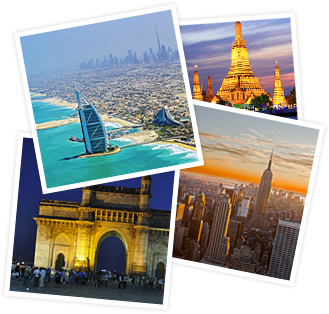
TOP STORIES

World Heritage Day 2024: India’s 5 remarkable site...

Doha’s Hamad International Airport crowned as the ...

Swiss summers: 10 fun-filled experiences to have i...

Pilgrimage destinations in India for the summer

World’s most remote, yet rewarding, places to visi...

Visit these 6 butterfly parks in India for a journ...
Join us on facebook close.
France, India, Russia, UK issue travel warnings over Israel-Iran tensions
Warnings come as Tehran promises reprisals against Israel for the deadly April 1 attack on an Iranian consulate in Syria.
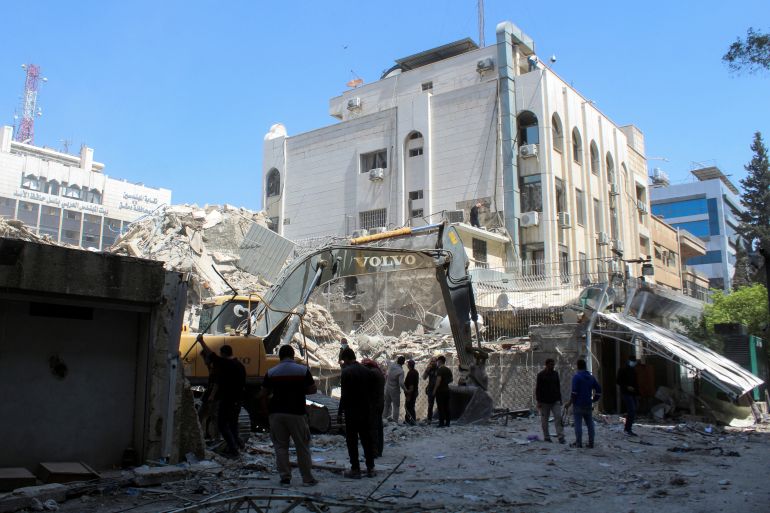
Countries including France, India, Russia, Poland and the United Kingdom have warned their citizens against travelling to Israel, the occupied Palestinian territories and, in some cases, the wider region amid threats of an Iranian attack in response to a strike this month on its consulate in Damascus.
Iran has threatened reprisals against Israel over the strike in the Syrian capital on April 1, which killed seven Islamic Revolutionary Guard Corps members, including two generals, leading to fears of an escalation of violence in the Middle East.
Keep reading
Iran’s khamenei promises ‘israel will be punished’ for syria strike, who was mohammad reza zahedi, an iranian general killed by israel in syria, irgc warns israel attacks ‘won’t go unanswered’ as iran marks al-quds day, tensions rise amid expectations of iran retaliation against israel.
The French Ministry for Europe and Foreign Affairs on Friday advised its citizens against travelling to Iran, Lebanon, Israel and the Palestinian territories.
In a statement on the social media platform X, the ministry added that relatives of Iran-based diplomats will return to France and French civil servants are now banned from conducting any missions in the countries and territories in question.
The UK told its citizens to avoid all but essential travel to Israel and Palestine over the “possibility of an attack on Israeli territory from Iran”.
In an update, the British Foreign and Commonwealth Office warned against “all travel” to northern Israel, the Gaza Strip, areas near Gaza and the occupied West Bank – excluding occupied East Jerusalem and Route 1 between Jerusalem and Tel Aviv.
Russia strongly recommended its citizens “refrain from travelling to the region”, emphasising security risks in Israel, Lebanon and Palestine.
“The situation in the Palestinian-Israeli conflict zone as well as in the area of the ‘Blue Line’ between Lebanon and Israel remains unstable,” its Ministry of Foreign Affairs said.
Poland’s Foreign Ministry also advised against travel to Israel, Palestine and Lebanon.
“It cannot be ruled out that there will be a sudden escalation of military operations, which would cause significant difficulties in leaving these three countries,” it said in a statement. “Any escalation may lead to significant restrictions in air traffic and the inability to cross land border crossings.”
India’s statement covered Iran and Israel, calling on Indians not to go to the two countries until further notice in view of the “prevailing situation in the region”.
The Ministry of External Affairs in New Delhi said Indian citizens who are in the two countries should observe “utmost precautions about their safety and restrict their movements to the minimum”.
Germany meanwhile warned its citizens to leave Iran specifically, saying escalating tensions could affect exit routes.
“In the current tensions, especially between Israel and Iran, there is a risk of a sudden escalation,” the Foreign Office said. “German citizens are at concrete risk of being arbitrarily arrested and interrogated and being given long prison sentences. Dual citizens with Iranian and German nationality are especially at risk,” it added.
Separately, German flagship airline Lufthansa extended its suspension of flights to and from Tehran until Thursday and will not use Iranian airspace during that time.
Real and viable threat, US says
The United States has restricted its employees in Israel and their family members from personal travel outside the greater Tel Aviv, Jerusalem and Beersheba areas.
An imminent attack by Iran on Israel is a “real” and “viable” threat, US National Security Council spokesman John Kirby told journalists on Friday, adding that Washington would make sure the Israelis “have what they need and that they’re able to defend themselves”.
Speaking to reporters on Friday, President Joe Biden said: “We are devoted to the defence of Israel. We will support Israel. We will help defend Israel, and Iran will not succeed.”
The top US commander for the Middle East, General Erik Kurilla, is also in Israel for talks with its military officials on security threats. His trip was moved up from a previously scheduled date “due to recent developments”, Pentagon spokesman Major General Pat Ryder said on Thursday.
After Kurilla discussed the tensions with Iran with Israeli Defence Minister Yoav Gallant on Friday, Gallant said the US and Israel were “shoulder to shoulder” in facing possible threats.
“We are prepared to defend ourselves on the ground and in the air, in close cooperation with our partners, and we will know how to respond,” the defence chief added.
The Wall Street Journal, quoting a person familiar with the matter, reported on Thursday that Israel was preparing for an attack by Iran as soon as Friday or Saturday.
Al Jazeera’s Hamdah Salhut, reporting from East Jerusalem, said the Israeli army announced that it was preparing on all fronts offensively and defensively.
“A couple of weeks ago, the Israelis increased their alertness level, calling up reservists and bolstering air defence systems,” she said, adding that Israeli officials said they were prepared for anything.
Israel has bombarded the Gaza Strip since October 7 and sent in ground forces, killing at least 33,600 Palestinians and injuring more than 76,000. Hamas’s October 7 attacks on southern Israel killed more than 1,100 people there.
Israel has also stepped up strikes against Iranian personnel and allies in Syria and Lebanon and has traded near daily cross-border fire with the Lebanese group Hezbollah since the start of the war.
Google Maps and Search updates highlight sustainable ways to travel
Updates just in time for Earth Day.
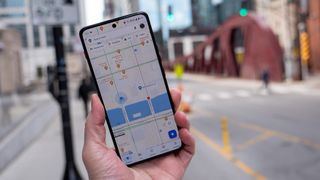
What you need to know
- Google is rolling out a couple of updates for Maps and Search that are designed to aid users in finding more sustainable ways to travel.
- For Maps, users will find low-carbon travel alternatives alongside driving routes while Search picks up long-distance information for trains and buses.
- Google is also bringing more awareness to emissions from flights for developers creating apps and websites.
Ahead of Earth Day next week, Google is bringing a few updates to Maps and Search that may help users make better-informed choices around more "sustainable" methods of travel.
Google Maps is set to pick up a feature that displays low-carbon alternatives when traveling. The company states users in Maps will soon find routes for walking and public transit alongside driving routes.
However, Google will only do this if "travel times are comparable and practical" so you won't be too delayed.
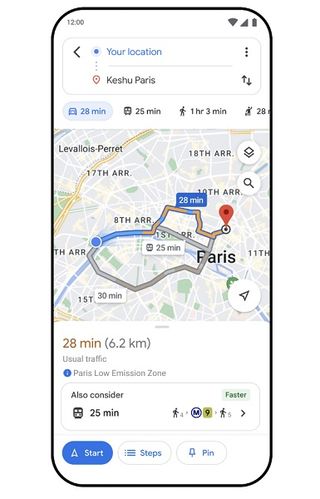
These low-carbon alternatives will appear in "over fifteen cities" worldwide. This includes Amsterdam, Barcelona, London, Montreal, Paris, Rome, and Sydney. Google will begin rolling this feature out today (April 17) for Maps.
The second feature involves Google Search, as users can now inquire about long-distance trains and buses. For instance, the company says users can search for "Boston to Philadelphia train" and quickly discover schedules and ticket prices in a neat table below the search bar.
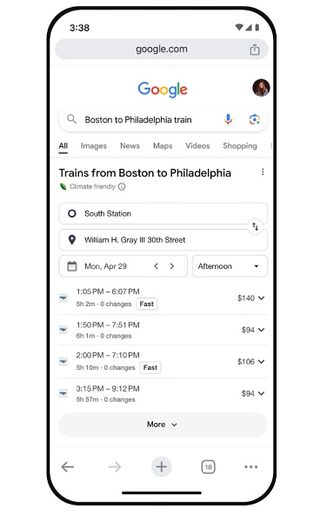
Google Search will provide links for users who need to book their tickets when selecting a result that best suits them. Joining this update, Google states it will add train route suggestions as an alternative when searching through the Flights app for a plane to catch.
Also rolling out today, users will find schedules for trains in 38 countries, including the U.S. For buses, Google is adding support to 15 countries, also including the U.S.
Be an expert in 5 minutes
Get the latest news from Android Central, your trusted companion in the world of Android
Google is also looking to increase awareness regarding airplane emissions. The post states that the company is bringing its Travel Impact Model (TIM) to its developer API. This will let app creators display flight emission information on their products or websites.
Additionally, developers can pick up a Google Sheets add-on and the TIM emissions calculator to help estimate a flight's amount per person. Google states this arrives as an additional tool alongside its Flights app , which already displays such information for those who are curious.
These updates are rolling out today (Apr. 17) for users. If you're not yet seeing the features, give the app a little more time today and through the rest of the week.

Nickolas is always excited about tech and getting his hands on it. Writing for him can vary from delivering the latest tech story to scribbling in his journal. When Nickolas isn't hitting a story, he's often grinding away at a game or chilling with a book in his hand.
Android's satellite SOS UI might look like this, a leak spills beans
WhatsApp's new chat filters give you no more excuses for missing chats
Google Maps wants to make your EV rides smoother with these features
Most Popular
- 2 The TECNO Camon 30 Premier promises top-notch cameras with a dual-chip imaging setup
- 3 What is RAM Boost, and should you use it?
- 4 Best NAS for Plex 2024
- 5 Pixel Buds Pro 2 reportedly spotted picking up its battery certification
Heavy Rain, Storm Cause Travel Chaos In Dubai, 28 India Flights Cancelled
The record rainfall has resulted in delayed or diverted flights, while cars have been left stranded on flooded roads in dubai..

Dubai airport: The impact of the storm extended beyond Dubai.
Dubai, the Middle East's financial centre, has been paralysed by heavy rain and storm that has caused widespread flooding around the desert country.
The record rainfall has resulted in delayed or diverted flights, while cars have been left stranded on flooded roads.

Passengers have been warned not to come to Dubai airport, the world's busiest by international traffic, "unless absolutely necessary".
"Flights continue to be delayed and diverted. We are working hard to recover operations as quickly as possible in very challenging conditions ," a Dubai Airports spokesperson said.
Over 500 flights - both inbound and outbound - have been diverted, delayed or cancelled as the weather department predicts more rain and storms today.
Authorities have cancelled about 15 flights bound for Dubai, while 13 flights to India have been cancelled.
Dubai's flagship Emirates Airline said it is halting all check-ins for passengers for the day as bad weather in Dubai has caused a travel chaos. "Emirates is working hard to restore our scheduled operations, and our teams will provide all possible support to affected customers," the airline said in the statement.
Flagship shopping centres Dubai Mall and Mall of the Emirates both suffered flooding and water was ankle-deep at Metro stations . Officials said Metro trains are currently operating on specific routes as maintenance work is underway at stations on Red and Green lines.

The impact of the storm extended beyond Dubai, with the entire UAE and neighbouring Bahrain experiencing similar scenes of flooding and chaos.
Schools have been closed, and further storms, including hail, are forecasted for today, prompting authorities to extend remote working arrangements for government employees.

The storms and rain hit the UAE and Bahrain after lashing Oman, where 18 people were killed, including several children.
Official media said it was the highest rainfall since records began in 1949, before the formation of the UAE in 1971.
Promoted Listen to the latest songs, only on JioSaavn.com
The country's weather office "urged residents to take all the precautions and to stay away from areas of flooding and water accumulation".
Both the Oman and the UAE, which hosted last year's COP28 UN climate talks, have previously warned that global warming is likely to lead to more flooding.
Track Budget 2023 and get Latest News Live on NDTV.com.
Track Latest News Live on NDTV.com and get news updates from India and around the world .
India Elections | Read Latest News on Lok Sabha Elections 2024 Live on NDTV.com . Get Election Schedule , information on candidates, in-depth ground reports and more - #ElectionsWithNDTV
Watch Live News:

- International

Trump hush money trial

Israel-Hamas war
April 12, 2024 - Israel-Hamas war
By Chris Lau, Sana Noor Haq, Adrienne Vogt , Matt Meyer and Tori B. Powell , CNN
Our live coverage of Israel's war on Hamas in Gaza has moved here .
USAID worker killed in Israel, agency says
From CNN's Jennifer Hansler
A staff member with United States Agency for International Development (USAID) died Friday in the Israeli port city of Jaffa, the agency announced.
The male staffer was with USAID’s West Bank and Gaza mission, the agency said in a brief statement.
USAID did not provide details on the circumstances around his death or his identity or citizenship.
“He was a dedicated member of our team for more than two decades, and our thoughts are with his family, friends, and colleagues,” USAID said.
USAID is working with the US Embassy to work out details about the fatal incident and its follow-up investigation, it said.
US expects Iran to carry out direct strikes against targets inside Israel, sources say
From CNN's MJ Lee and Natasha Bertrand
The United States currently expects Iran will carry out strikes against multiple targets inside Israel and that Iranian proxies could also be involved in carrying out the attacks, according to a senior administration official and a source familiar with the intelligence.
The targets would likely be both inside Israel and around the region.
The beginning of a state-on-state conflict between Iran and Israel would mark a serious escalation in the region that the US has hoped to avoid.
US sees Iran moving military assets including drones and cruise missiles, sources say
From Natasha Bertrand and Oren Liebermann
The US observed Iran moving military assets around internally, including drones and cruise missiles, signaling that it is possibly preparing to attack Israeli targets from inside its own territory, according to two people familiar with US intelligence.
It is not clear whether Iran is preparing to strike from its soil as part of an initial attack, or if it is posturing to try to deter Israel or the US from conducting a possible counter strike on its territory.
One of the people said the US had observed Iran readying as many as 100 cruise missiles.
Some context: The Iranians want their retaliatory strike on Israel — a response to the Israeli strike on an Iranian consulate last week in Damascus — to be "significant," one of the people familiar with the intelligence said. But they also want to avoid getting embroiled in a direct war with Israel and the US, CNN has reported, which is why US intelligence has assessed that Iran may use its proxy forces to launch the first attack.
Israeli settlers storm village in West Bank and kill at least 1 Palestinian. Here's what you should know
From CNN staff
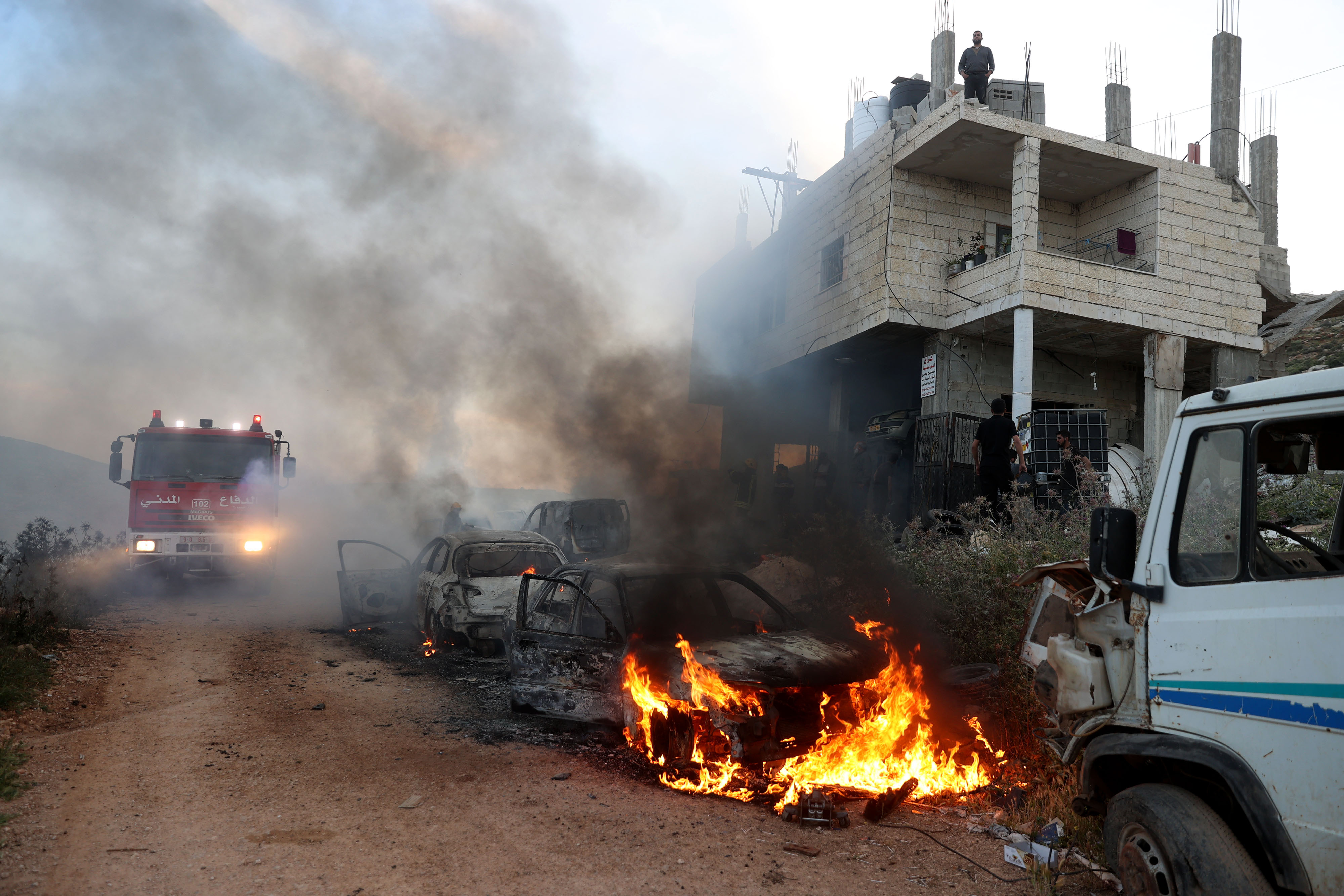
Hundreds of armed Israeli settlers stormed a village in the occupied West Bank on Friday, setting fire to several homes and cars — and leaving at least one Palestinian dead — in one of the largest attacks by settlers this year, according to Palestinian officials.
The settlers attacked Al-Mughayyir village, east of Ramallah, raided homes and fired gunshots at residents, according to Amin Abu-Alia, the head of the village council. Videos obtained by CNN show parts of the village burning, with smoke billowing over several buildings and settlers lobbing rocks. Houses and cars are seen completely burnt up, with sounds of gunfire and clashes heard in the background.
Here are other headlines you should know:
- More Israeli attacks: An Israeli airstrike early Friday killed at least 29 people and injured dozens more after troops targeted a house belonging to the well-known Al-Tabatibi family in eastern Gaza City, according to a local health official. Israeli forces also surrounded and attacked the Nuseirat refugee camp in central Gaza, wounding several journalists and at least one other person. And in the occupied West Bank, troops killed two Hamas members in a raid on the city of Tubas, according to Israeli and Palestinian officials.
- Hezbollah-Israel clashes: Around 40 rockets were fired from Lebanon on Friday evening, according to the Israeli military. Some were intercepted and the rest fell in open areas, the Israel Defense Forces (IDF) said in a statement. Israeli warplanes also carried out several airstrikes on Friday, targeting "military buildings" used by Hezbollah fighters in parts of southern Lebanon, the IDF said.
- Iranian threats: US President Joe Biden told reporters Friday he expects an attack from Iran will happen “sooner than later," with the White House adding that there is a "very credible" threat of Iranian retaliatory strikes against Israel. Additionally, the US Defense Department is moving additional assets to the Middle East region, a defense official told CNN, as the US and Israel brace for the potential attack . Israel’s Defense Minister Yoav Gallant and US Central Command Commander Gen. Erik Kurilla on Friday discussed preparations for the potential attack .
- Warnings amid Iranian threats: France , Germany, Canada and the United States are among countries that are warning their citizens not to travel to the region due to the threat of an Iranian attack against Israel.
- Humanitarian aid: The Israeli military does not understand how humanitarian operations work, a top United Nations official said Friday, maintaining there is a "degree of mistrust" that needs to be resolved between the IDF and nongovernmental organizations on the ground in Gaza.
- Sanctions: The European Council has adopted sanctions against three Hamas and Palestinian Islamic Jihad entities , in light of "their responsibilities in the brutal and indiscriminate terrorist attacks" that occurred across Israel on October 7. The US is also sanctioning four leaders of Hamas’ cyber and drone operations based in Gaza and Lebanon, State Department spokesperson Matthew Miller announced on Friday.
US will attempt to intercept launches at Israel if feasible, US officials say
From CNN's Oren Liebermann and Natasha Bertrand
The US will attempt to intercept any weapons launched at Israel if it’s feasible to do so, two US officials told CNN, in an indication of the level of ongoing cooperation between the two militaries before an anticipated Iranian attack .
US Navy forces in the Red Sea have previously intercepted long-range missiles launched from the Houthis in Yemen toward Israel. US forces in Iraq and Syria could also potentially intercept drones and rockets targeting northern Israel, depending on the location from which they’re launched.
Gen. Erik Kurilla, the commander of US Central Command, has been in Israel meeting with the country’s security leadership. On Friday, the Israel Defense Forces Chief of Staff, Lt. Gen. Herzi Halevi, met with Kurilla.
There have been a number of conversations where US officials have urged Israel not to escalate the situation in retaliating against Iran, according to one of the US officials.
Remember: An Iranian attack is expected in response to Israel’s deadly strike of Tehran's consulate in Damascus, Syria, last week.
The Damascus attack was the latest incident to stoke fears of a wider regional conflict breaking out in the Middle East during Israel's campaign in Gaza.
Diplomatic efforts: US Secretary of State Antony Blinken has held a slew of calls to foreign counterparts aimed at pressuring Iran not to attack Israel.
The top US diplomat spoke with Jordanian Foreign Minister Ayman Safadi on Friday, according to a readout from State Department spokesperson Matthew Miller.
Blinken also spoke with the Turkish, Chinese and Saudi foreign ministers in recent days, Miller said.
Israeli settlers kill at least 1 Palestinian while storming West Bank village
From CNN’s Kareem Khadder and Zeena Saifi in Jerusalem and CNN’s Benjamin Brown in London
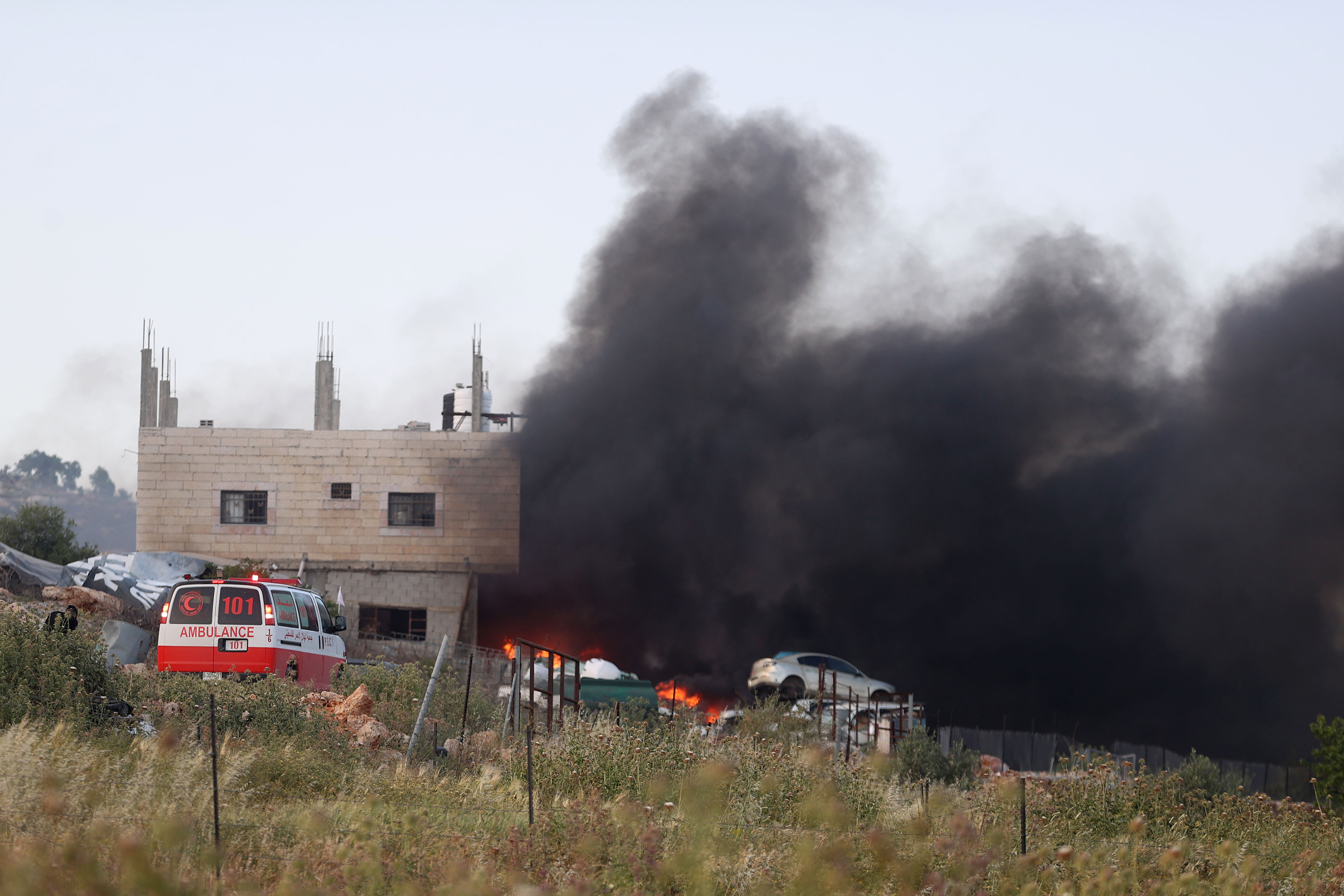
Hundreds of armed Israeli settlers stormed a village in the occupied West Bank on Friday, setting fire to several homes and cars in one of the largest attacks by settlers this year, according to Palestinian officials.
At least one Palestinian man was killed when shots were fired by Israeli settlers in the village of Al-Mughayyir, east of Ramallah, according to the head of the village council Amin Abu-Alia. He said he identified the killed Palestinian as his 26-year-old relative named Jihad Abu-Alia, who was meant to get married this summer.
At least 25 others were injured in the rampage, according to the Palestinian Ministry of Health in Ramallah, the scale of which has not been seen since hundreds of settlers stormed through the villages of Turmusayya and Huwara in two separate incidents last year.
Between 1,000 and 1,200 settlers surrounded the village, and around 500 stormed it just after midday local time on Friday, blocking all the roads in the area, Abu-Alia told CNN.
He added that Israeli security forces informed Palestinian officials that the settlers were looking for a 14-year-old Israeli boy who had gone missing earlier in the day.
They attacked the village, raided homes and fired gunshots at residents, Abu-Alia said. Videos obtained by CNN show parts of the village burning, with smoke billowing over several buildings and settlers lobbing rocks. Houses and cars are seen completely burnt up, with sounds of gunfire and clashes heard in the background.
According to Abu-Alia, the Israeli military arrived at the scene at around 3 p.m. and didn’t stop the settlers from attacking the village. Israeli soldiers allowed them to raid homes, prevented Palestinian residents from moving around and blocked ambulances from reaching the injured, he added.
Abu-Alia told CNN settlers stole approximately 70 sheep from the Palestinian village.
In response to a question by CNN, the IDF said “violent riots were instigated in multiple locations in the area” following the search for the boy.
Israel says airstrikes targeted Hezbollah targets in southern Lebanon
Israeli warplanes carried out several airstrikes on Friday, targeting "military buildings" used by Hezbollah fighters in parts of southern Lebanon, according to the Israel Defense Forces.
The areas include the Aita al-Shaab and the Taybeh in southern Lebanon, said Avichay Adraee, I DF spokesperson for Arab media, in a post on X.
"During the day, several shells were fired from Lebanon towards the Upper Galilee region, without causing any casualties. IDF forces attacked the sources of fire," Adraee added.
The Israeli airstrikes were before the 40 rockets that were launched from Lebanon toward northern Israel Friday evening and claimed by Hezbollah.
Biden expects an attack from Iran will happen "sooner than later"
From CNN's Samantha Waldenberg
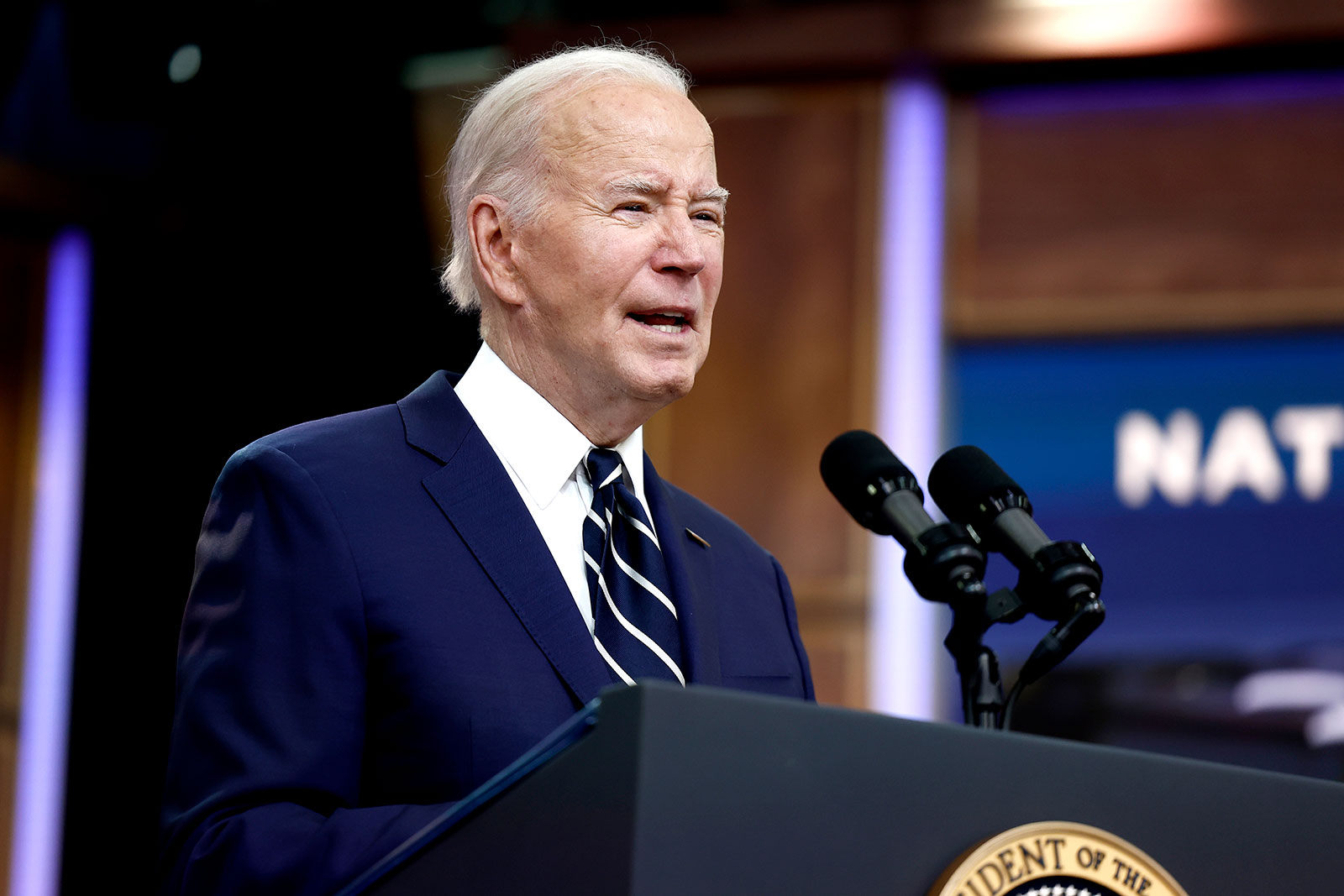
US President Joe Biden expects an attack from Iran will happen “sooner than later," he told reporters at the White House Friday.
“I don’t want to get into secure information but my expectation is sooner than later,” Biden said when asked how imminent an attack on Israel was.
Asked what his message to Tehran is right now, the president said “Don’t.”
In response to more shouted questions from reporters asking if American troops were at risk, Biden returned to the podium and said that the United States is "devoted” to the defense of Israel.
“We will support Israel. We will help defend Israel and Iran will not succeed,” Biden said.
Remember: The United States says it is on high alert for a significant Iranian retaliatory attack following Israel's deadly strike on Tehran's consulate in Damascus last week, raising fears of a wider regional war. There remains a “real,” “credible” and “viable” threat of Iran launching strikes, the White House said earlier Friday, following Israel’s attack on a diplomatic compound in Syria that killed three Iranian generals.
Please enable JavaScript for a better experience.

IMAGES
VIDEO
COMMENTS
Disclaimer: Passengers travelling to India are advised to check official websites of relevant authorities and local government agencies for the latest updates on travel retrictions and plan accordingly.
Travel Advisory. June 23, 2023. India - Level 2: Exercise Increased Caution. O U T C. Reissued with updates to health information. Exercise increased caution in India due to crime and terrorism. Do not travel to: The union territory of Jammu and Kashmir (except the eastern Ladakh region and its capital, Leh) due to terrorism and civil unrest ...
Reissued with updates to health information. Exercise increased caution in India due to crime and terrorism.. Do not travel to: The union territory of Jammu and Kashmir (except the eastern Ladakh region and its capital, Leh) due to terrorism and civil unrest.; Within 10 km of the India-Pakistan border due to the potential for armed conflict.; Country Summary: Indian authorities report rape is ...
Press Information Bureau. The Indian Ministry of Health and Family Welfare has a 24/7 hotline at +91-11-2397-8046 with English-speaking operators or can be reached at [email protected]. The Indian Medical Association also has a 24/7 hotline for individuals to speak with a doctor at +91 99996-72238 or +91 99996-72239.
Below we highlight the latest guidelines for international travel to and from India. Latest updates Status of India's international air operations. On March 8, an order from the government confirmed resumption of regular international flights from March 27, 2022. "After being recognized the increase of vaccination coverage across the globe ...
COVID-19, Guidelines for International Arrivals, For latest guidelines for international arrivals, Ministry of External Affair, Government of India
Travel to India for tourism and other short-term purposes resumed fully on November 15 for individuals holding tourist or e-tourist visas issued on or after October 6, 2021. The U.S. government ...
The updates will come into effect from 14 February 2022. These are the highlights: Passengers from 82 countries can now travel with a negative RT-PCR test report (72 hours prior to boarding) or a certificate of completing the primary vaccination schedule.
Website Content Managed by Ministry of Tourism, Government of India Designed, Developed and Hosted by National Informatics Centre ( NIC ) Last Update : 15-04-2024Ministry of Tourism, Government of India Designed, Developed and Hosted by National Informatics Centre ( NIC ) Last Update : 15-04-2024
Health officials caution that staying home is the best way to stem transmission until you're fully vaccinated. Below is information on what to know if you still plan to travel, last updated on ...
India updates travel rules for international travellers Share to whatsapp Times of India TIMESOFINDIA.COM / TRAVEL NEWS , INDIA / Updated : Dec 11, 2021, 16:51 IST
Update on COVID-19 India issues Revised Guidelines for International Travelers in view of reported cases of new SARS-CoV-2 variant (Omicron) across the world Guidelines require all travelers (irrespective of COVID-19 vaccination status) coming to India from countries identified as 'countries at-risk' to Mandatorily undergo post-arrival COVID-19 testing at Airport on Arrival
The current guidelines for inbound international travelers to India took effect on 1 January 2023. With six countries having been classified as high-risk, travelers even from non-risk countries are looking to know India's entry regulations in view of COVID resurgence in some parts of the globe. Currently, China, Singapore, Japan, South Korea and Hong Kong […]
25.08.2021 Guidelines for domestic travel (flight/train/ship/bus inter-state travel) 17.08.2021 Genomic Surveillance for SARS-CoV-2 In India: Indian SARS-CoV-2 Genomics Consortium (INSACOG) (Updated guidelines and SOPs) 02.07.2021 Operational Guidance for COVID-19 Vaccination of Pregnant Women
Latest Guidelines For Travelers Coming To India -. Starting at 10 AM on 24 December 2022 (Saturday), all international passengers coming to India will have to undergo a mandatory thermal screening. All travelers should preferably be fully vaccinated as per the approved primary schedule of vaccination against Covid.
Don't travel to India to obtain restitution after losing money to a scam. Overseas fraud. Spiked food and drinks. Never leave food or drinks unattended or in the care of strangers. Be wary of accepting snacks, beverages, gum or cigarettes from new acquaintances. These items may contain drugs that could put you at risk of sexual assault and ...
Authorized Portal for Visa Application to India Indianvisaonline.gov.in. All foreign nationals entering India are required to possess a valid international travel document in the form of a national passport with a valid visa from an Indian Mission/Post or eVisa (Limited Categories) from Bureau of Immigration, Ministry of Home Affairs.
Still current at: 17 April 2024. Updated: 22 March 2024. Latest update: Information on the upcoming general elections in India ('Safety and security page'). The Foreign, Commonwealth & Development ...
Travel during daylight hours only, especially in rural areas. If you choose to drive a vehicle in India, learn the local traffic laws and have the proper paperwork. Get any driving permits and insurance you may need. Get an International Driving Permit (IDP). Carry the IDP and a US-issued driver's license at all times.
To avail Miscellaneous Service, you must be an existing OCI Card Holder. In case the existing OCI card holder wishes to update the latest information about his latest passport, Change in address/Occupation/Contact details, the OCI card holder can select the option as given below and upload the latest photograph and requisite documents.
Until then, we've got the latest COVID-19 travel advice and updates to keep you up to date and ready to go. We're continually keeping this page up-to-date regarding the current outbreak of Coronavirus disease, also known as COVID-19. This page was last updated on 30 August 2021. To our knowledge, the information on this page was correct at ...
India is a dream destination for many - whether you want to explore the vibrant culture, spot exotic wildlife, or simply enjoy the climate and cuisine. If you're planning a visit, use our travel to India from USA checklist to get prepared in advance. While you're organizing your trip, check out the international debit card from Wise. Wise ...
India lifted a ban on international flights on March 27. AFP. India has updated entry requirements for incoming travellers, removing the need for vaccinated passengers from certain countries to present a negative PCR test result on arrival. The rules now apply to travellers from 99 countries, including the UAE, Oman, Saudi Arabia and Lebanon.
Travel Restrictions to India - Updates for April 23rd, 2021. January 28, 2023. India is now facing outbound travel restrictions, having opened air bubbles since the first COVID-19 wave and now being red-listed by several countries as the second wave approaches. As the number of Coronavirus cases in India has surpassed 2 lakh every day ...
TIMESOFINDIA.COM. TRAVEL NEWS, EL SALVADOR. This country is offering 5,000 free passports worth $5 billion! Find out if you qualify. Referring to this, Bukele added that this will account for less ...
France, India, Russia, UK issue travel warnings over Israel-Iran tensions. Warnings come as Tehran promises reprisals against Israel for the deadly April 1 attack on an Iranian consulate in Syria.
Google is rolling out a couple of updates for Maps and Search that are designed to aid users in finding more sustainable ways to travel. For Maps, users will find low-carbon travel alternatives ...
General Travel Advice. Irish citizens require a visa to travel to India. If you arrive in India without a visa, you will be refused entry. If you over-stay your visa, you will be fined and may be prosecuted or detained and later deported. If you lose your passport, you will have to obtain an exit visa before you can leave India.
Heavy Rain, Storm Cause Travel Chaos In Dubai, 28 India Flights Cancelled The record rainfall has resulted in delayed or diverted flights, while cars have been left stranded on flooded roads in Dubai.
10:43 p.m. ET, April 12, 2024 USAID worker killed in Israel, agency says. From CNN's Jennifer Hansler